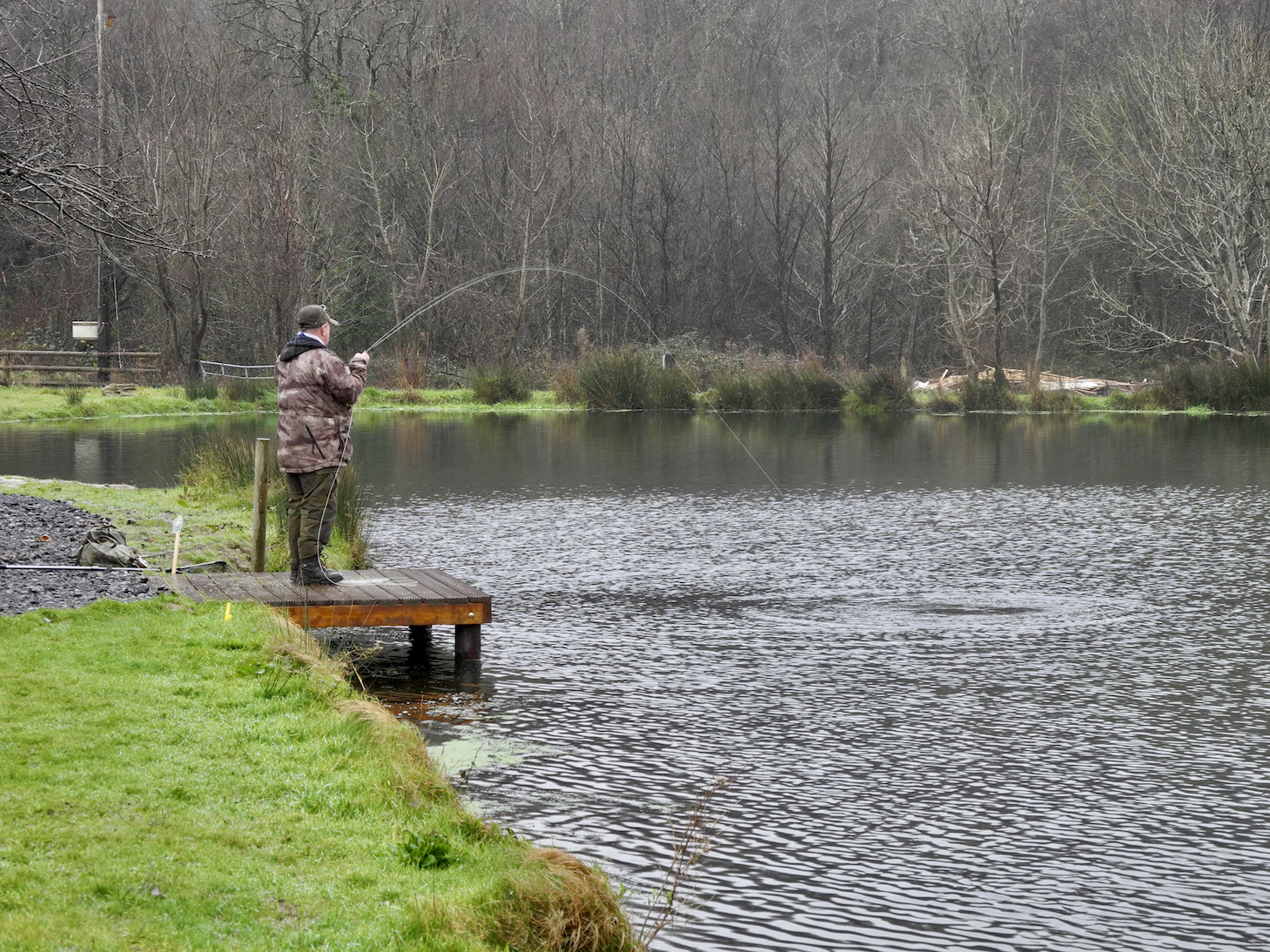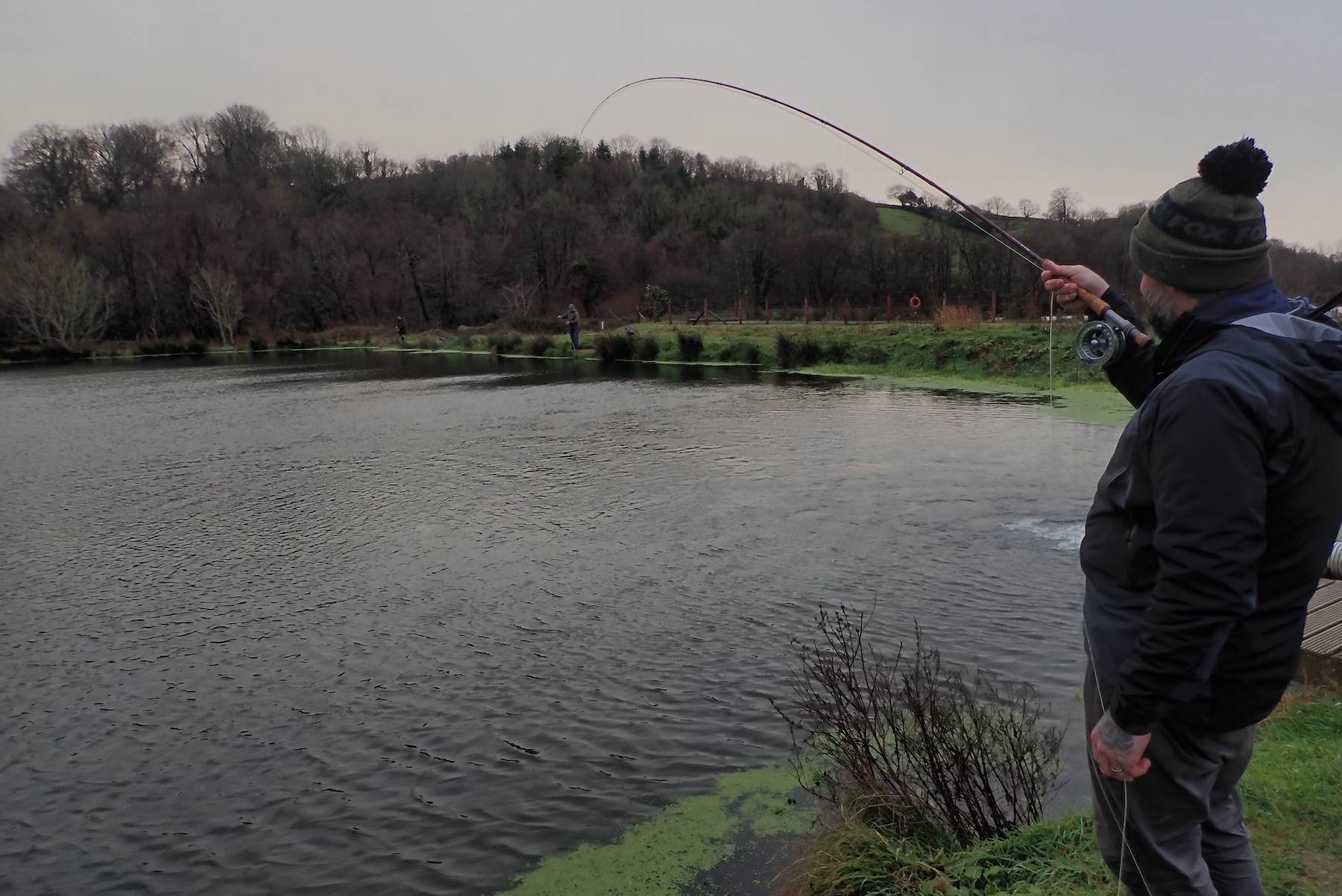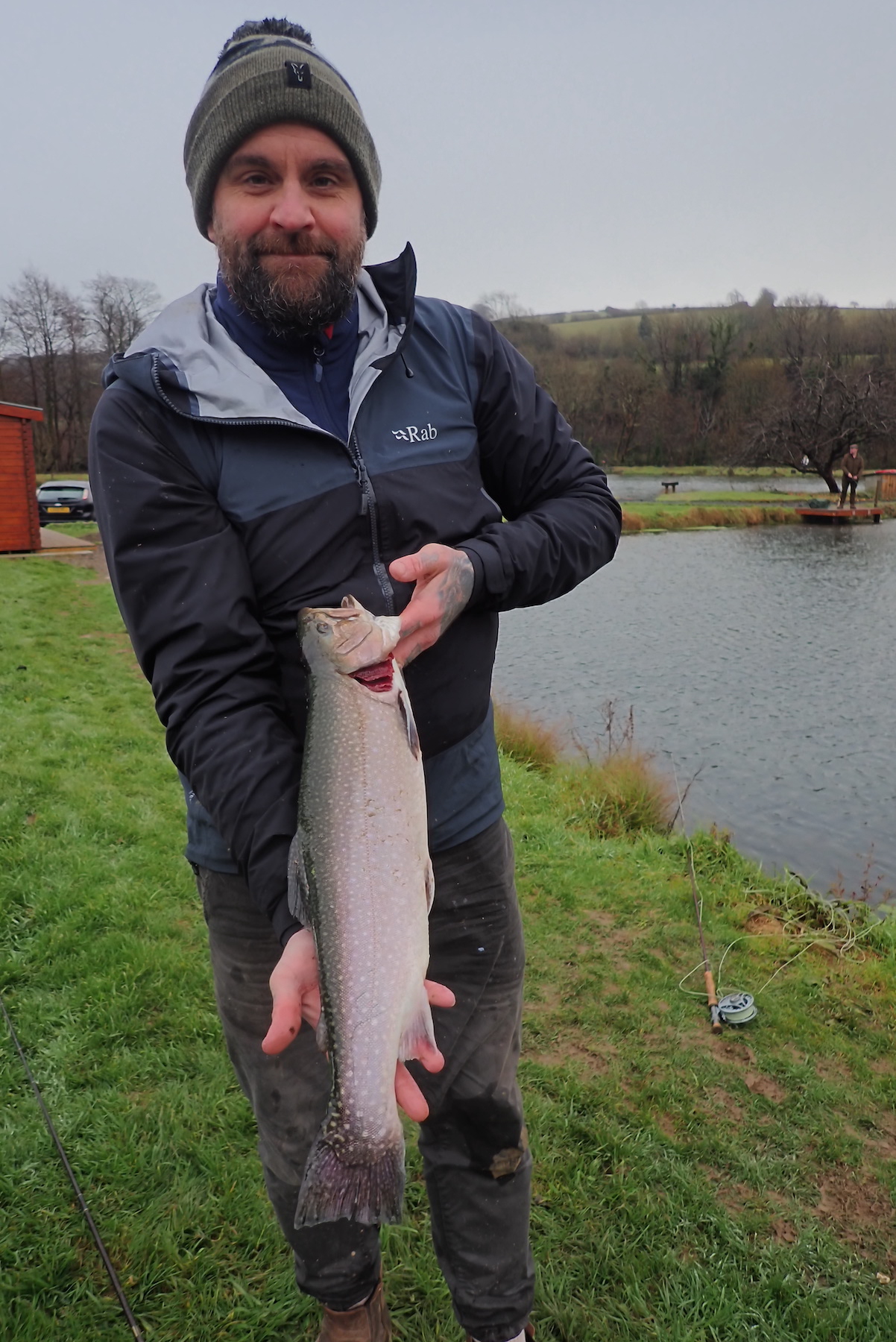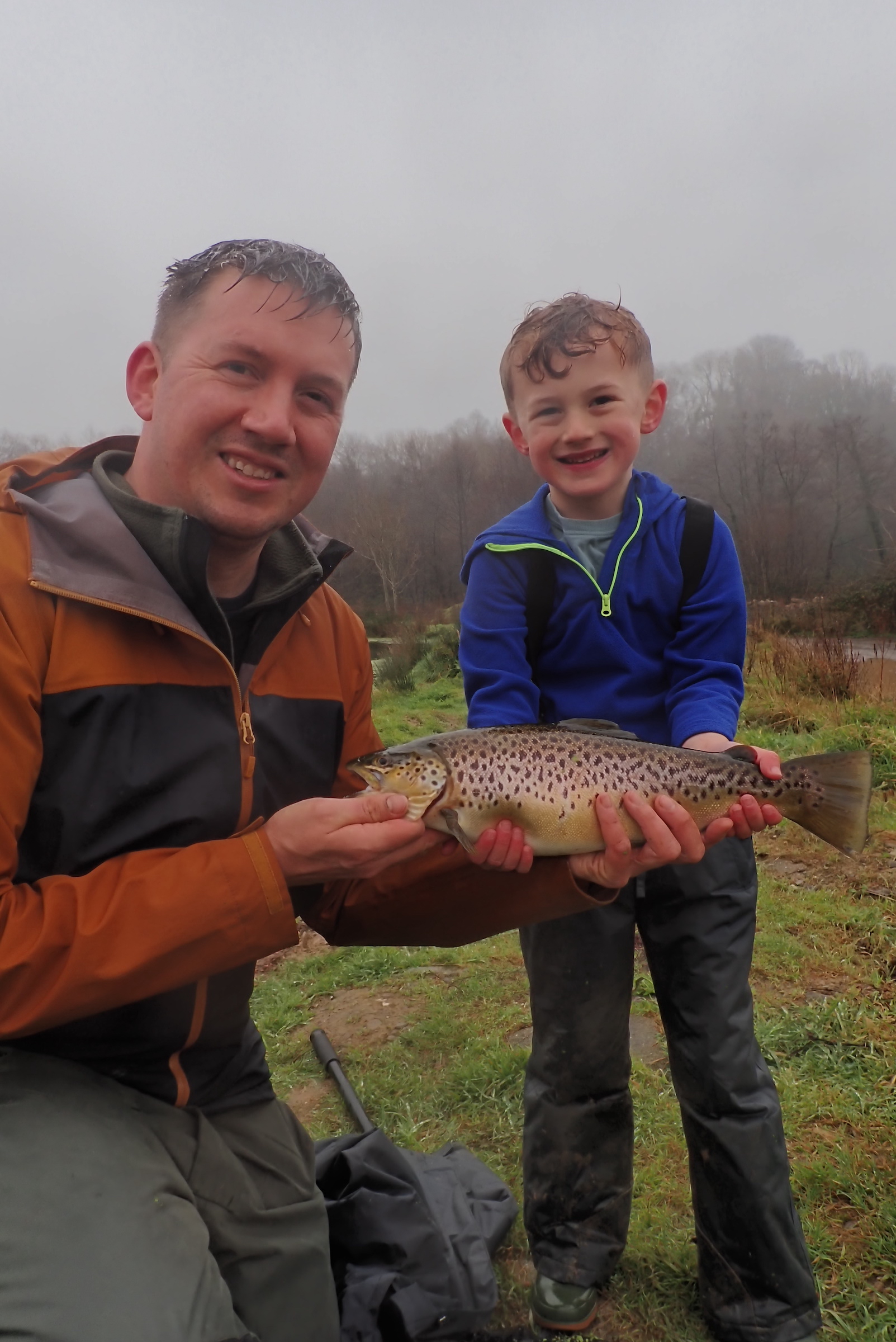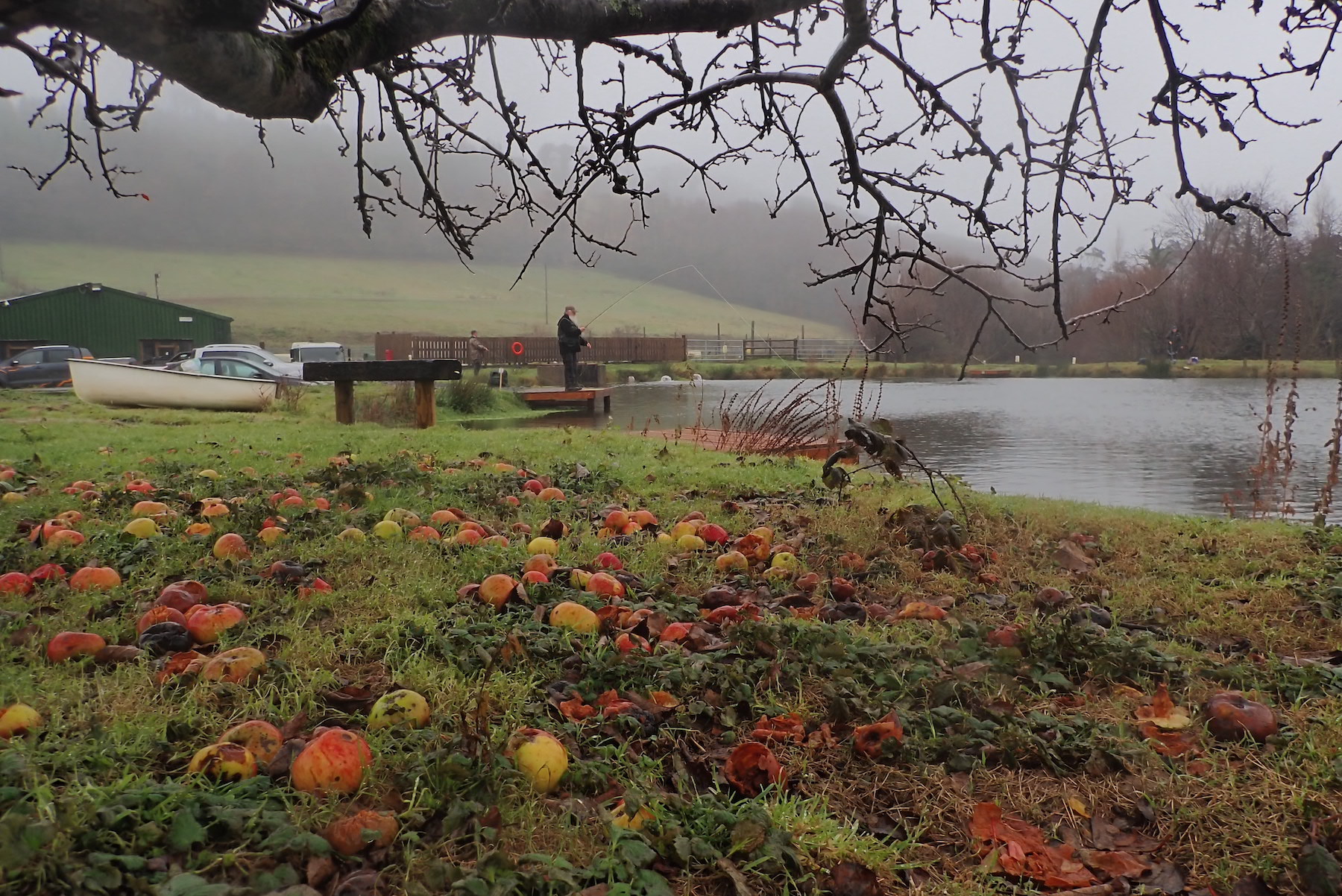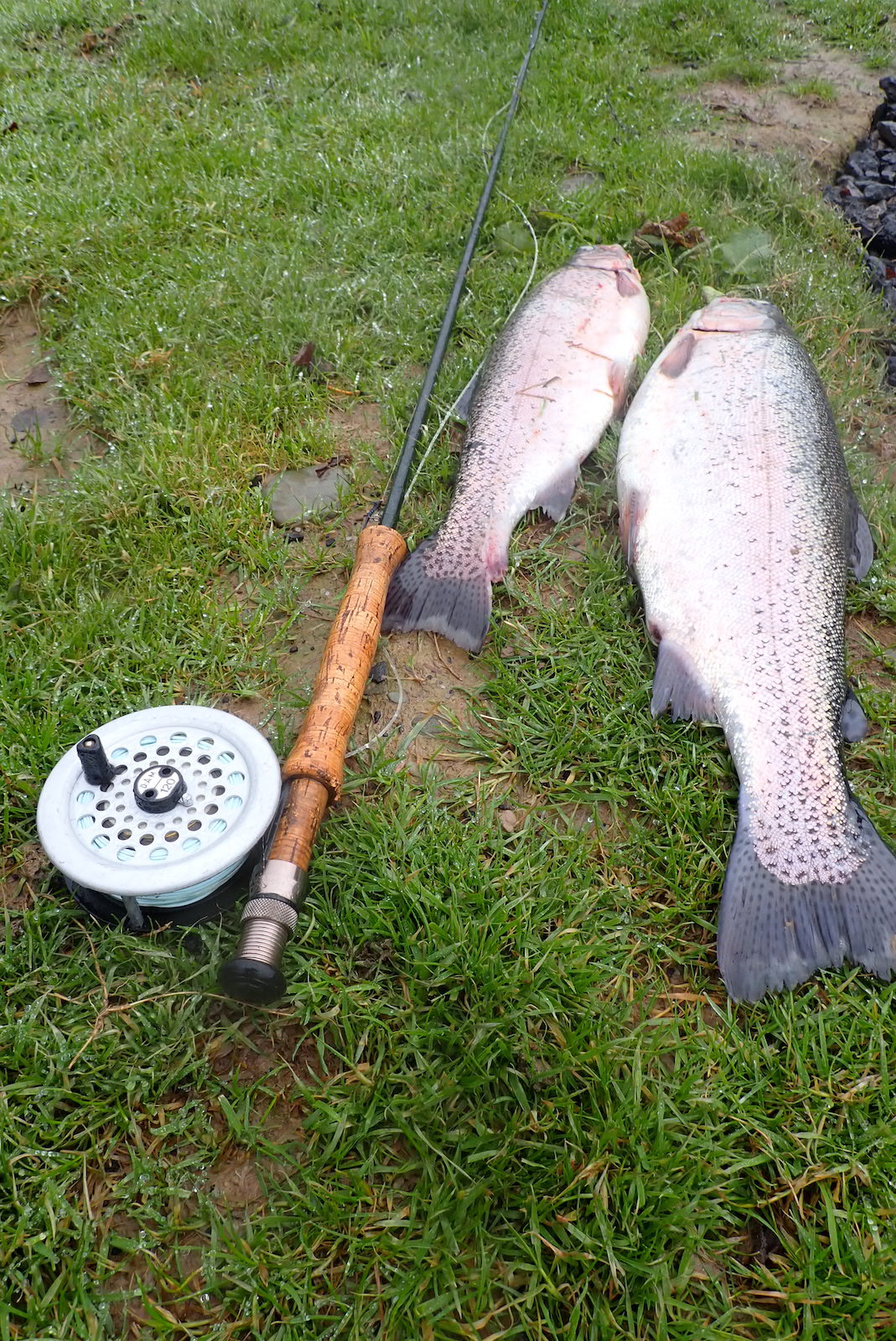
|
Open Day Venue |
|
Snowbee, Mercator House, 22 Brest Road, Derriford, Plymouth, Devon. PL6 5XP |

https://news.snowbee.co.uk/c/AQj02g4QlqN4GJiR4ZcBILCAshhyjTn_OS2q_PCLp0Ch0HXk8zo_wMqYKgv_F4O88WY0hw

|
Open Day Venue |
|
Snowbee, Mercator House, 22 Brest Road, Derriford, Plymouth, Devon. PL6 5XP |

https://news.snowbee.co.uk/c/AQj02g4QlqN4GJiR4ZcBILCAshhyjTn_OS2q_PCLp0Ch0HXk8zo_wMqYKgv_F4O88WY0hw
Exmoor Trees for Salmon – help needed please
An invitation to join the Westcountry Rivers Trust, on Sunday 9th February, for a volunteer tree planting day along the river Barle, at Landacre Bridge. This area is an important region for spawning salmon and juvenile habitat within the Exe, however a lack of tree cover leaves the fish vulnerable. To help improve this habitat, WRT are planting pockets of trees alongside the river and need your help to put these trees in the ground!
WRT have 1500 trees to be put in the ground, so the more help the better.
If you are interested please follow this link for more information and to book a place https://www.eventbrite.co.uk/e/exmoor-trees-for-salmon-tickets-1217821249139?aff=ebdsoporgprofile

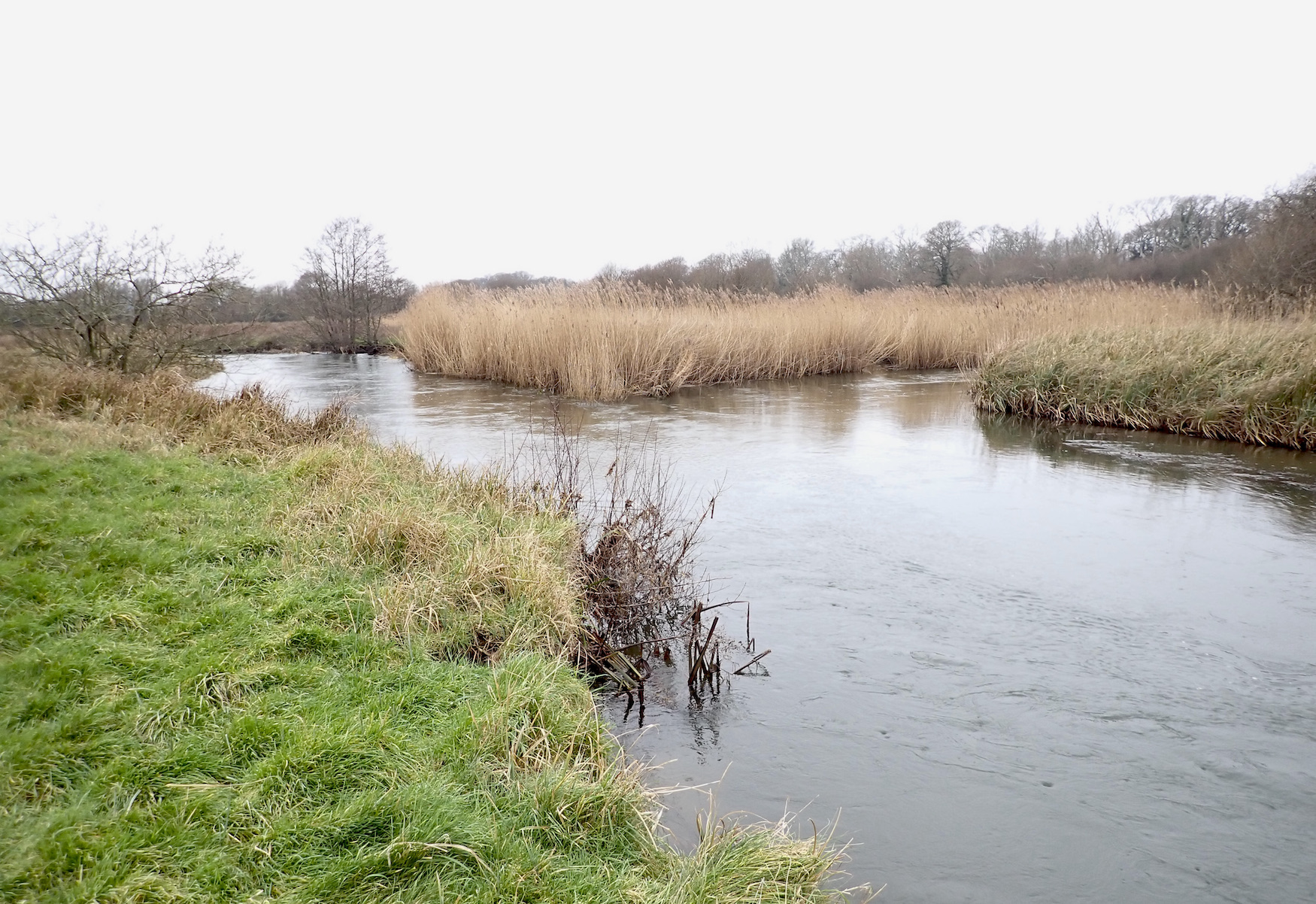
I embarked on a trip away from North Devon to fish for grayling on the Dorset Frome with my good friend Bruce Elston. The trip proved to be a very enjoyable foray and got me thinking about our motivations to actually go fishing. Grayling are an iconic fish that thrive in clean fast running rivers ensuring that the fishing venue is often set in pleasing countryside surroundings as was the case at the venue we were fishing. The Dorset Frome is a Chalk stream famed for its trout fishing and during the winter months its specimen grayling that have been landed to over 4lb.
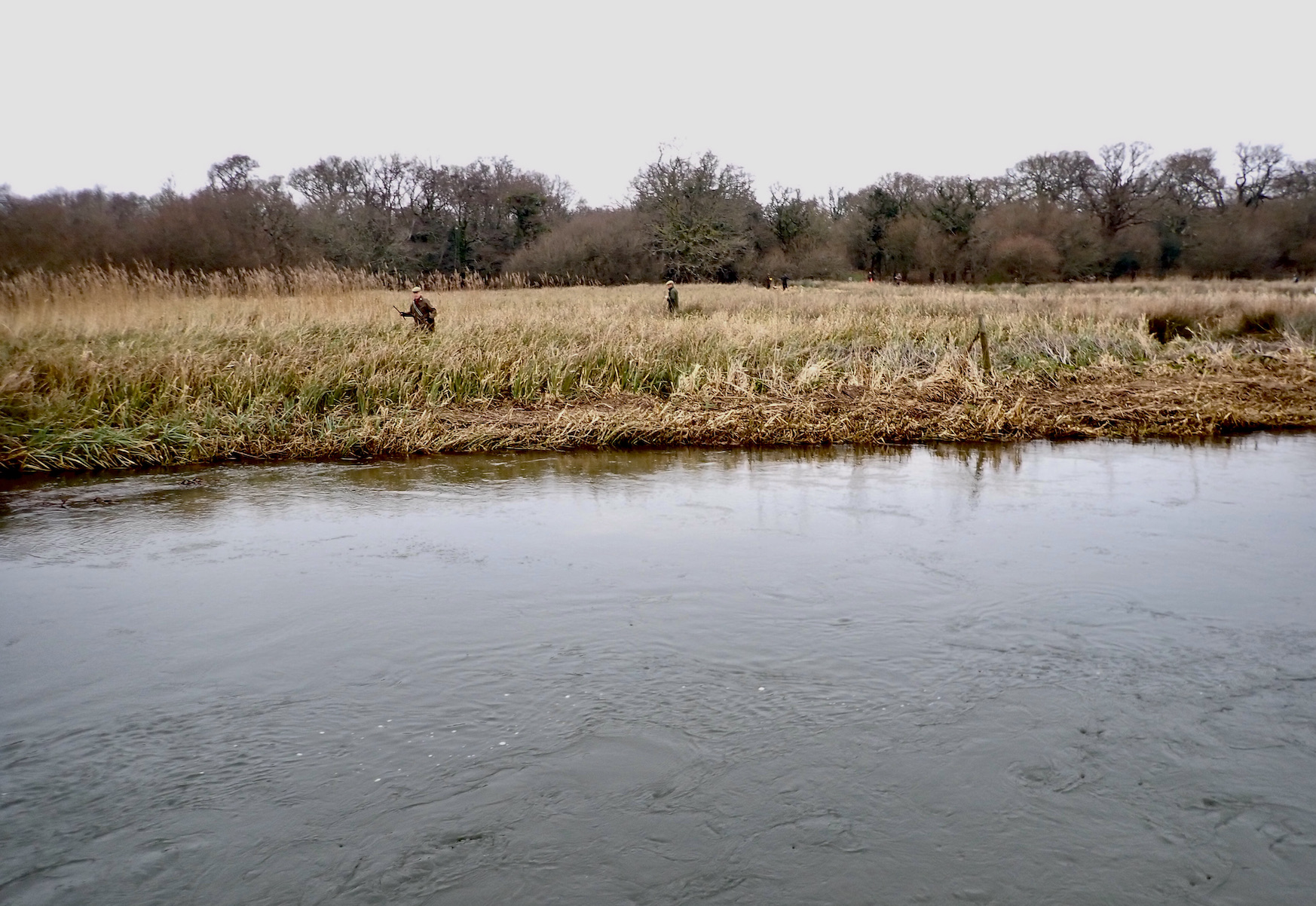
It is the potential size of these grayling that is of course part of the attraction but this is just one dimension, for how we fish is also a factor. As a young angler I always enjoyed the fascination of watching a float bobbing optimistically upon the surface followed by the joy in its disappearance and the satisfaction upon connecting with the fish that lives within a different dimension. Trotting for grayling brings all these components together and close to fifty years later the delights of float-fishing remain undiminished.
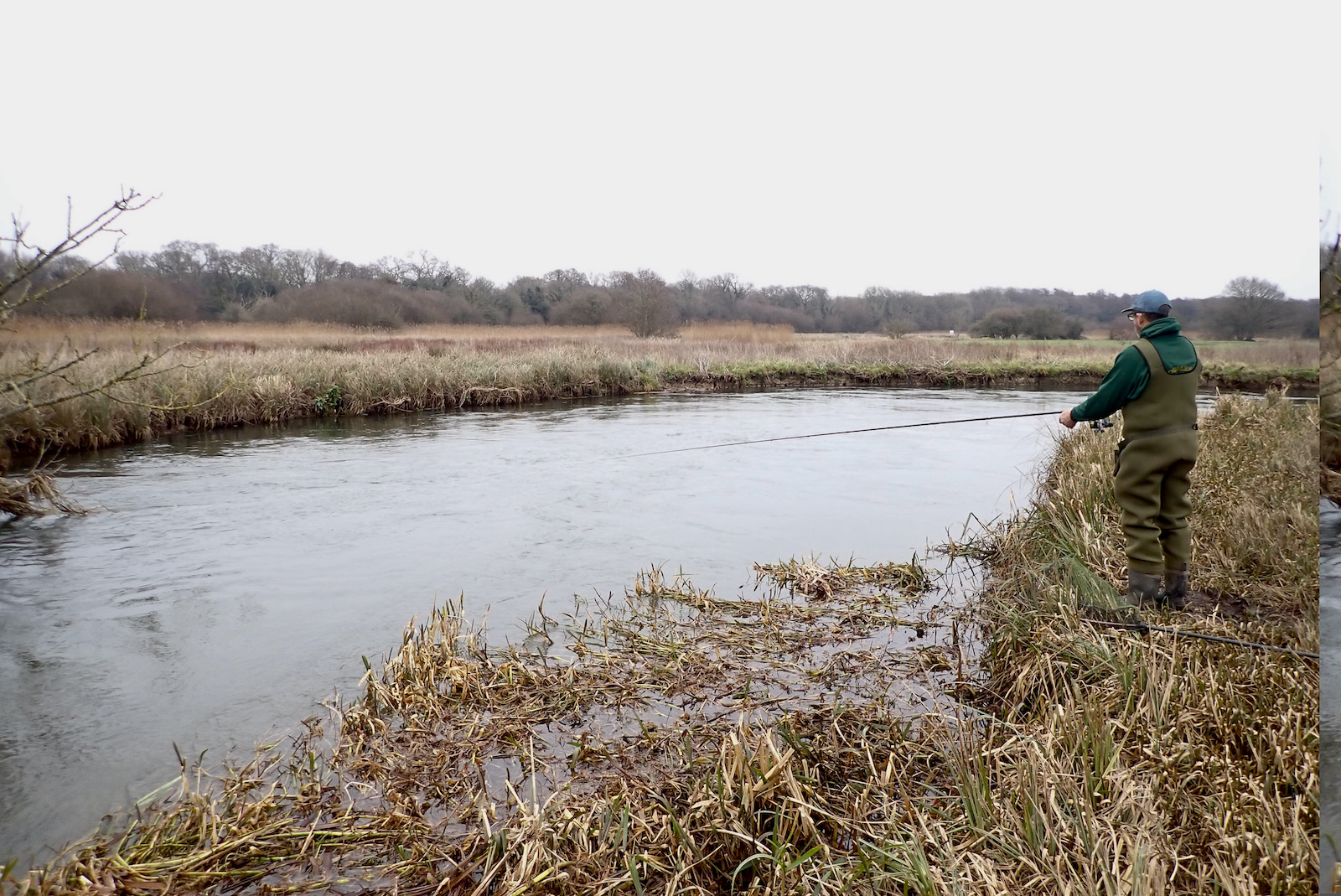
The section of River we were fishing was new to us both so we had to read the water a skill that is a joy in itself. Each stretch of water has characteristics that give clues as to where the fish will be lurking waiting for food to be carried to them by the current. The successful angler needs to place the bait in that spot or in the case of trotting, drift the bait in front of the feeding fish presented as naturally as possible.
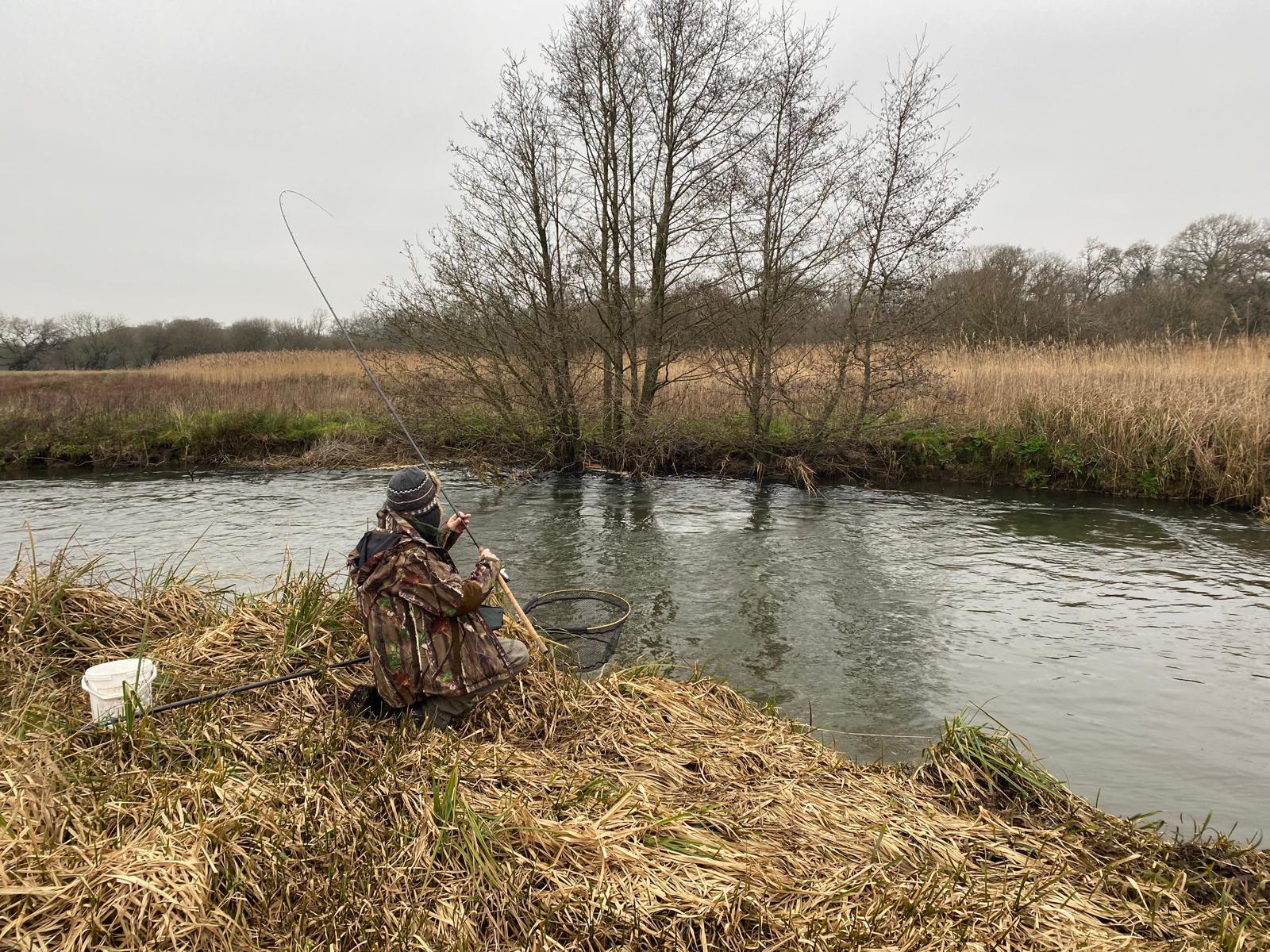
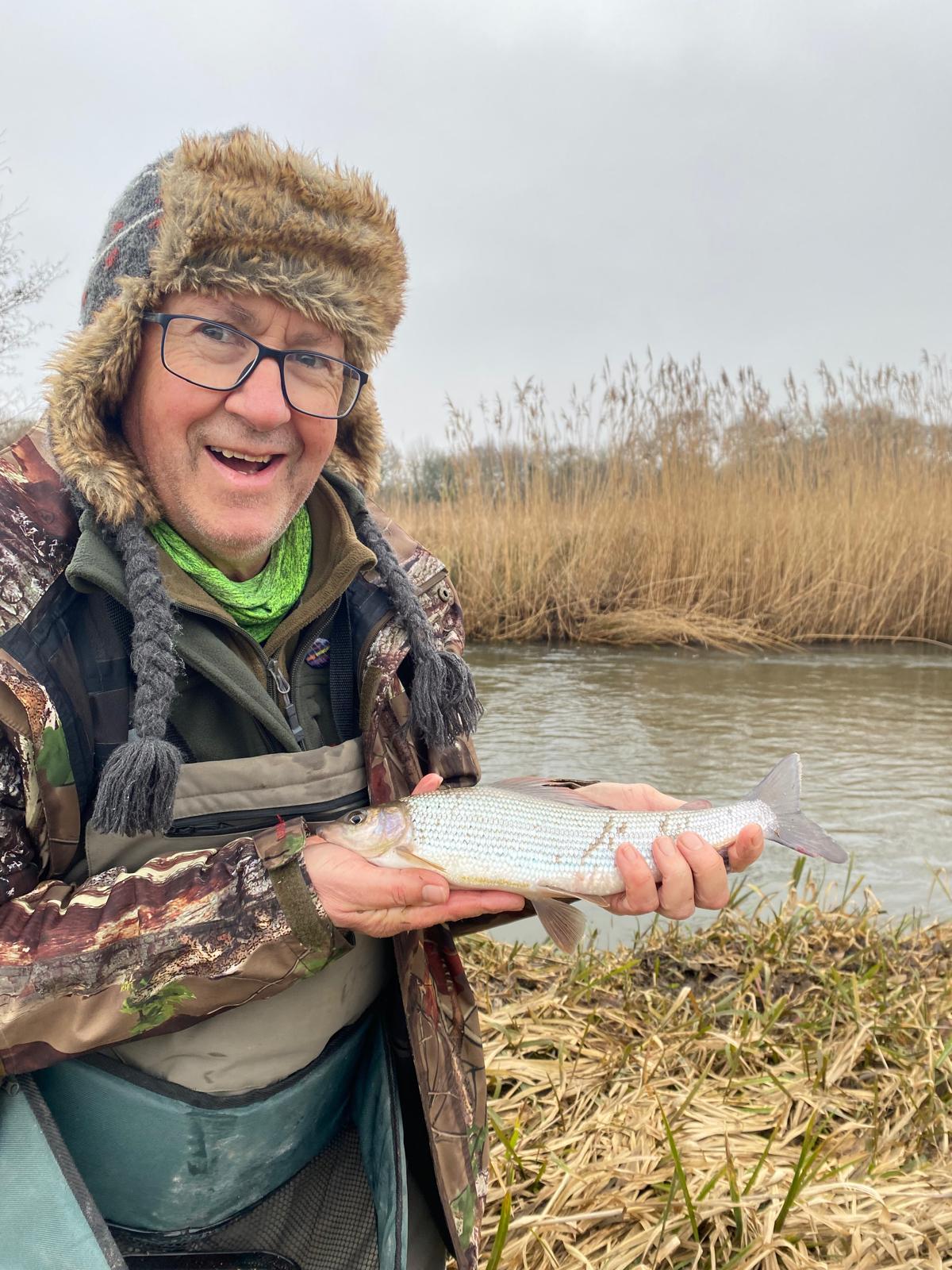
We both enjoyed success early in the day. ( Above ) A 1lb plus grayling fell to floatfished maggot.

We fished hard all day dropping our float tackle into promising looking spots guiding the float through the rivers flexing currents the double maggot or sweetcorn hook bait suspended just above the riverbed. From time to time the float would dip beneath the surface and the lifting of the rod would bring connection, sometimes fleeting and occasionally that solid throbbing of life transmitted through a gossamer thin line. Between us we banked a brace of good grayling each with Bruce’s both topping 2lb and mine closer to 1lb 8oz each.
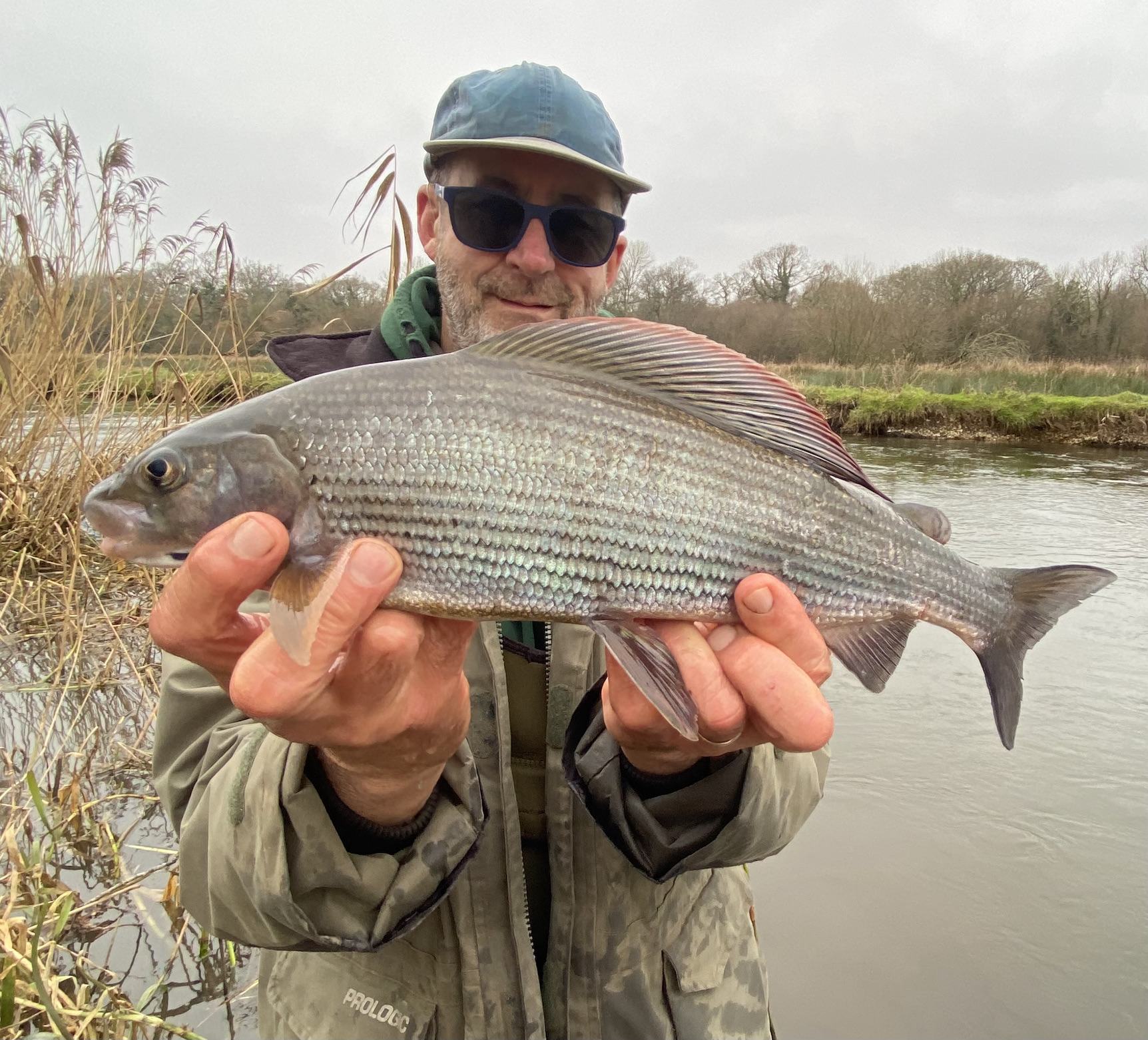
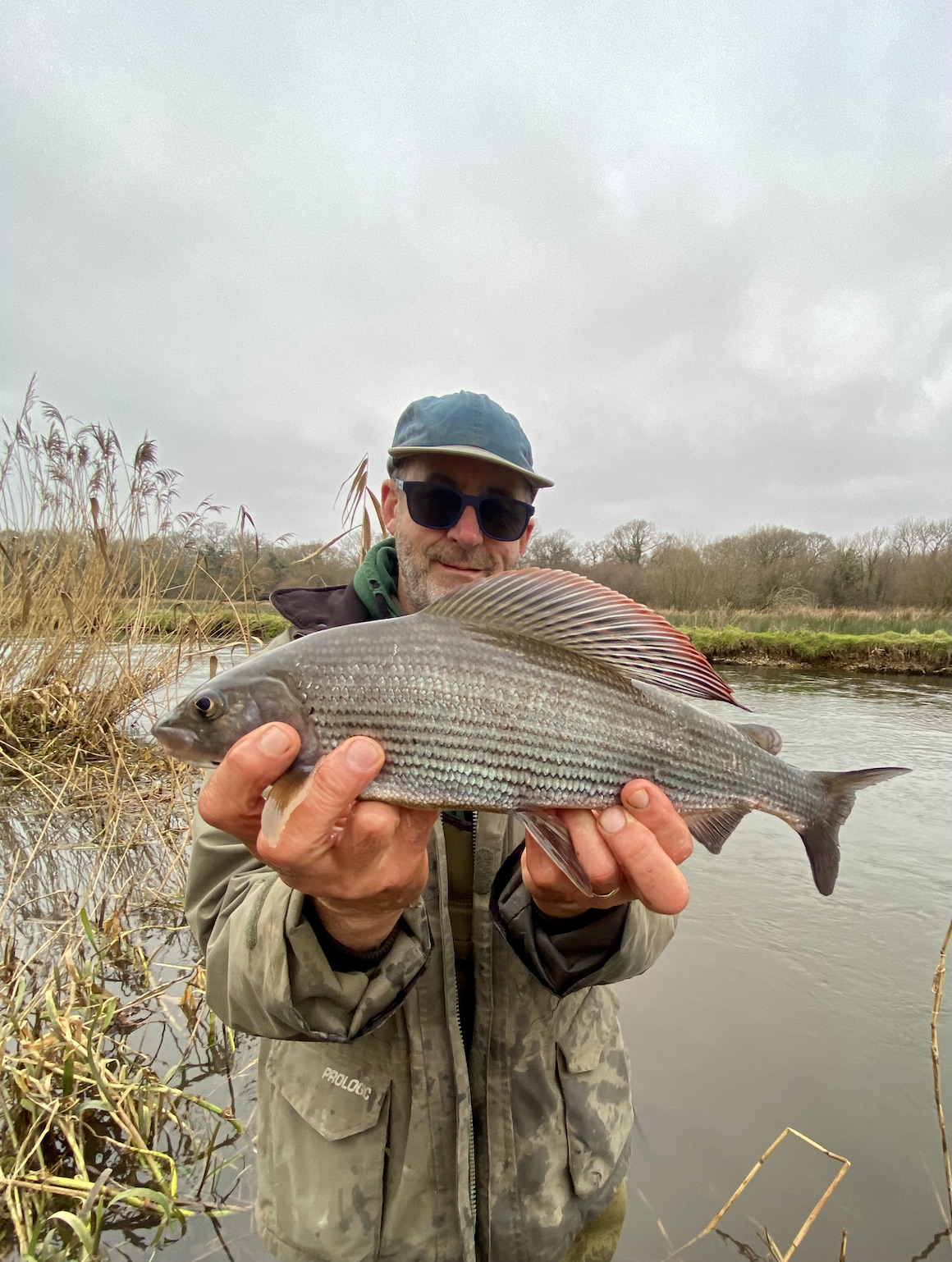
Late afternoon with the light starting to fade I returned to a swim that I had confidence in and persisted trotting the float through a spot I felt drawn to. My conviction proved correct the float dipping to result in a pleasing grayling of 1lb 11oz.
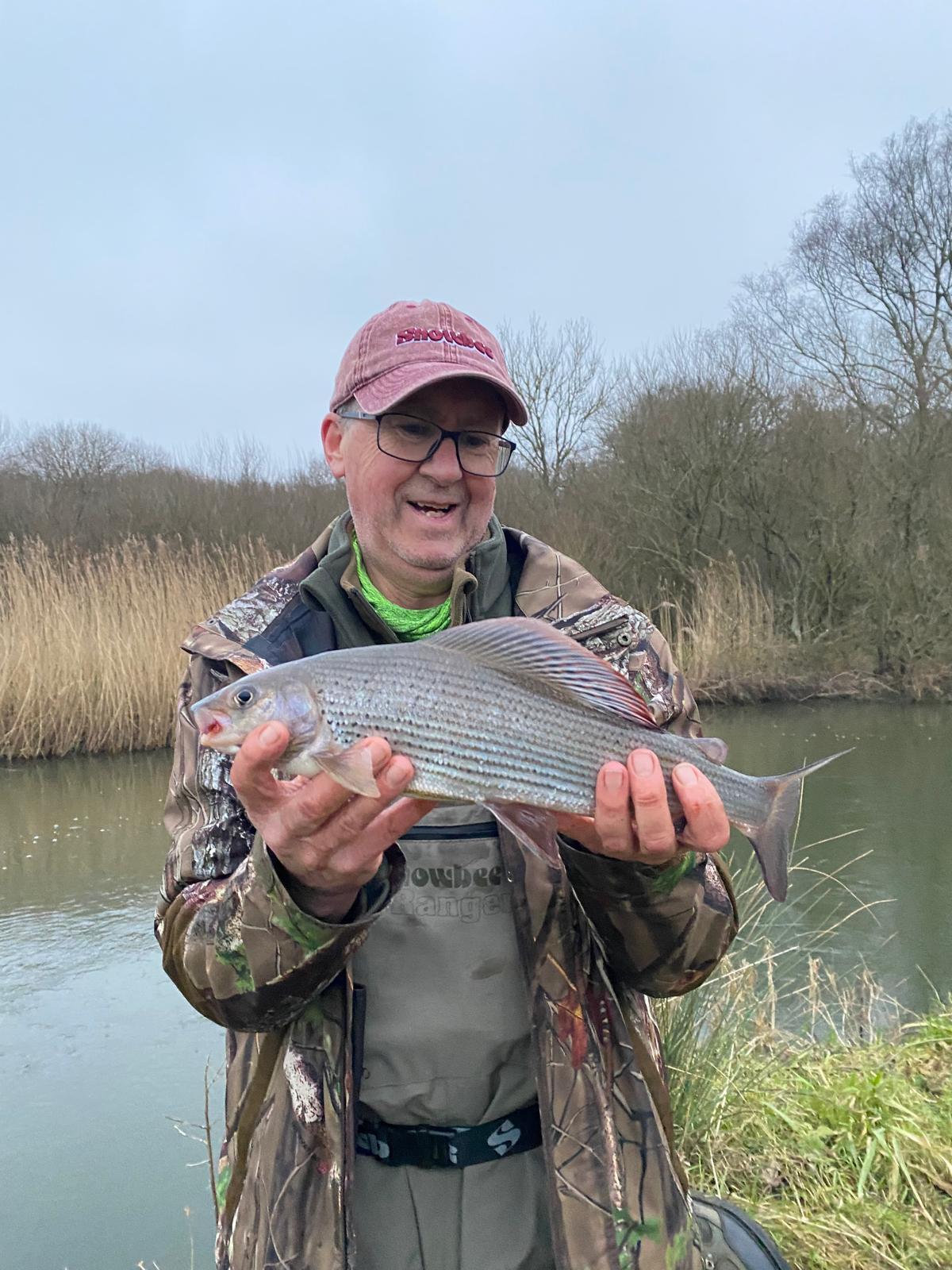

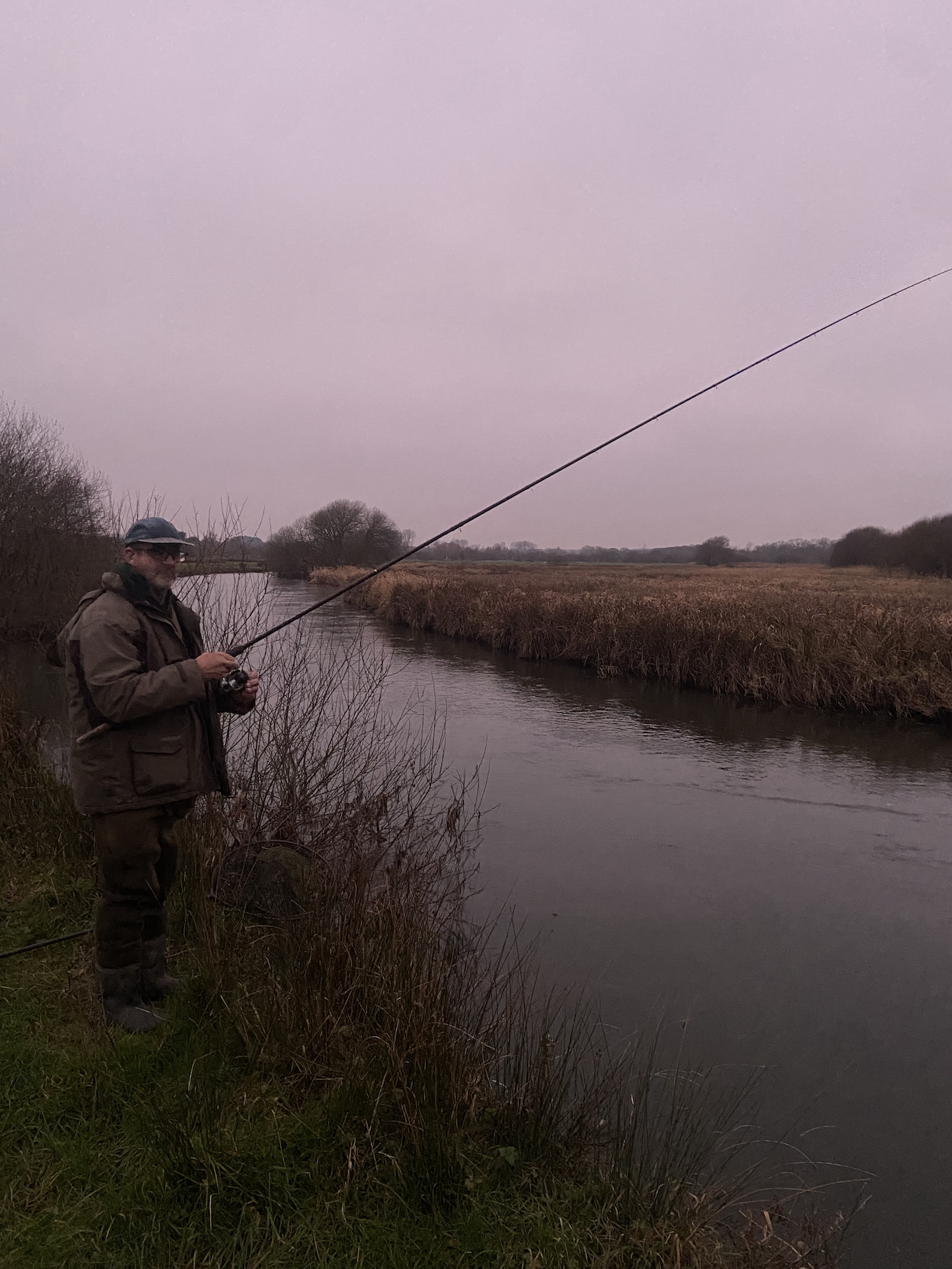
Above and below – Time for one more cast as the fading light makes watching the float an increasing challenge.
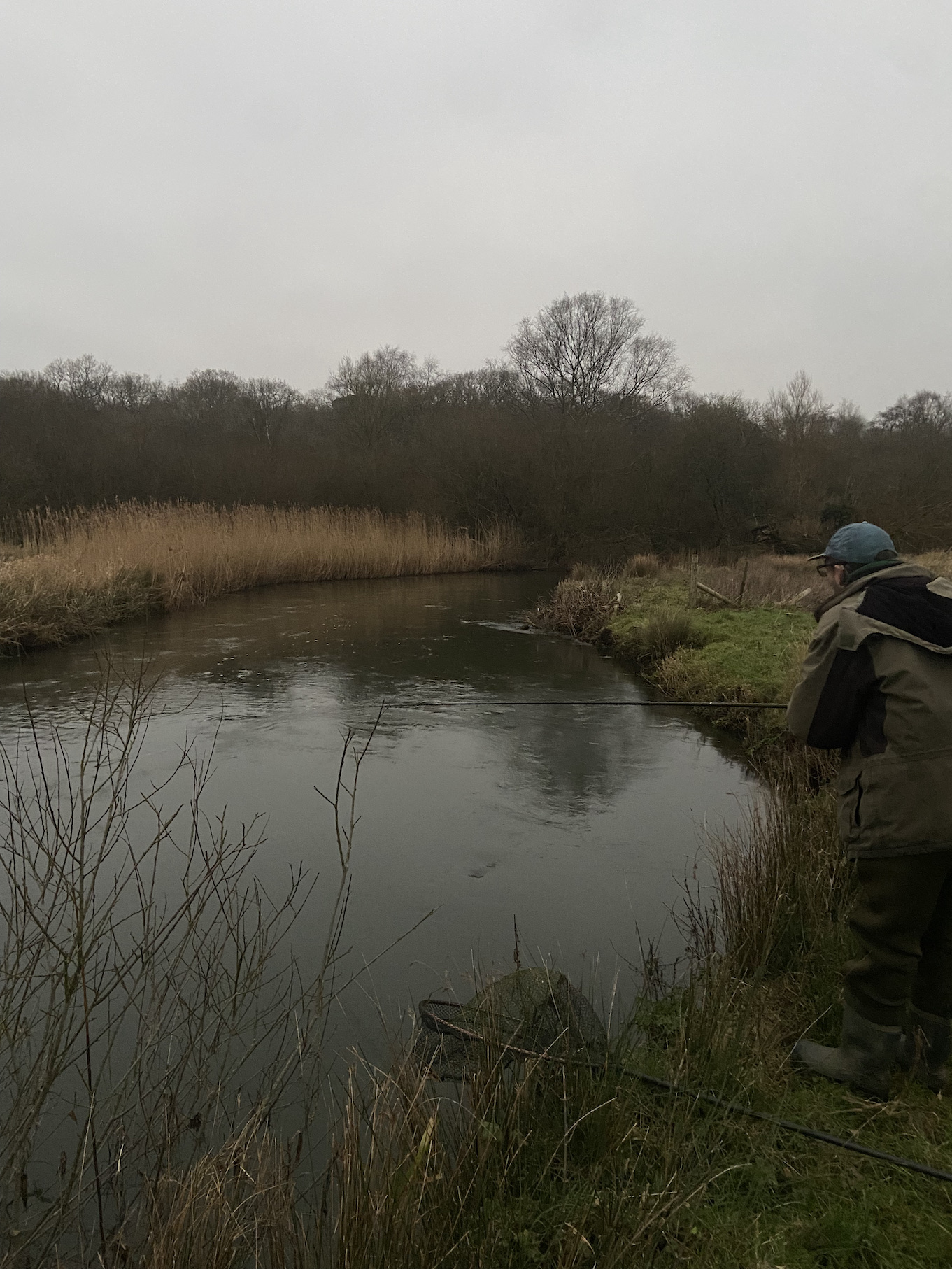
To the none angler the whole episode that involved a 200 plus mile round trip on a short cold winters day would seem difficult to understand. Yet to us it was as memorable and satisfying a day as winning Wimbledon or the Masters.
Grayling are scarce across Devon with a healthy population inhabiting the waters of the River Exe and some of its tributaries. They are also present in some of the River Tamar’s tributaries that form the border between Devon and Cornwall. The River Exe population is the result of a stocking in 1896 when 500 yearlings were stocked from the hatchery at Dulverton. The full story can be found in the book Trout Fishing for Beginners by the Devonshire Fisherman published in 1928.
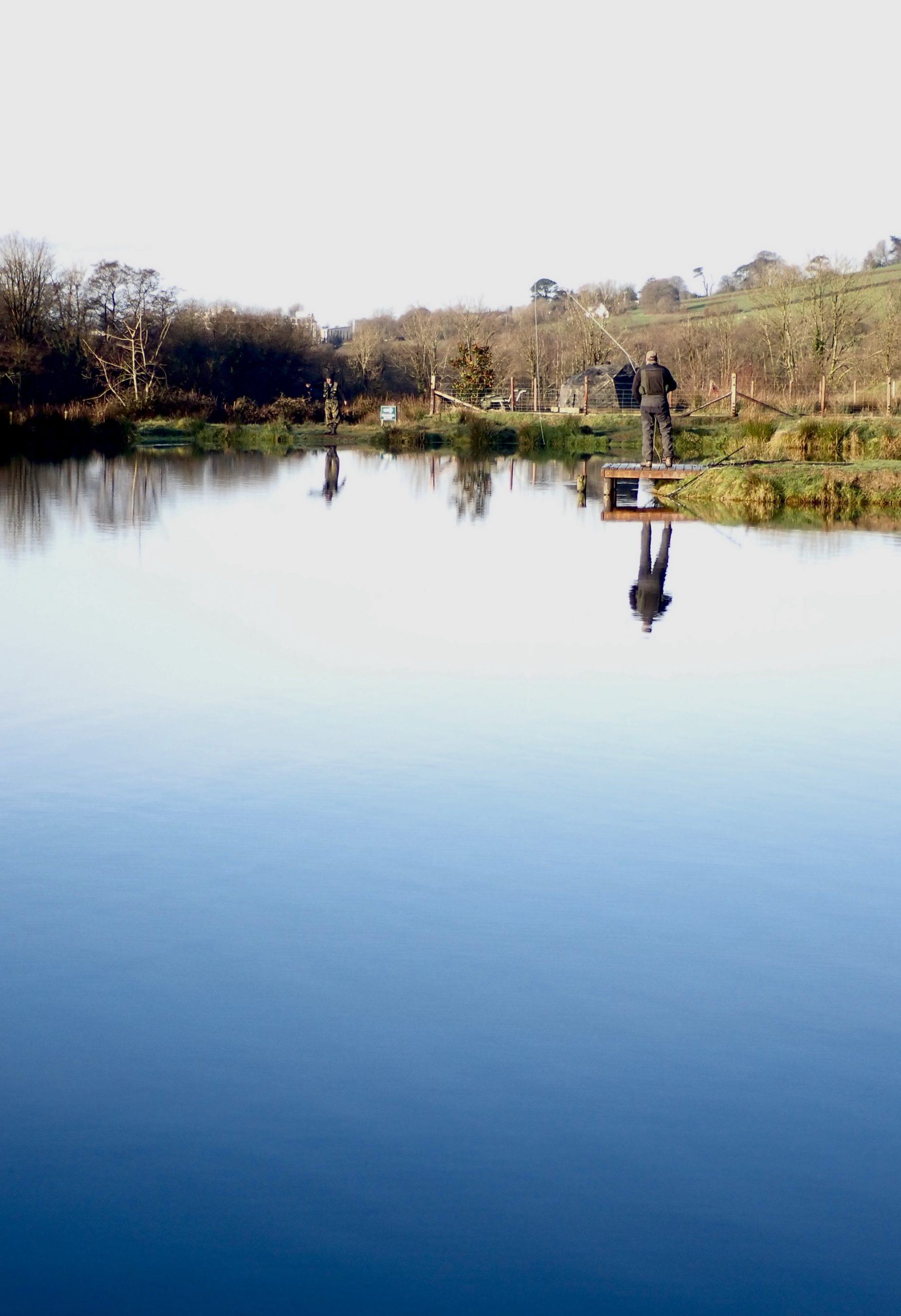 I joined members of Wistlandpound Fly Fishing Club at Bulldog Trout Fishery last Sunday where we were greeted by a bright cloudless blue sky and milder conditions. The trout proved to be generally cooperative with all members catching fish with a mixture of rainbow and brown trout averaging over 3lb. Most fish were tempted using lures fished on long leaders with an erratic retrieve.
I joined members of Wistlandpound Fly Fishing Club at Bulldog Trout Fishery last Sunday where we were greeted by a bright cloudless blue sky and milder conditions. The trout proved to be generally cooperative with all members catching fish with a mixture of rainbow and brown trout averaging over 3lb. Most fish were tempted using lures fished on long leaders with an erratic retrieve.
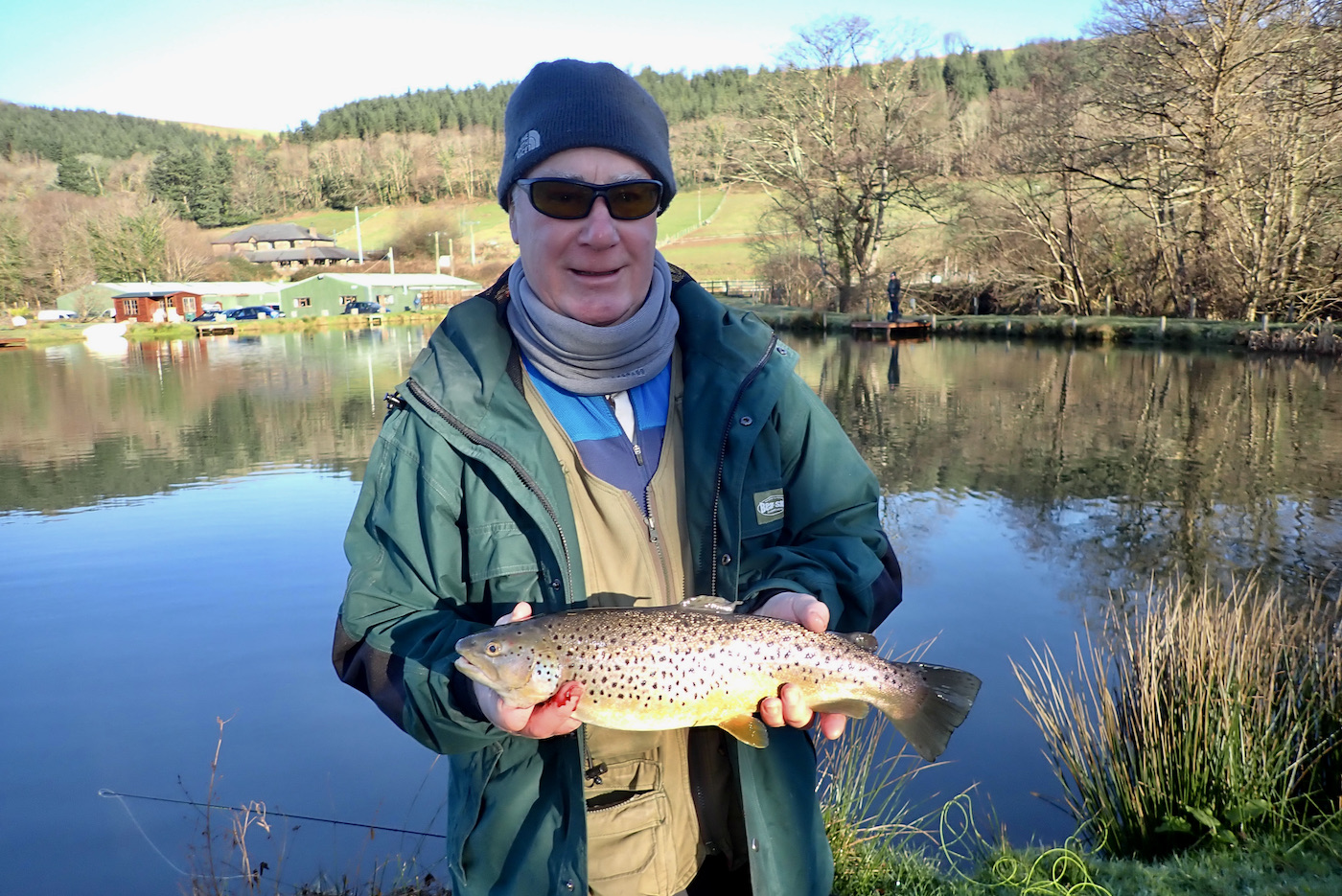
The winning bag was taken by Nigel Bird who had three trout for 10lb. Runner up was Andre Muxworthy with three for 9lb 9oz and myself third with three for 9lb 8oz.
It is intriguing how days unfold during these club competitions on small stillwater’s. Members will all have their favourite flies and lures that give them confidence and it is generally these that are tried first. Typically those first ten to fifteen minutes of fishing produce numerous trout as was the case during Sundays competition. I was fortunate to bank three hard fighting trout within the first twenty minutes and spent the rest of the morning wandering around the fishery with my camera capturing action shots of fellow club members.
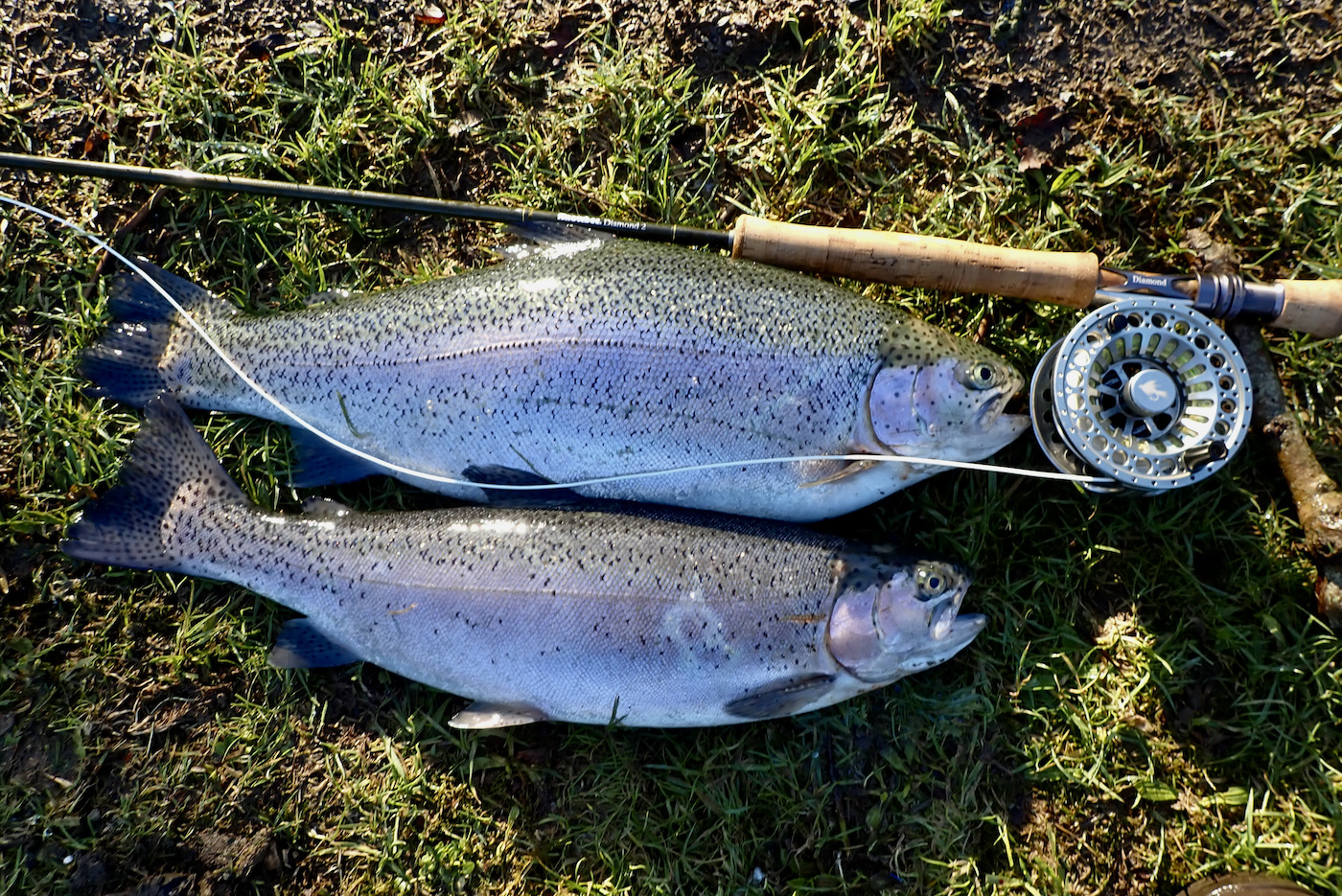
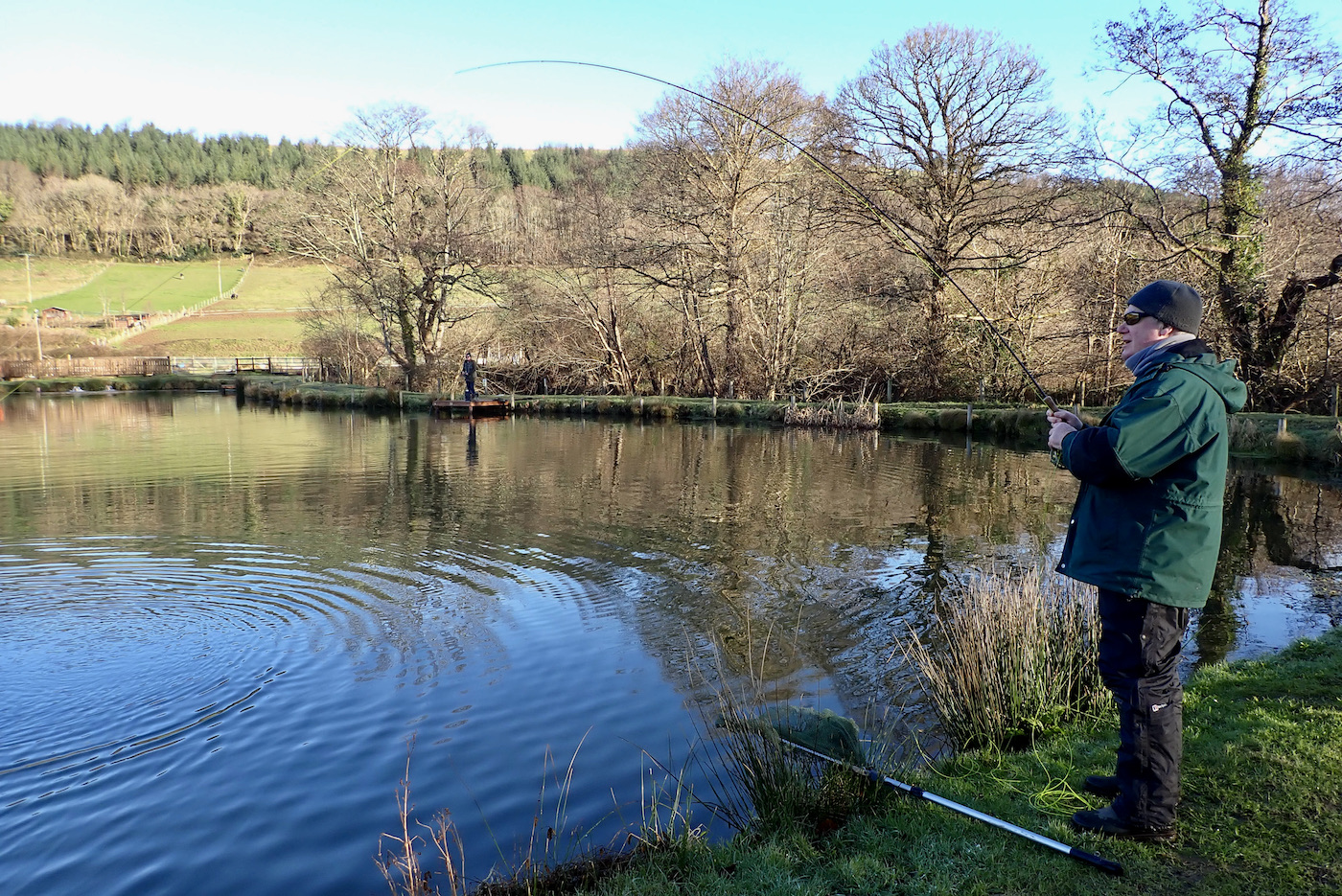
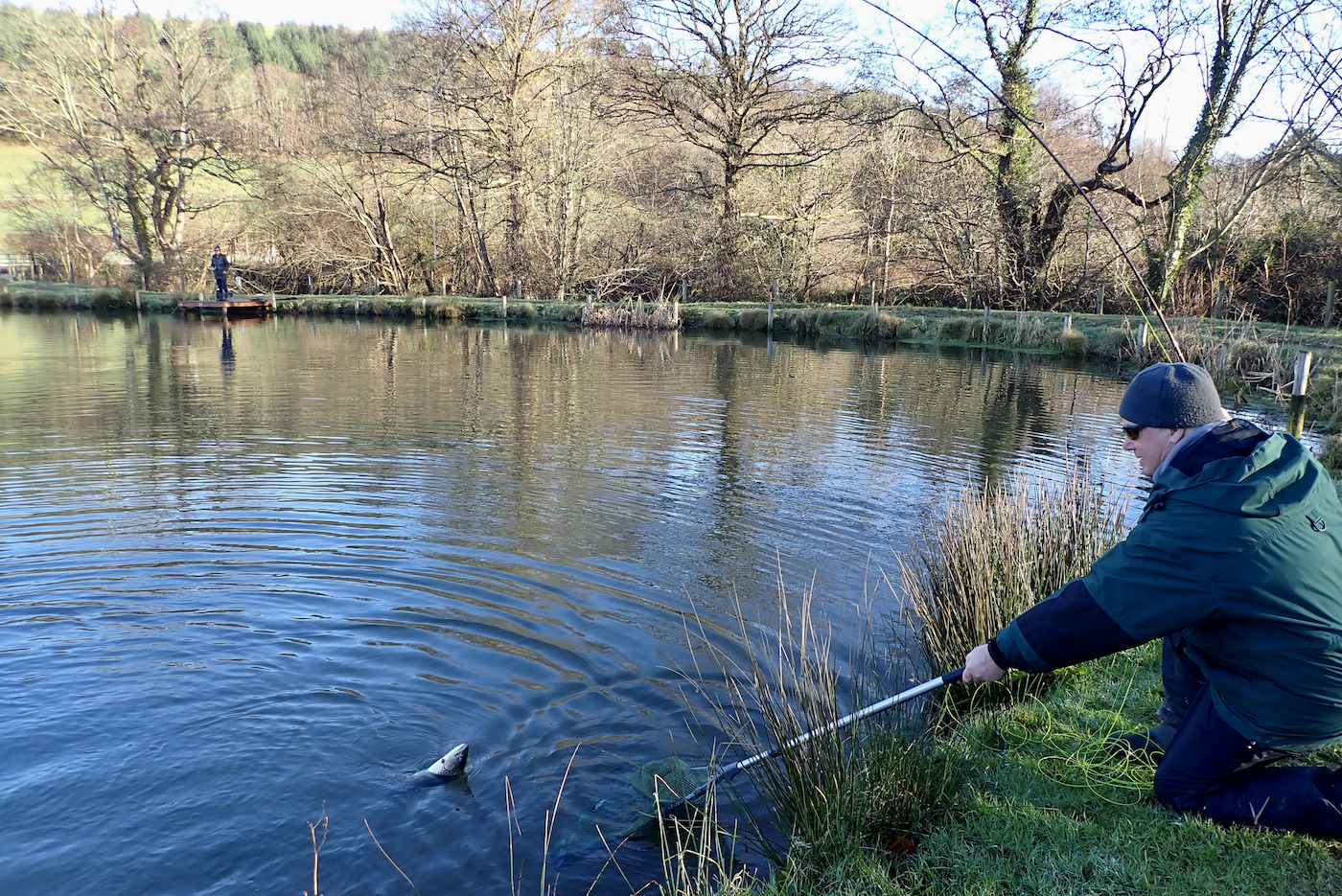
I noted that fishing slowed after the initial flurry and for a while trout proved hard to tempt. After a while some tied on different patterns or moved to a fresh swim. This did sometimes bring results but what was noticeable was that if one angler hooked a fish it was not unusual to see several rods bending at the same time around the fishery as if the fish had suddenly switched on.
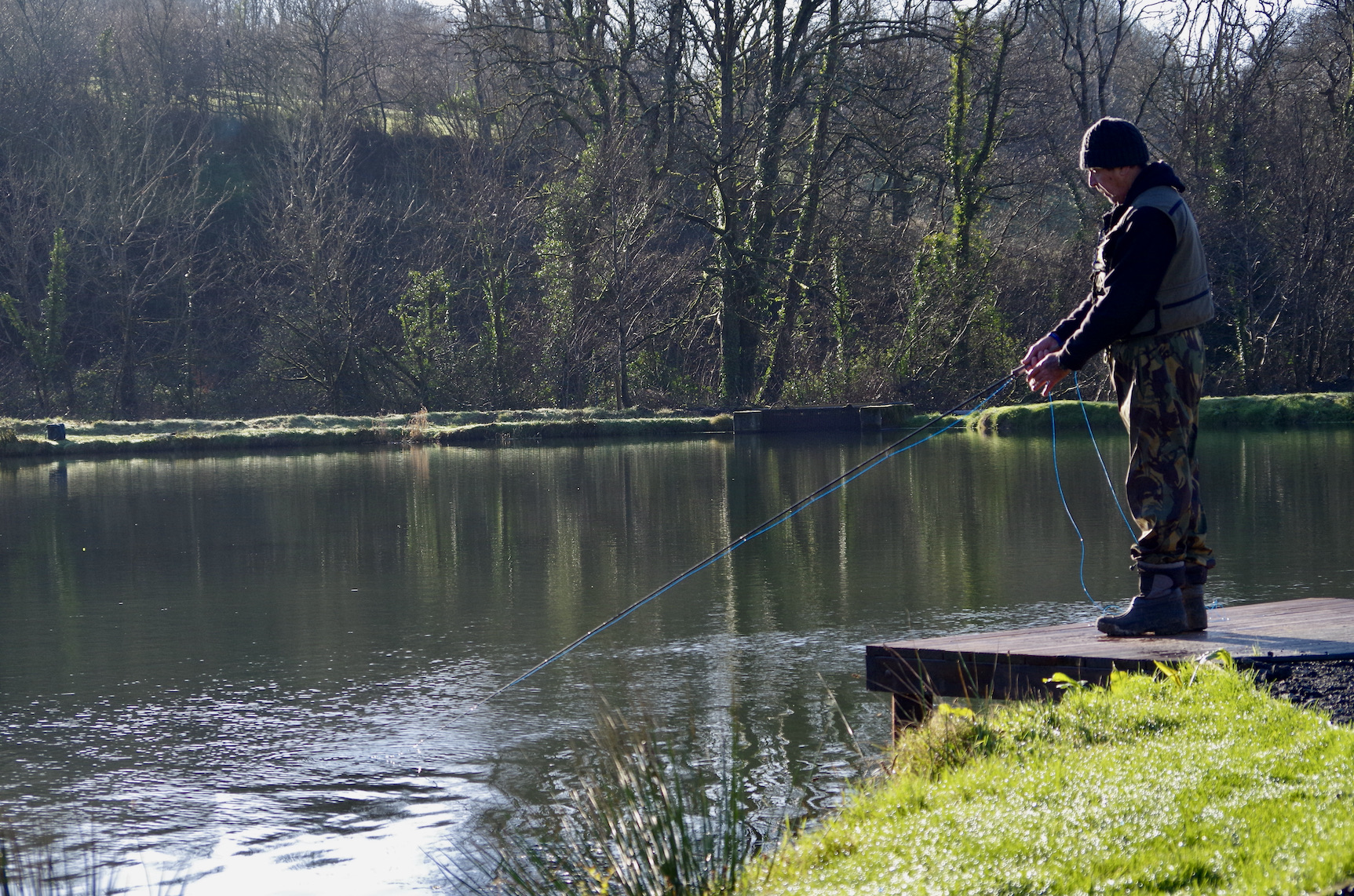
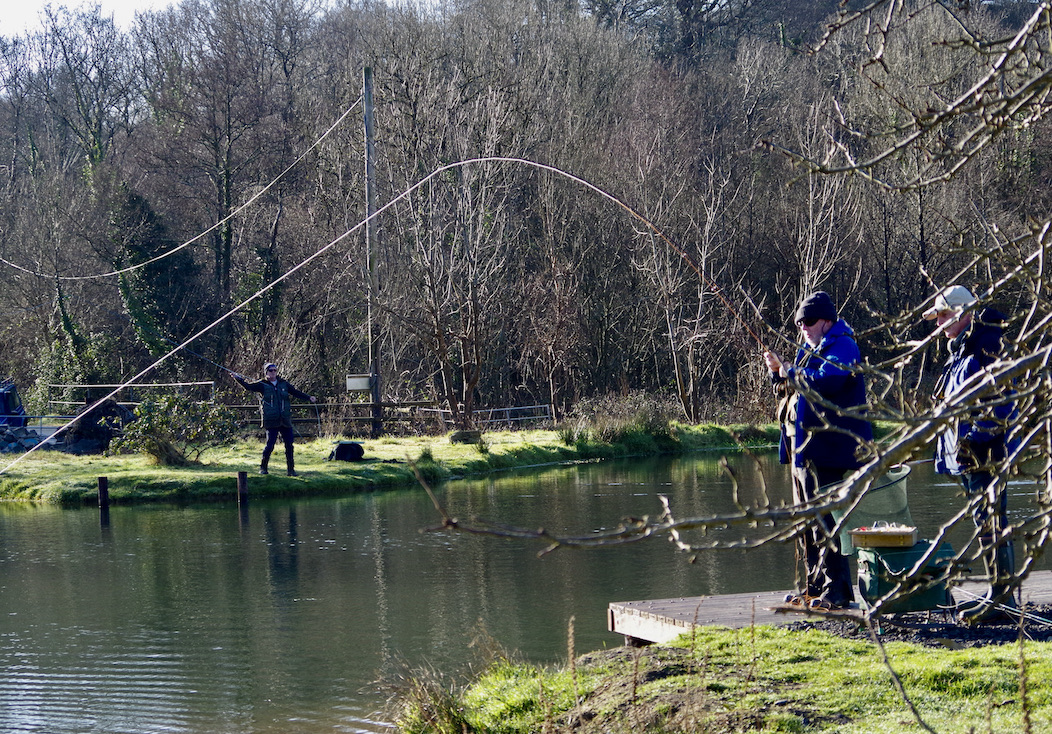

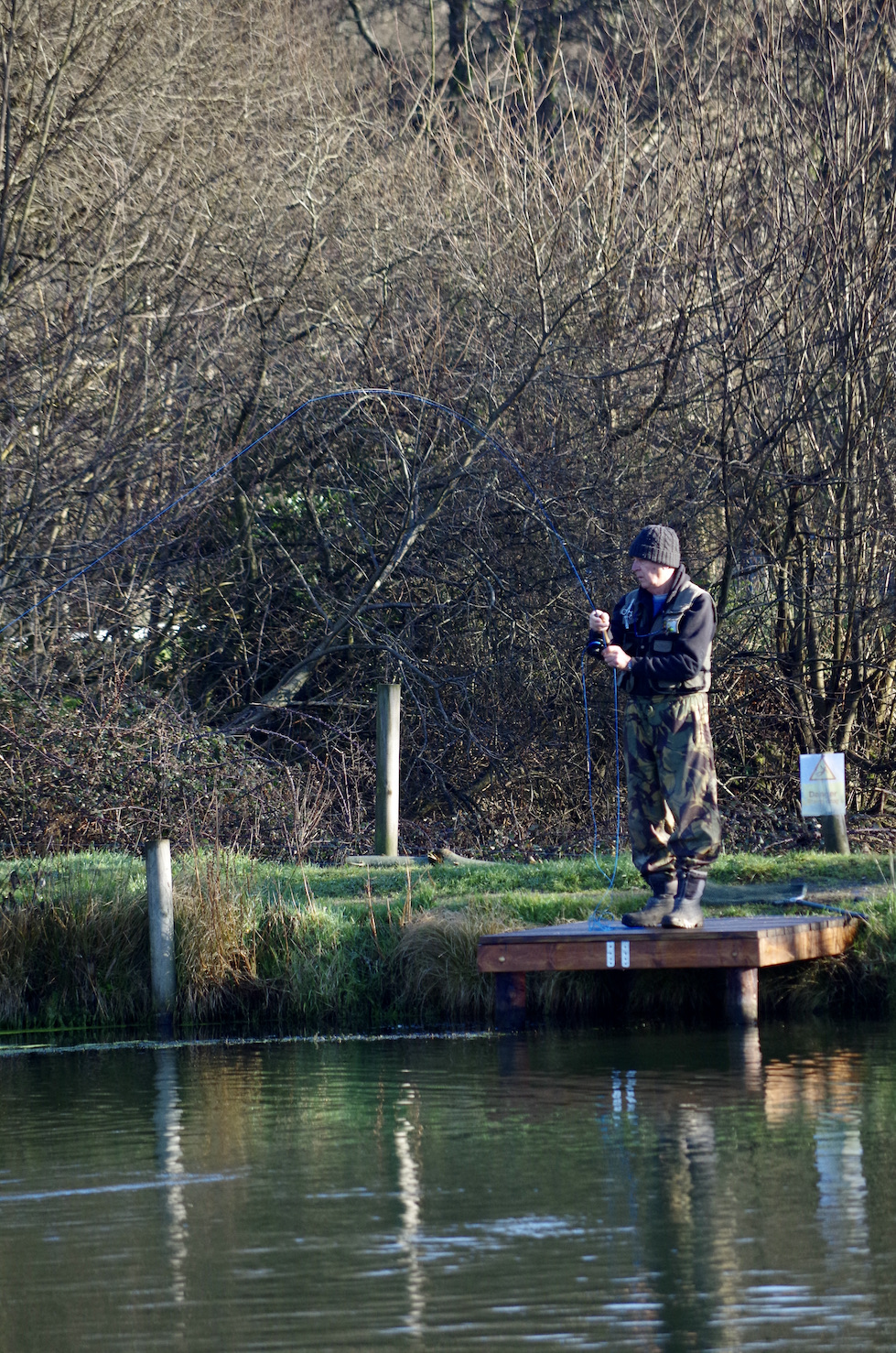
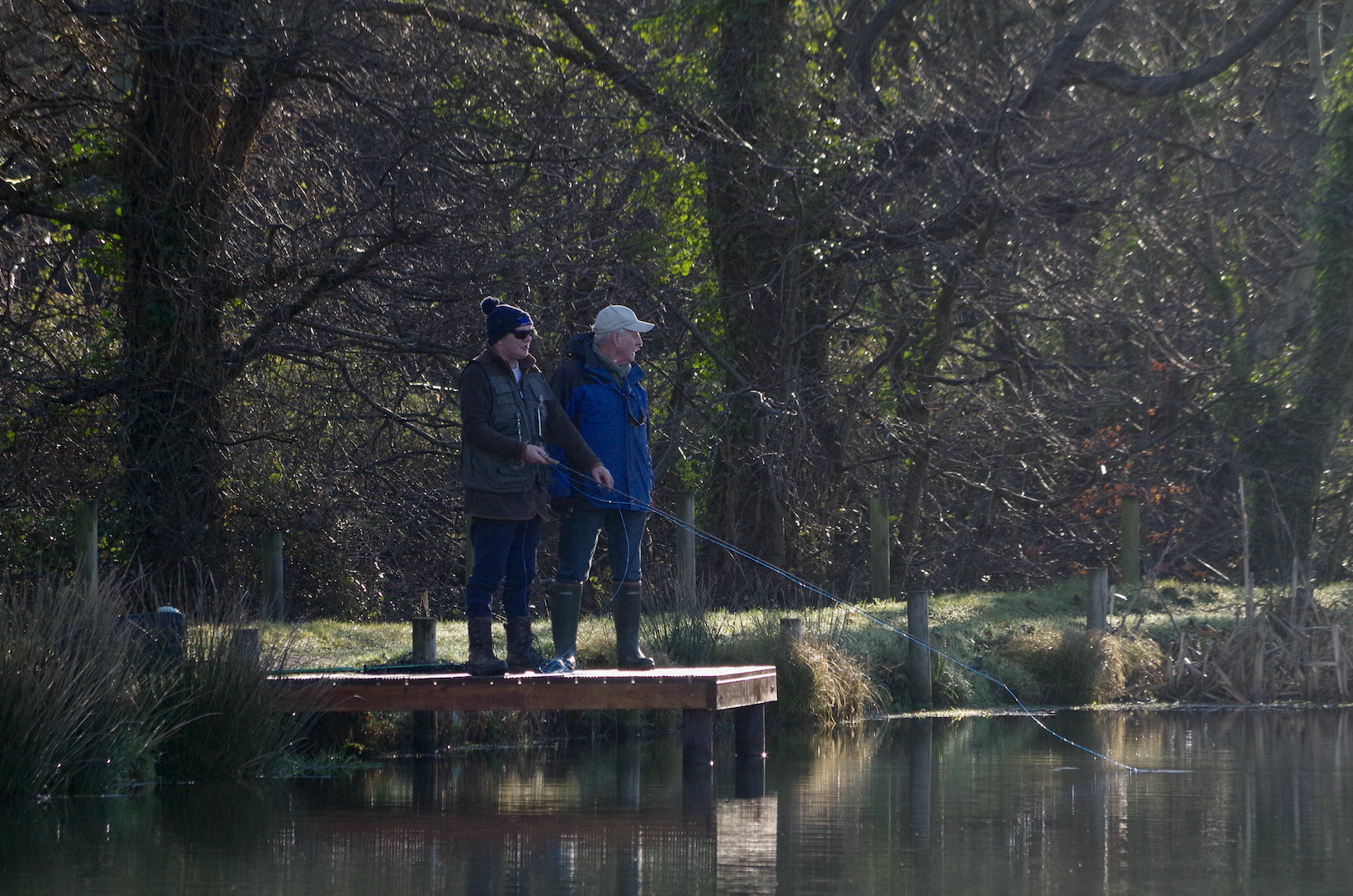
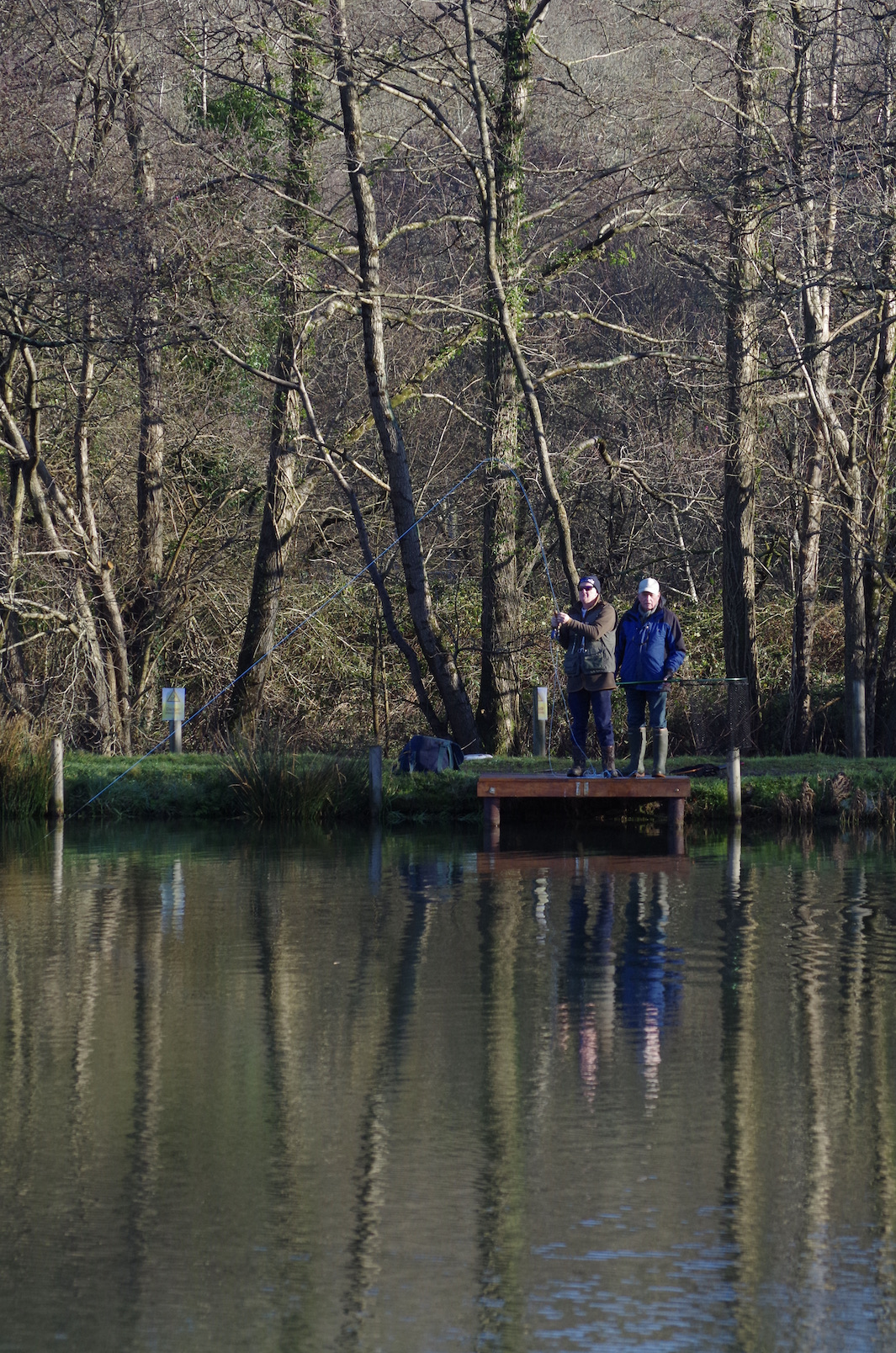
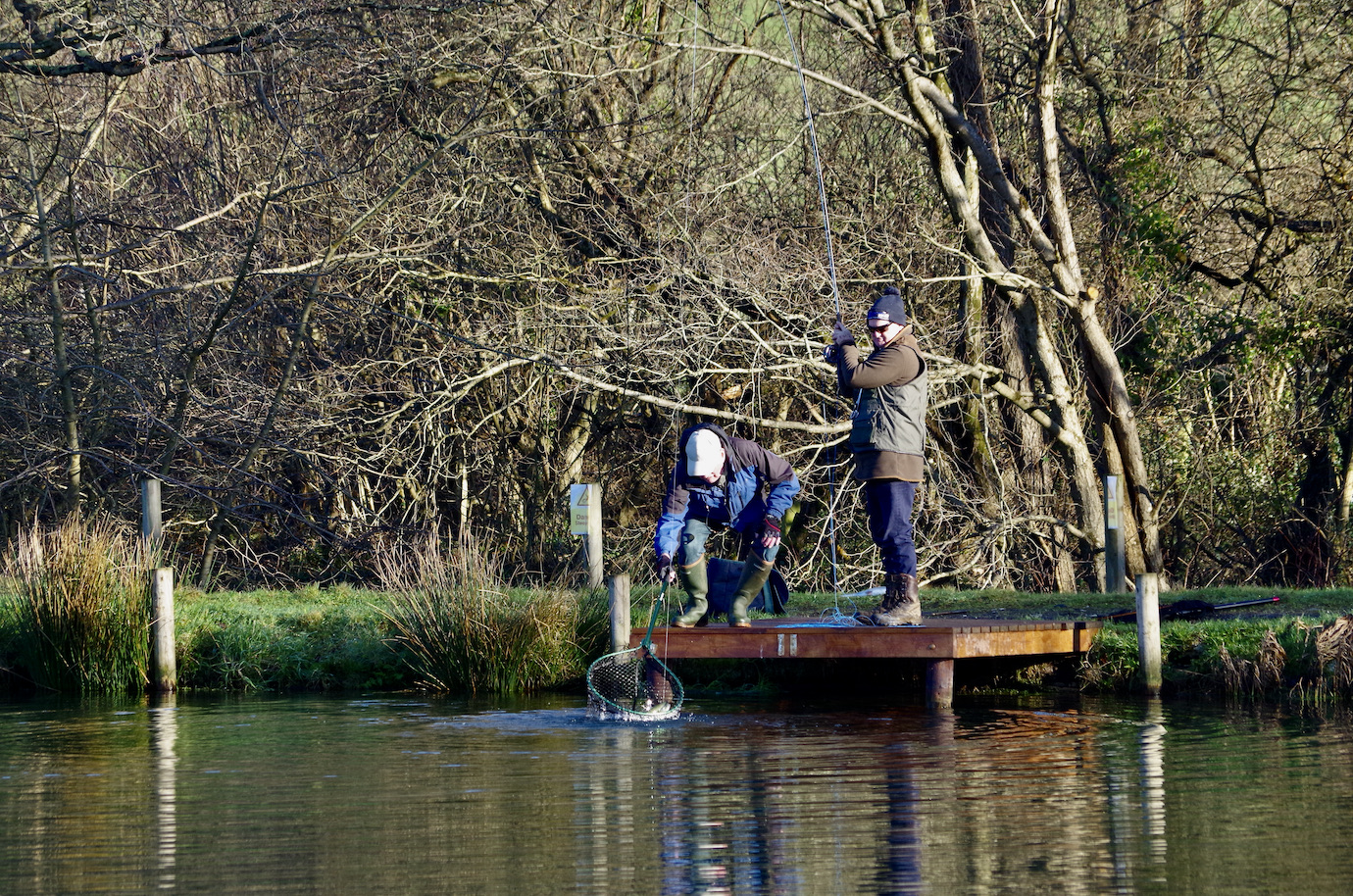

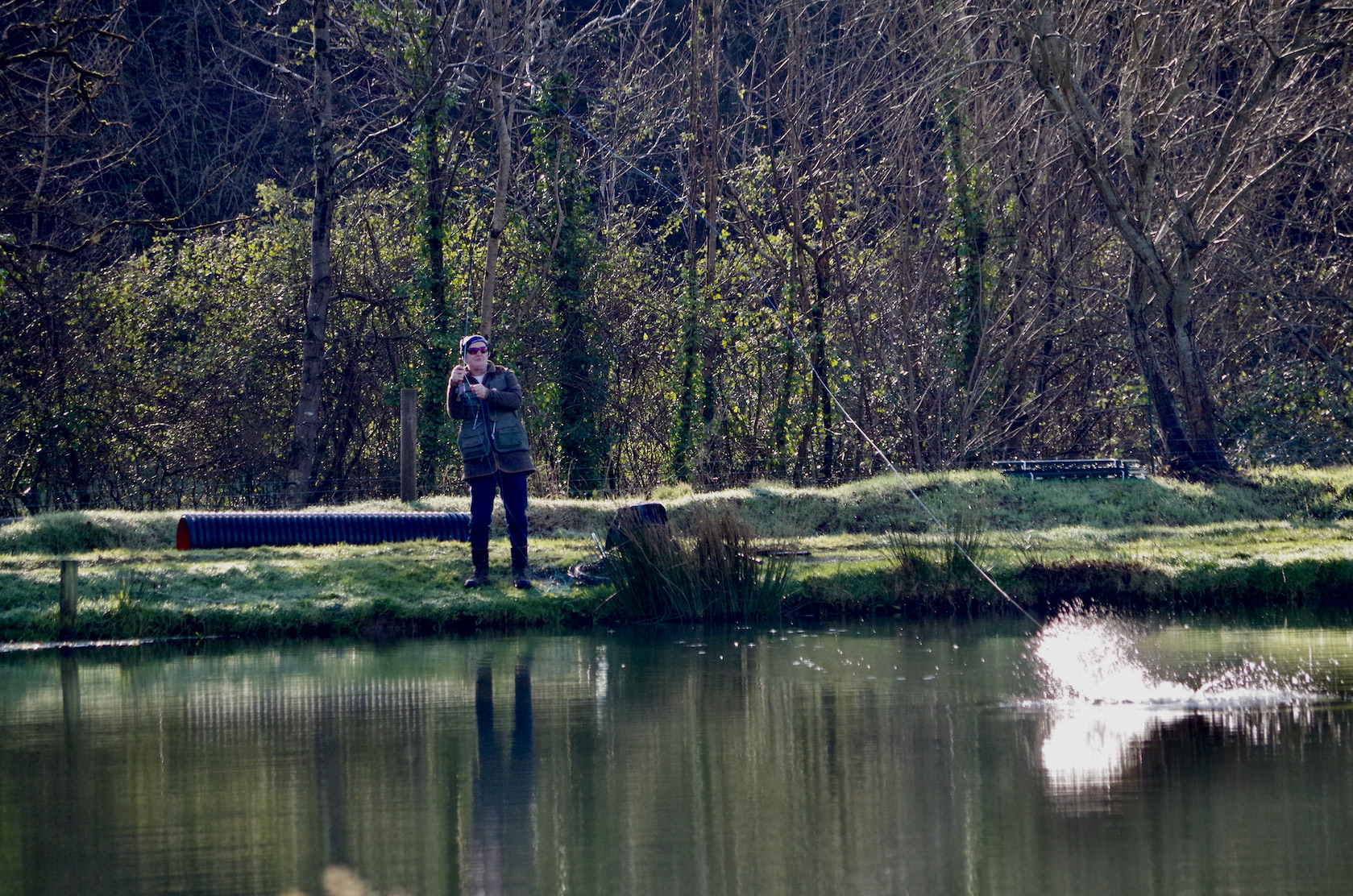
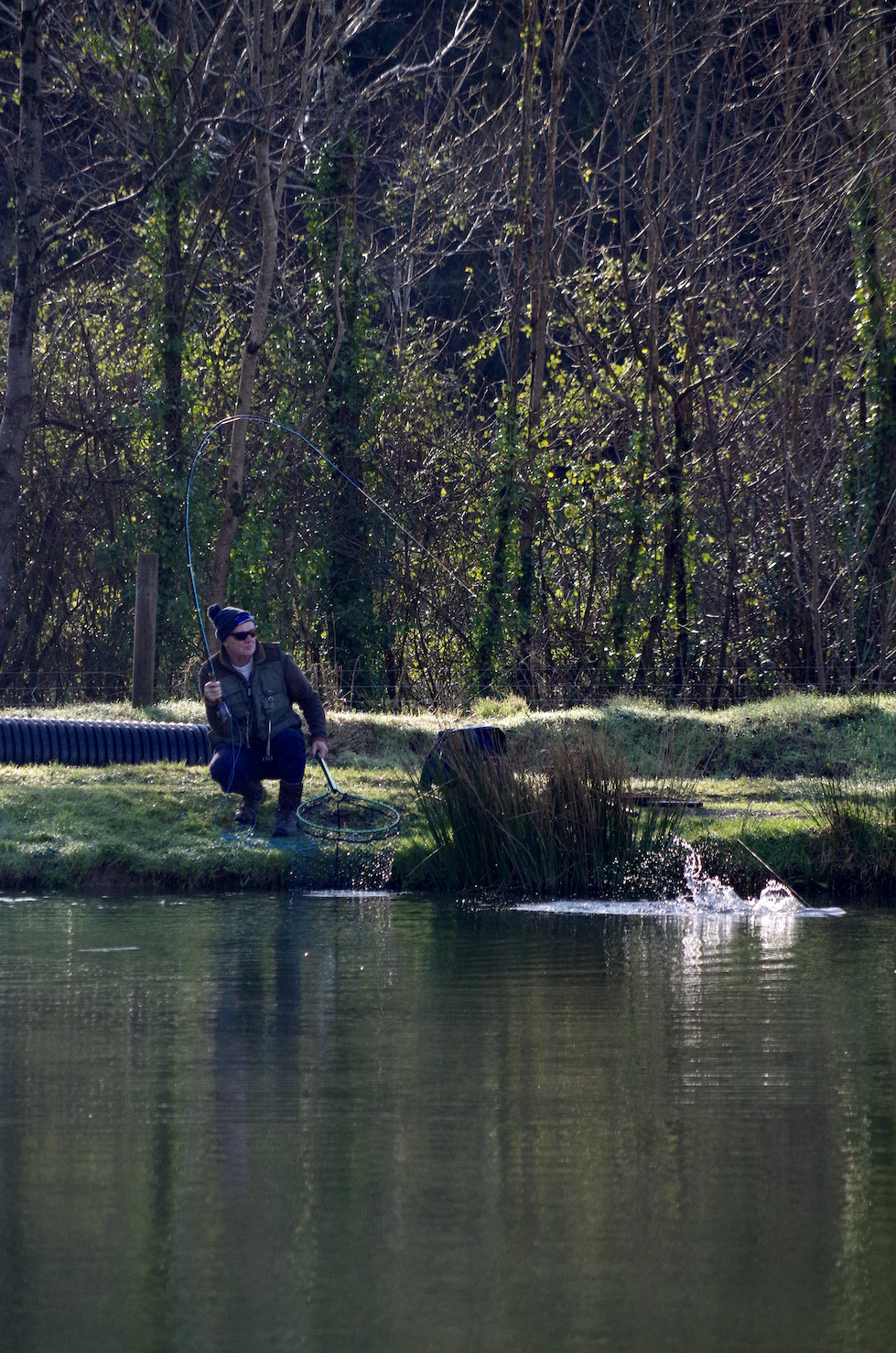
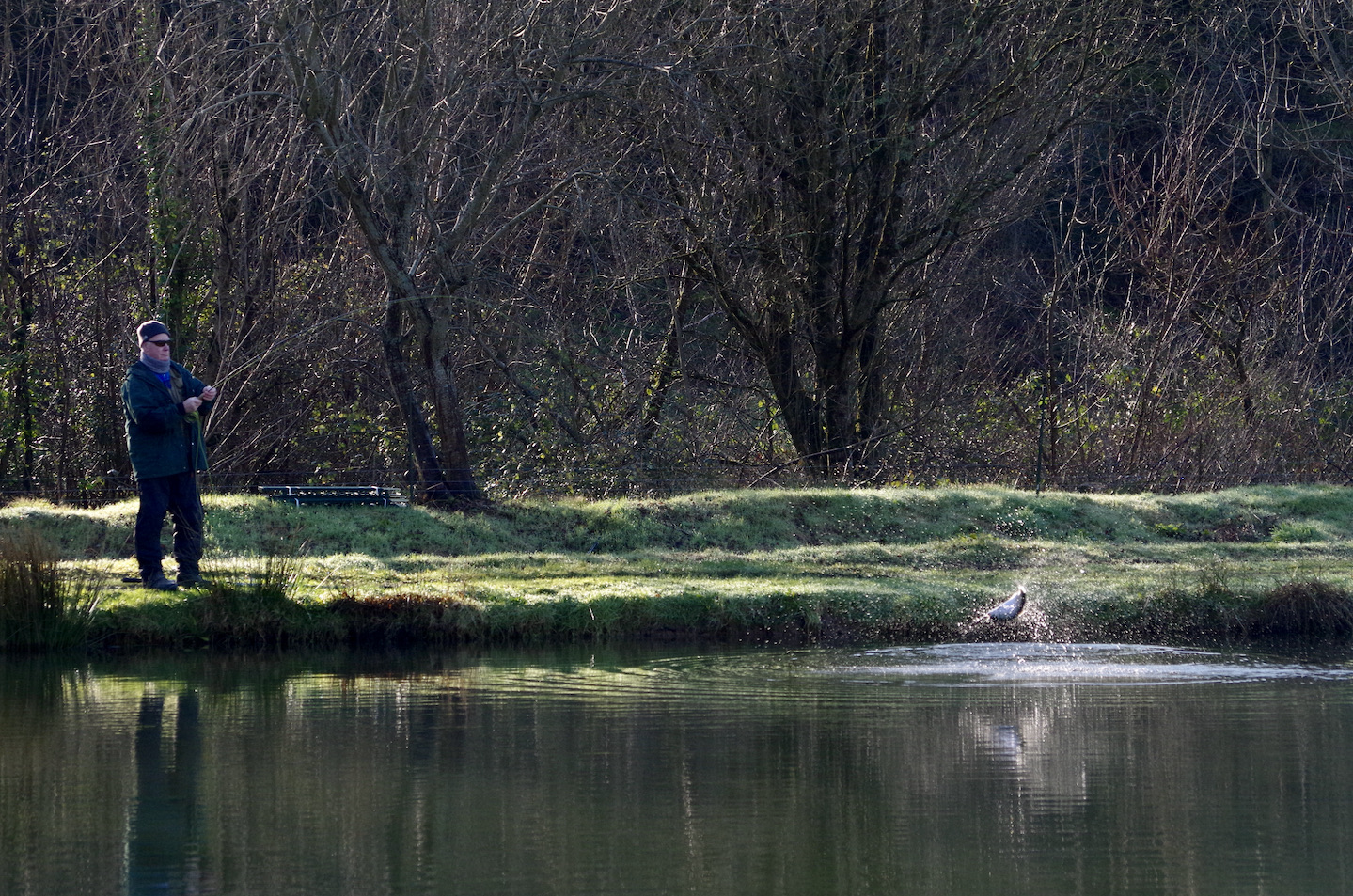
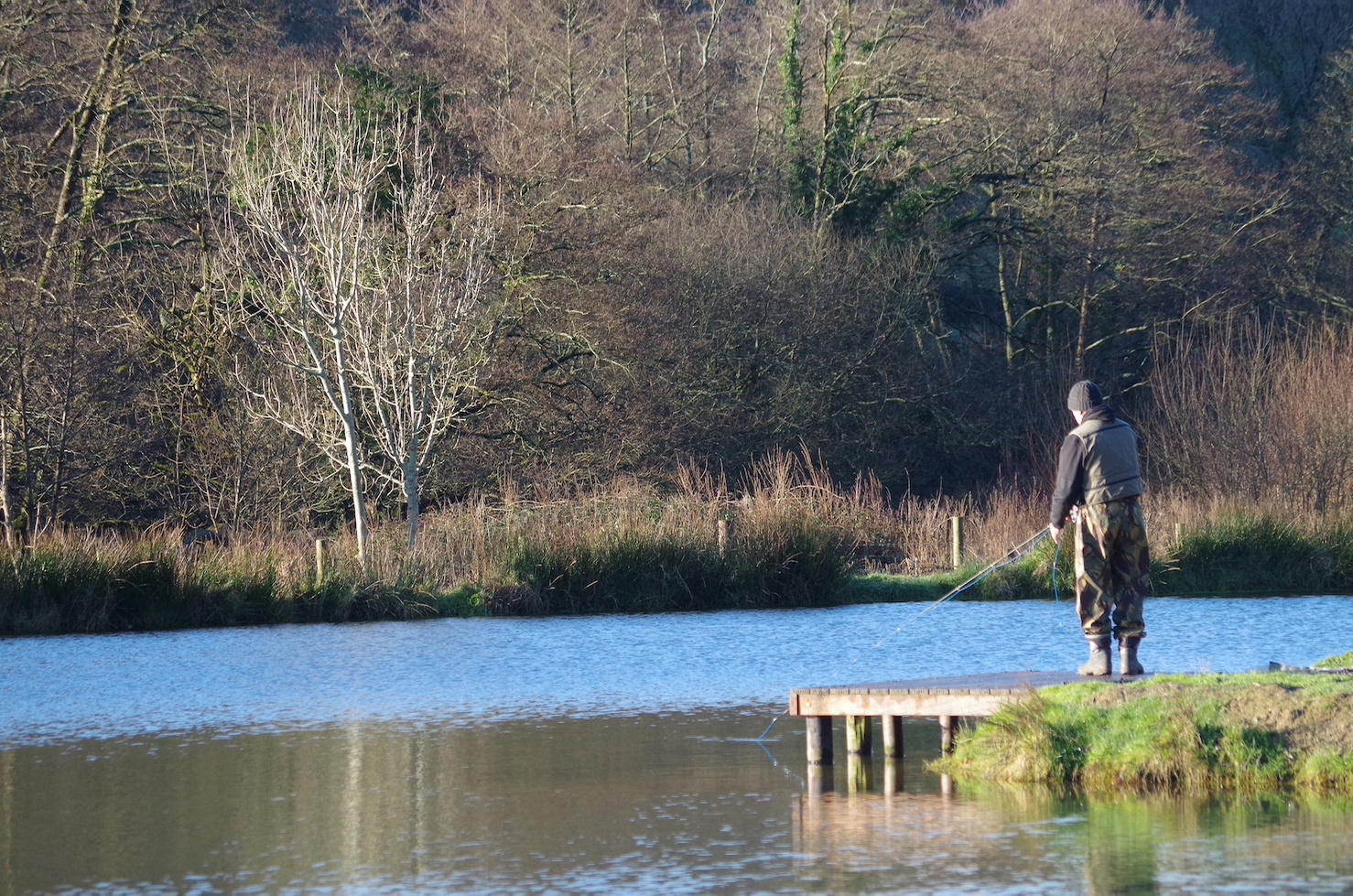
It is always interesting to compare notes at the end of the days fishing and I often note how an angler will state that a change of fly has triggered a response with perhaps a touch of orange or pink bringing success. A particular fly often seems to be the one to use! Yet it is often the case at the end of fishing as anglers chat that trout have been caught on a wide range of patterns. One angler swearing that white was the killer fly whilst others boast of success with black or orange.
There are many factors involved in the inexact science of fly fishing. Presentation of the fly, its size and colour, depth it is fished all interacting with water clarity, temperature, air pressure, lunar cycles, natural food sources and of course the location of the fish. All these factors make for a fascinating game that takes the mind away from the troubled world. The angler absorbed in natures complex chess board pondering upon tying on a Greenwell’s glory or a Wickham’s fancy.
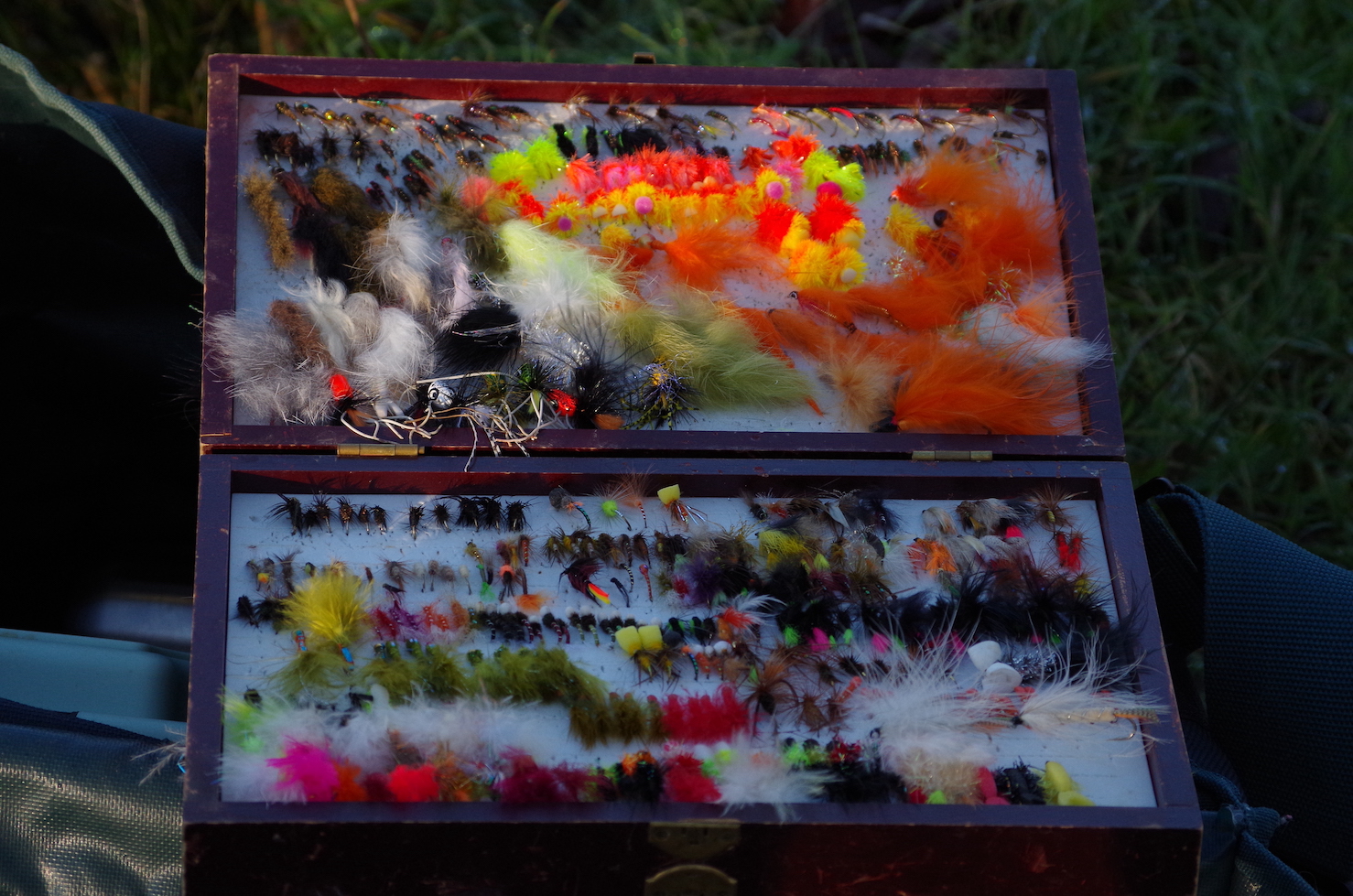
Tip of the day – Check your flies and hooks. Several trout were lost during the day as hook shanks snapped. Hook shanks hidden beneath dressings can rust resulting in weakness that only show itself when a large powerful trout puts it to the test.
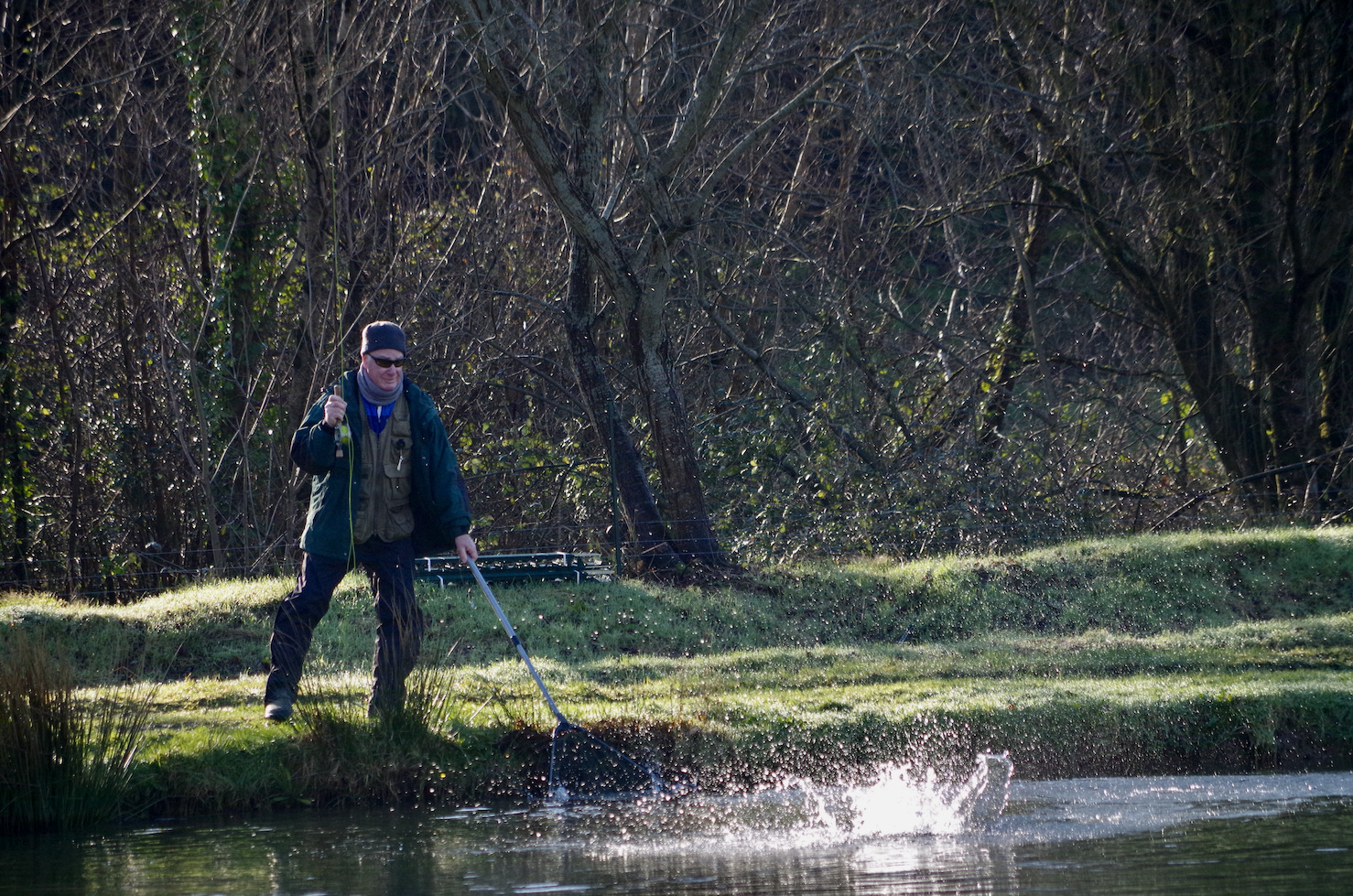
Seconds after this shot was taken Nigel cursed as his hook broke.
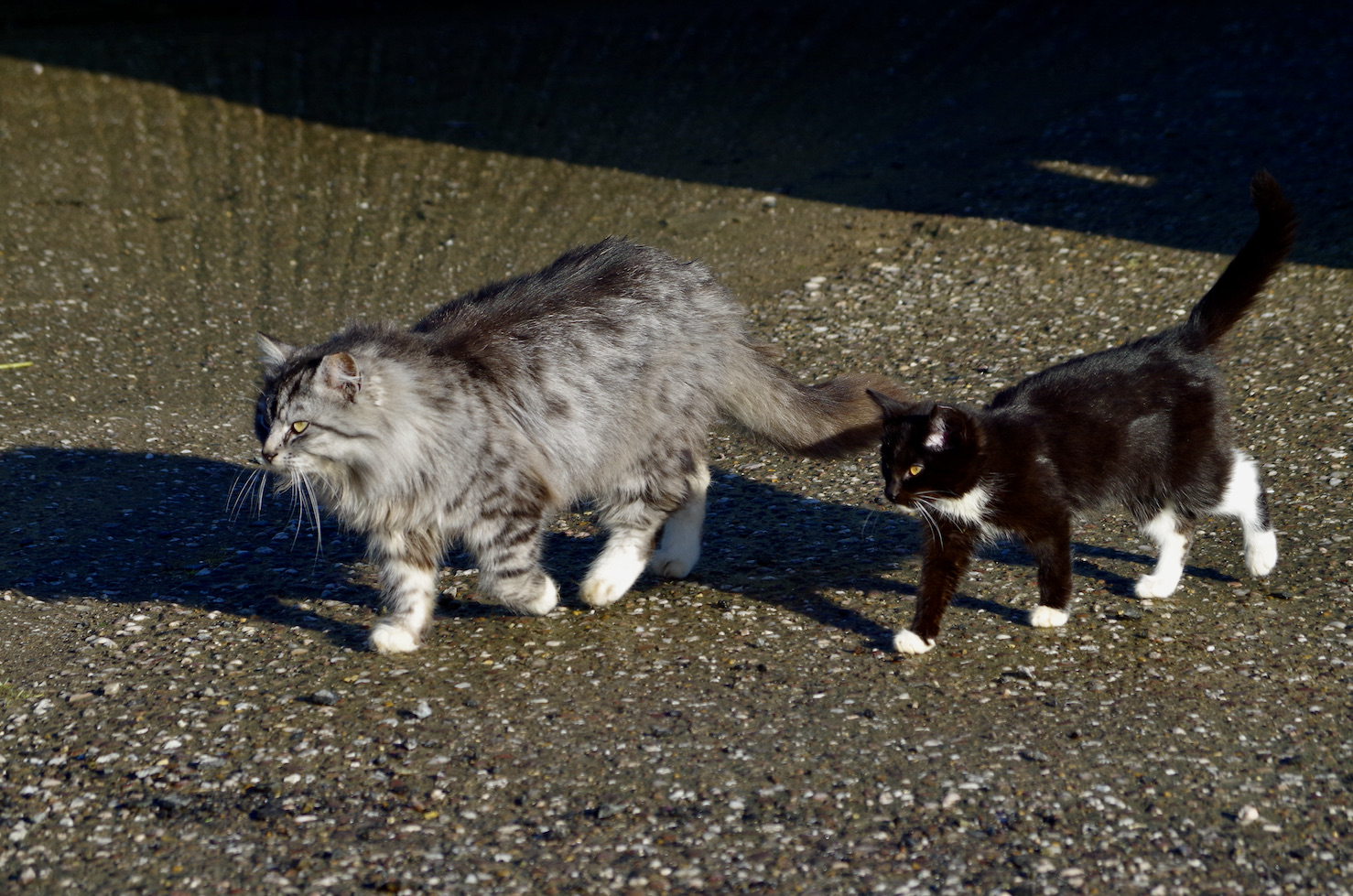
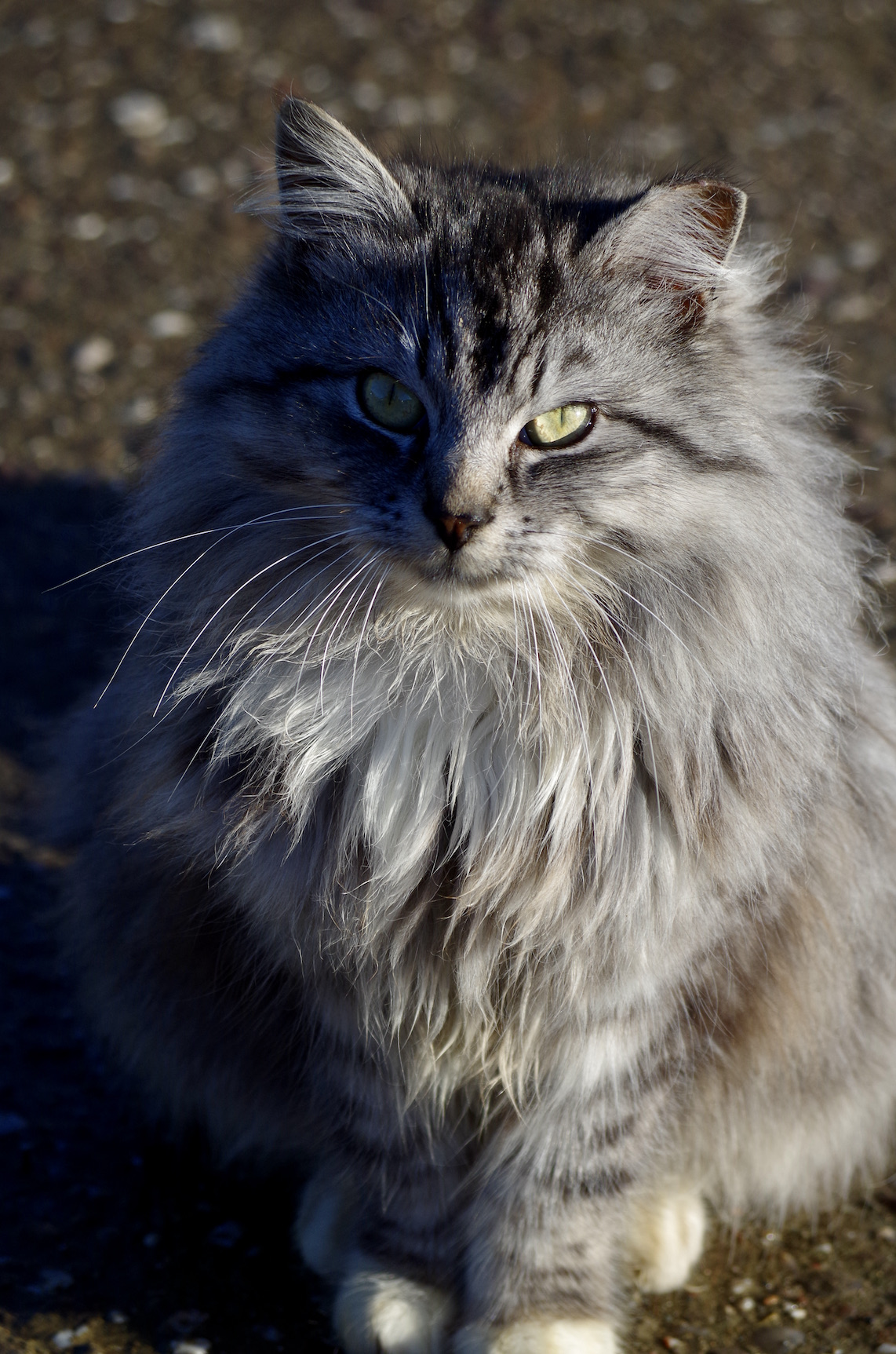

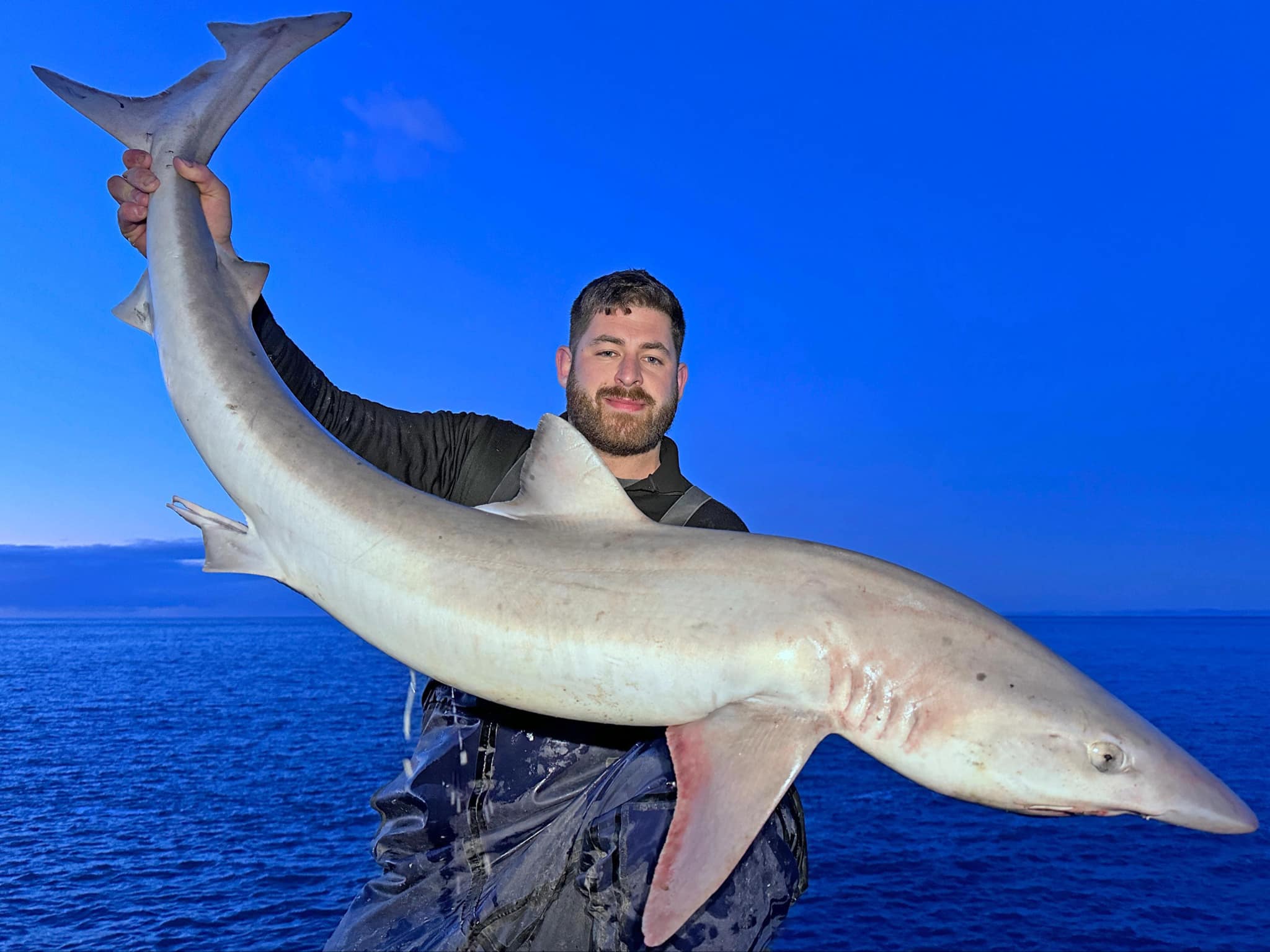 Fifteen club members fished in Combe Martin SAC’s ten day long Festive Fish and the winning anglers found some exceptional fish. Shane Pavio Hookway secured first and second places tempting a fine tope of 43lb 6oz ( 144%) and a specimen pouting of 2lb 2oz (141%). Kyle Bishop was third with a conger of 26lb 1oz ( 130%) and Ollie Passmore forth with a bull huss of 10lb 9oz.
Fifteen club members fished in Combe Martin SAC’s ten day long Festive Fish and the winning anglers found some exceptional fish. Shane Pavio Hookway secured first and second places tempting a fine tope of 43lb 6oz ( 144%) and a specimen pouting of 2lb 2oz (141%). Kyle Bishop was third with a conger of 26lb 1oz ( 130%) and Ollie Passmore forth with a bull huss of 10lb 9oz.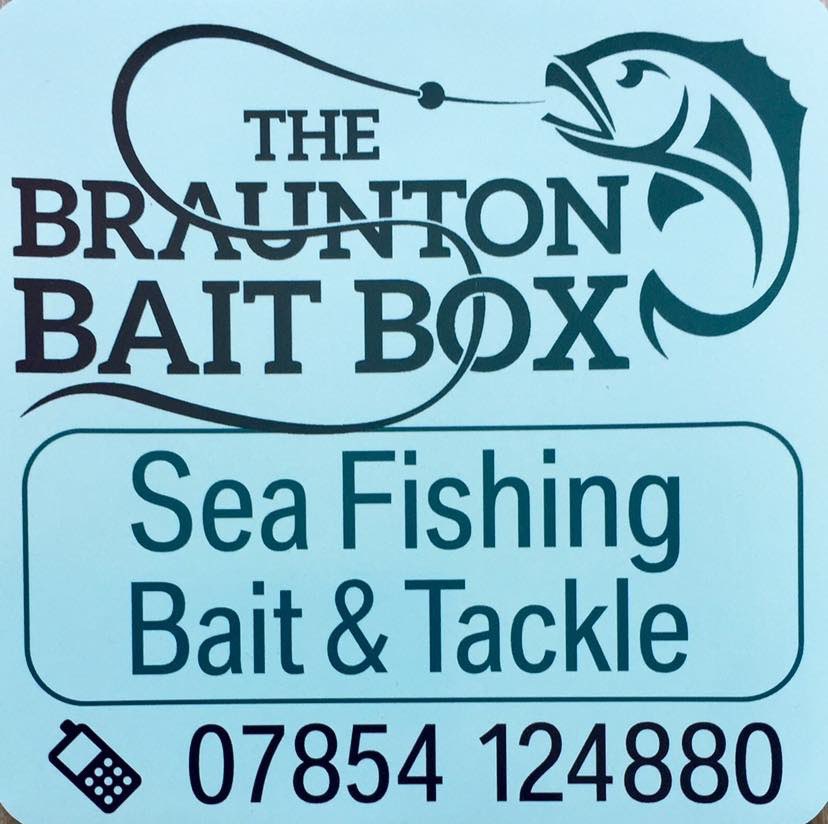
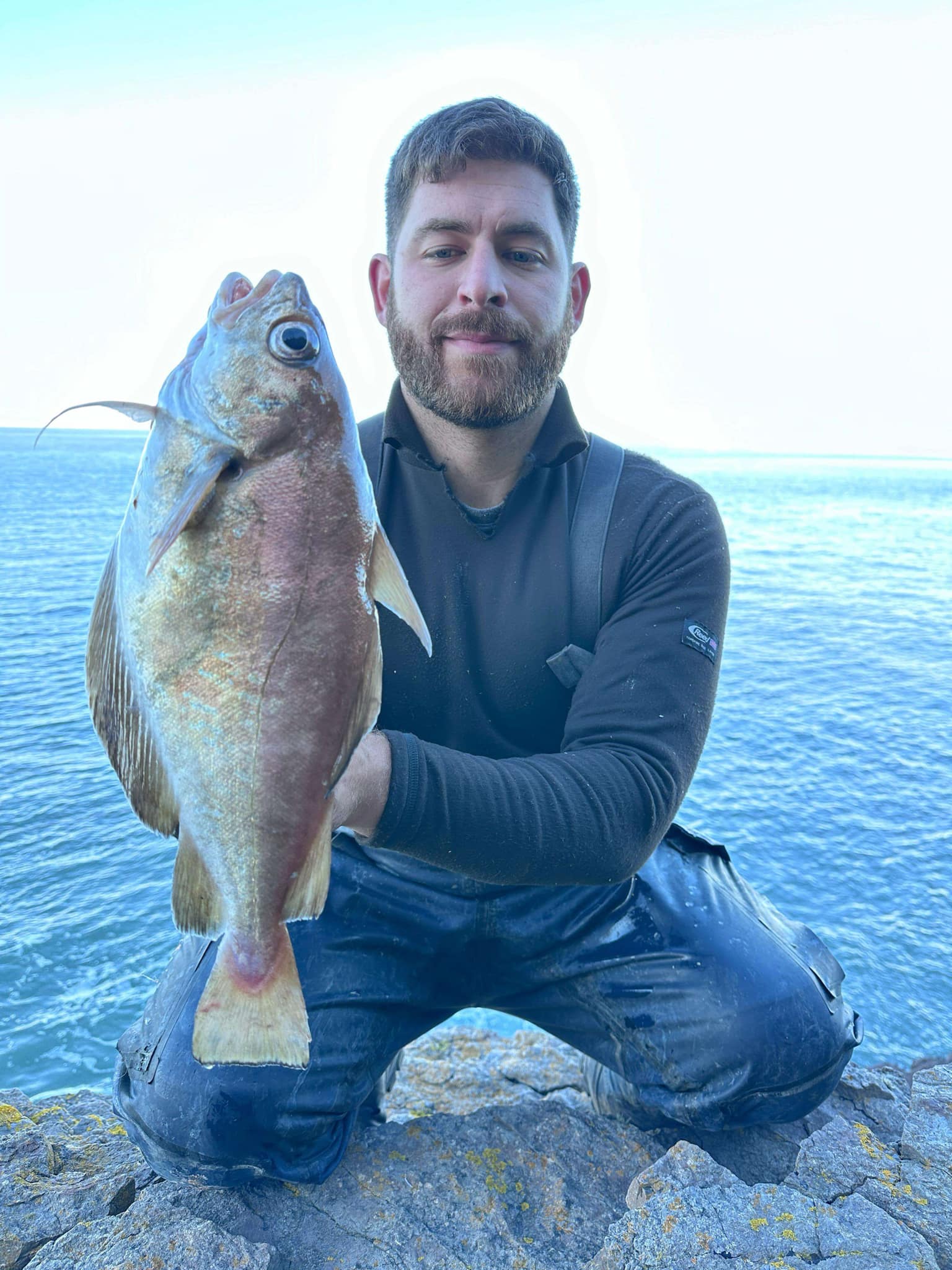
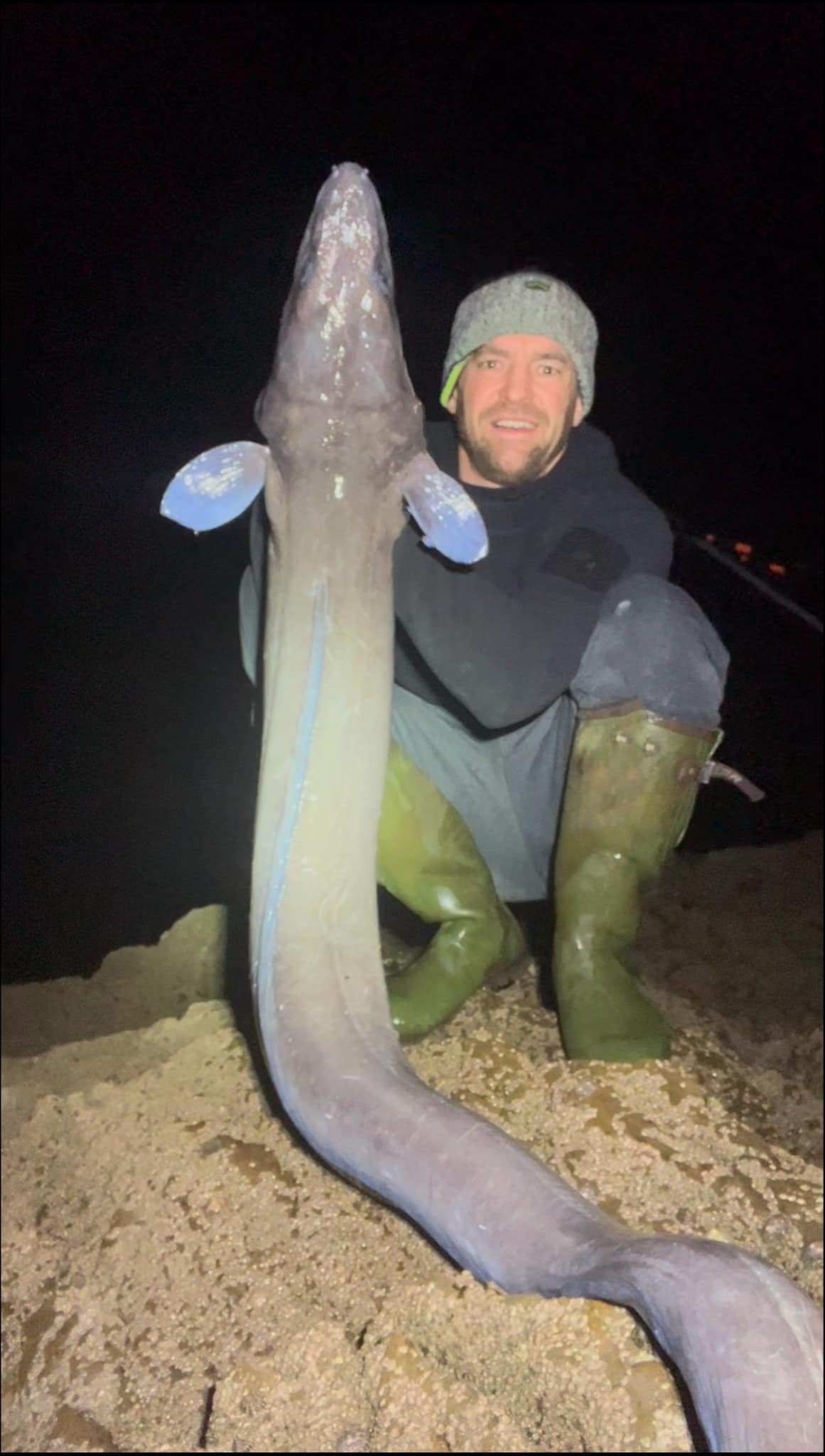
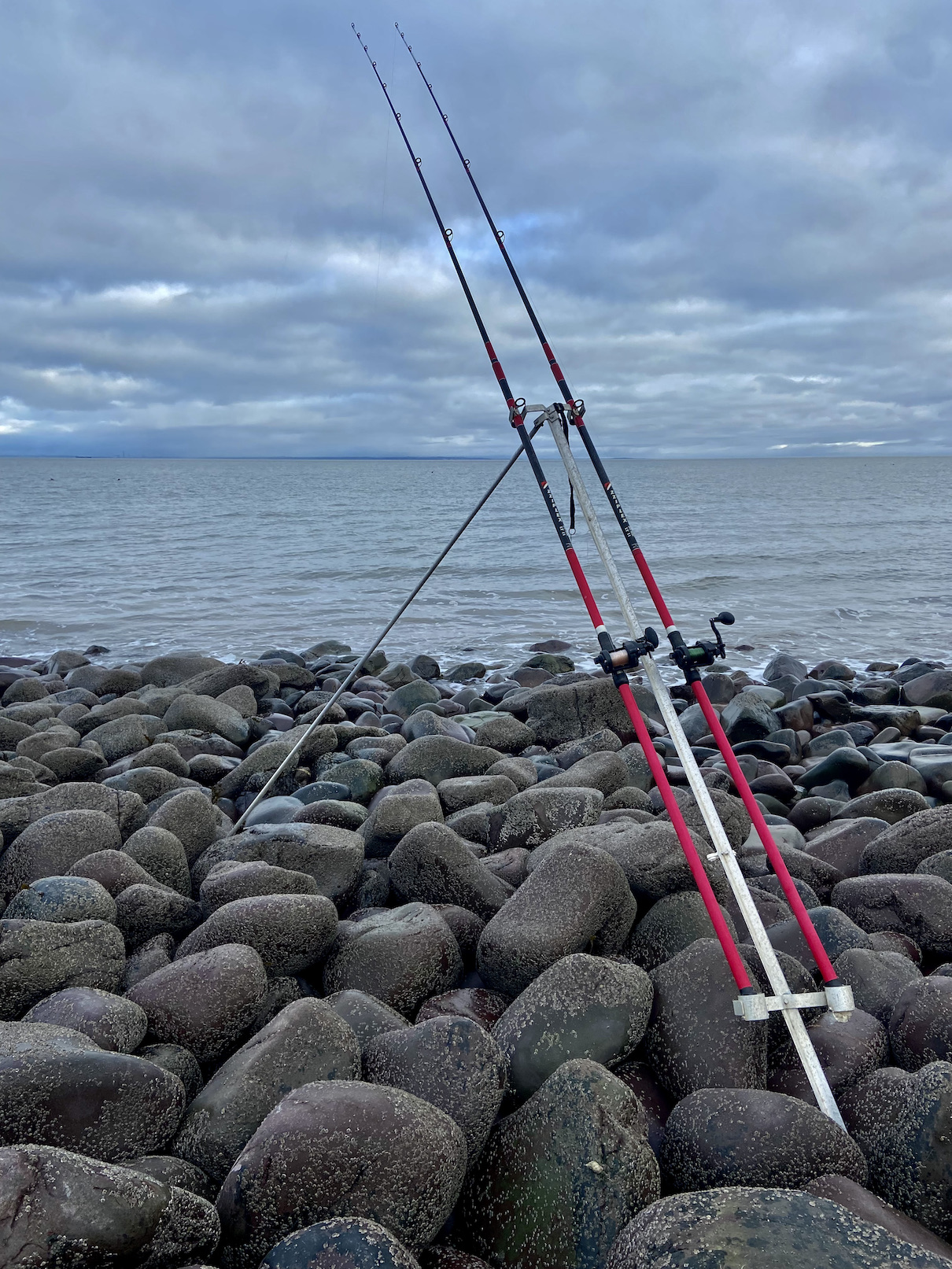
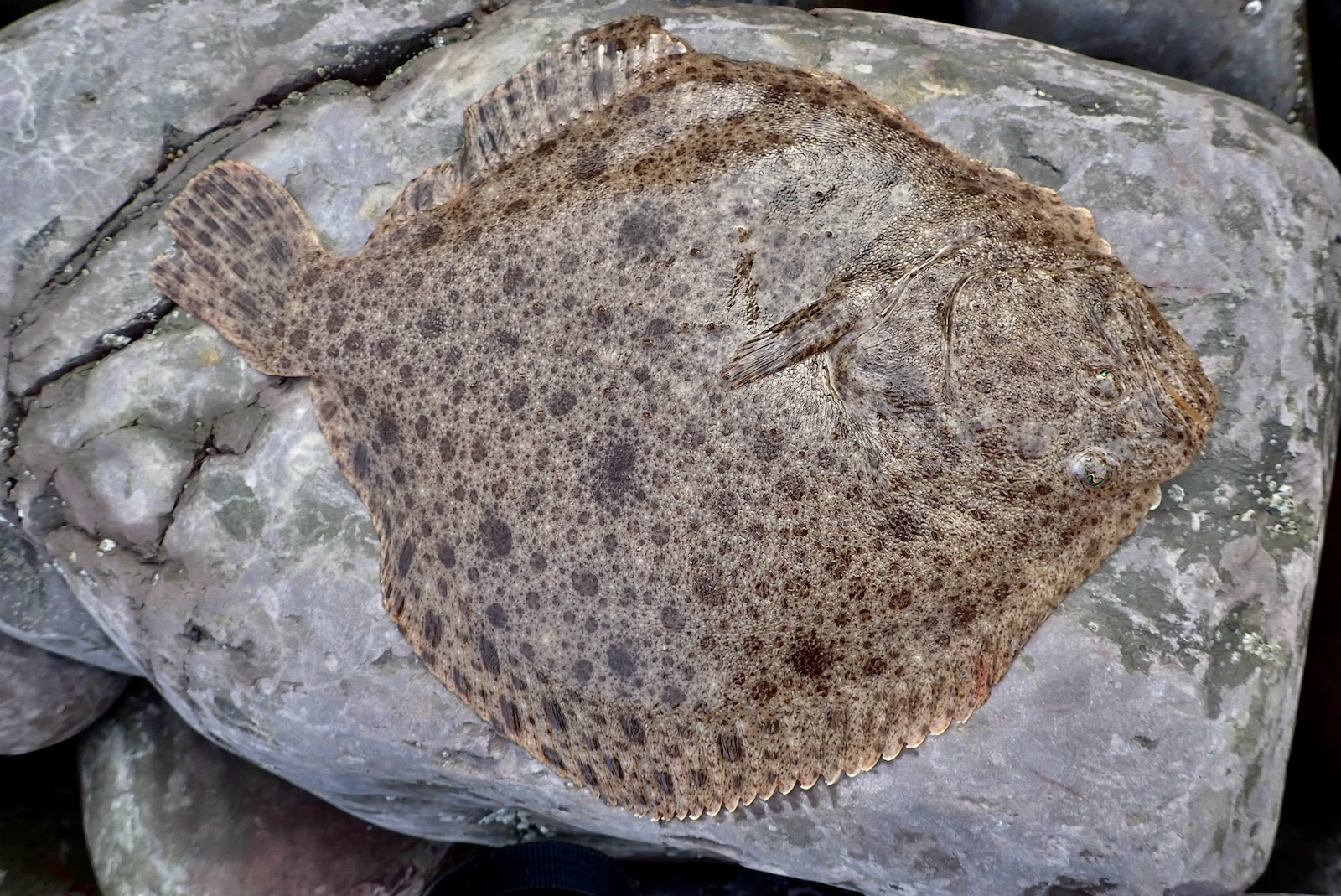
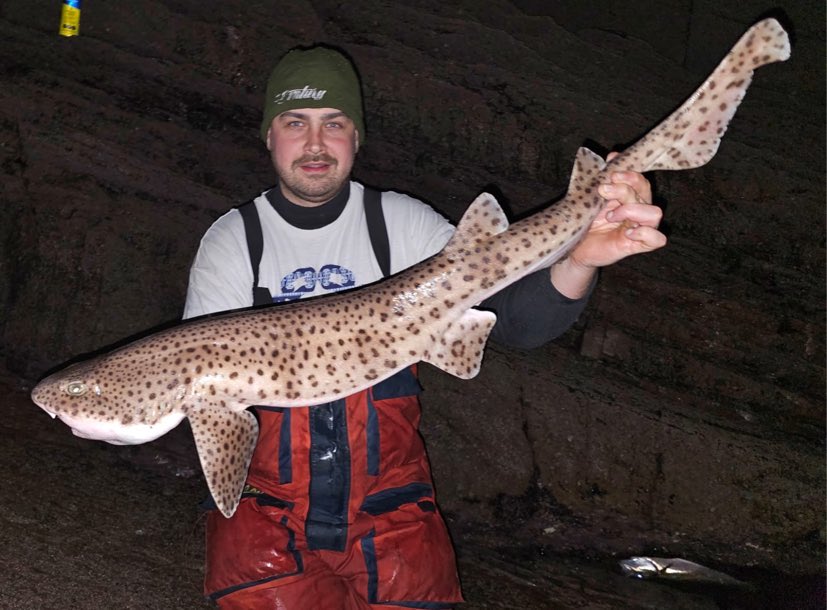
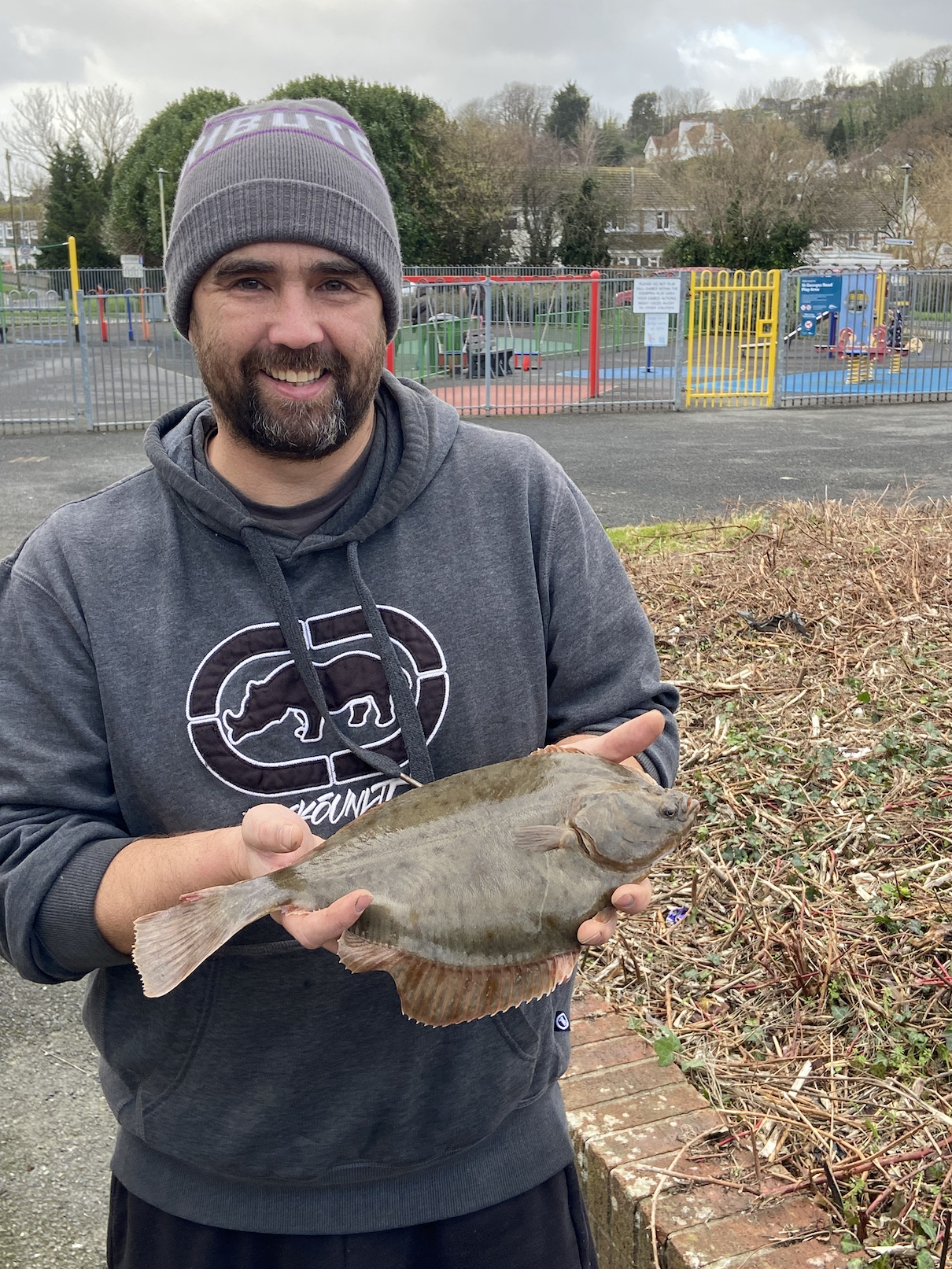
Thirty-seven keen anglers competed in Triple Hook Clubs Christmas Competition despite the gale force North Westerly winds that had resulted in the postponement of Bideford Angling Clubs Christmas Competition.

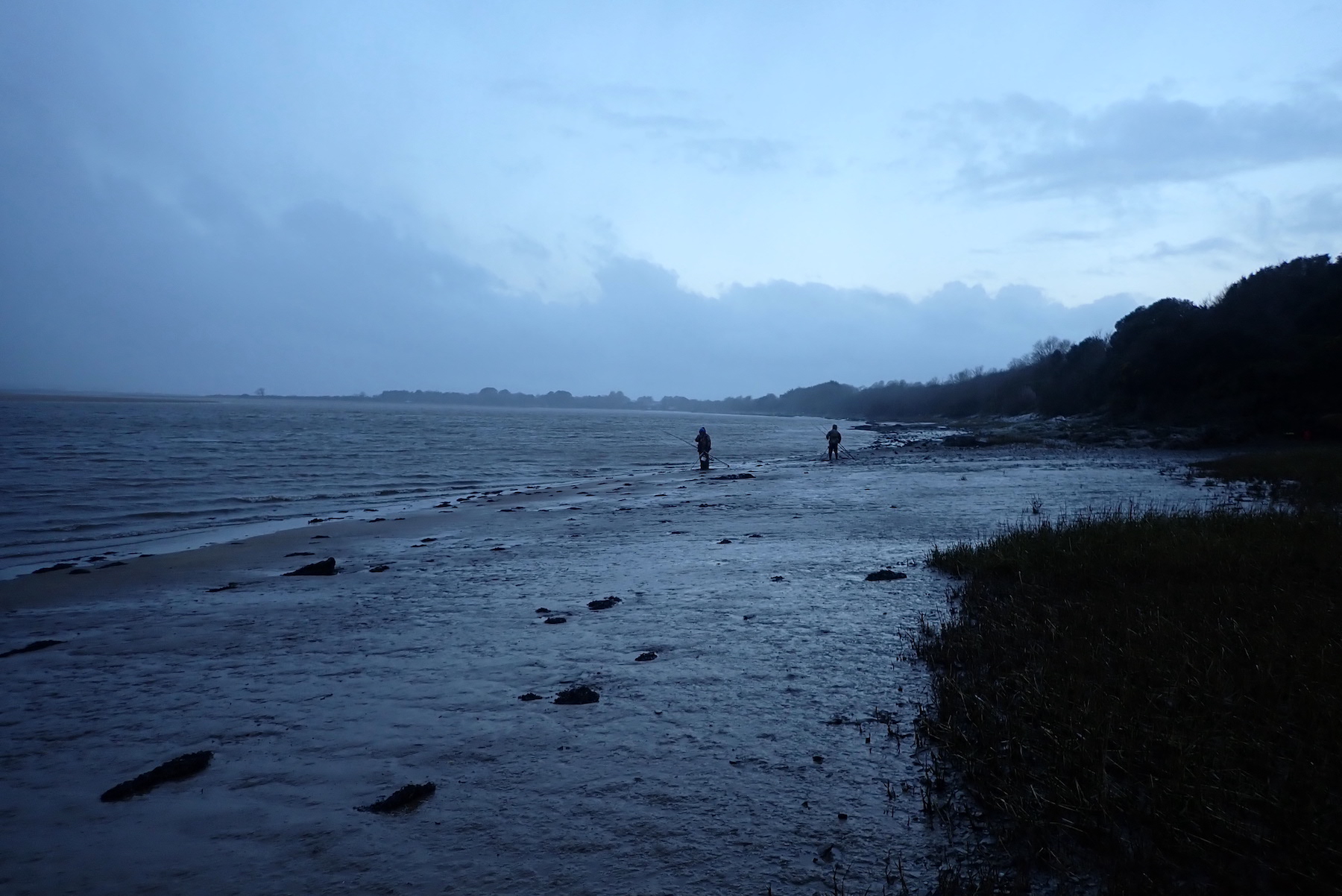
The fishing proved challenging with large flounder hard to locate as the traditional River Taw flattie season draws towards its end. Several school bass were landed throughout the estuary which is an encouraging sign for the future and perhaps an indication of changing times.
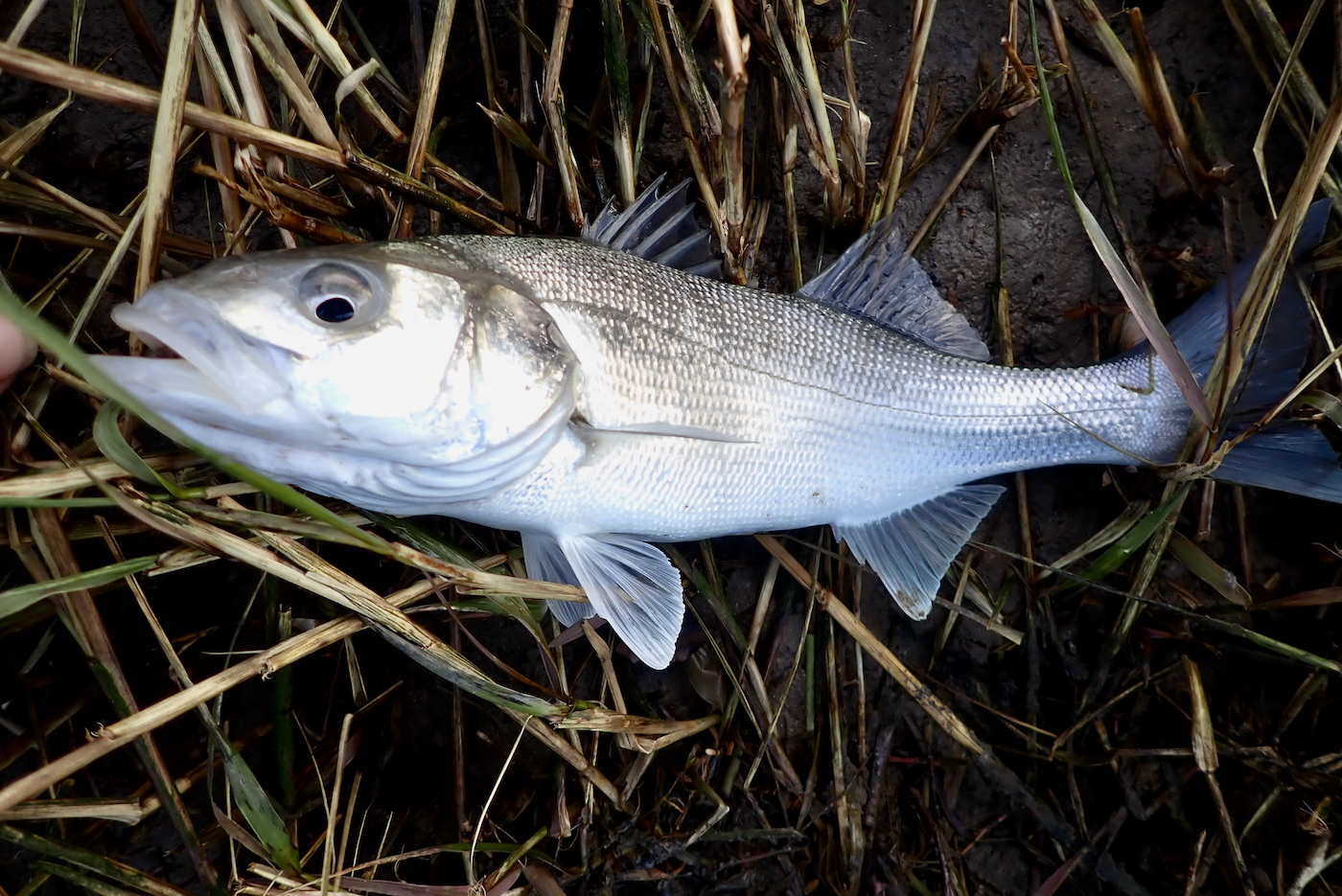
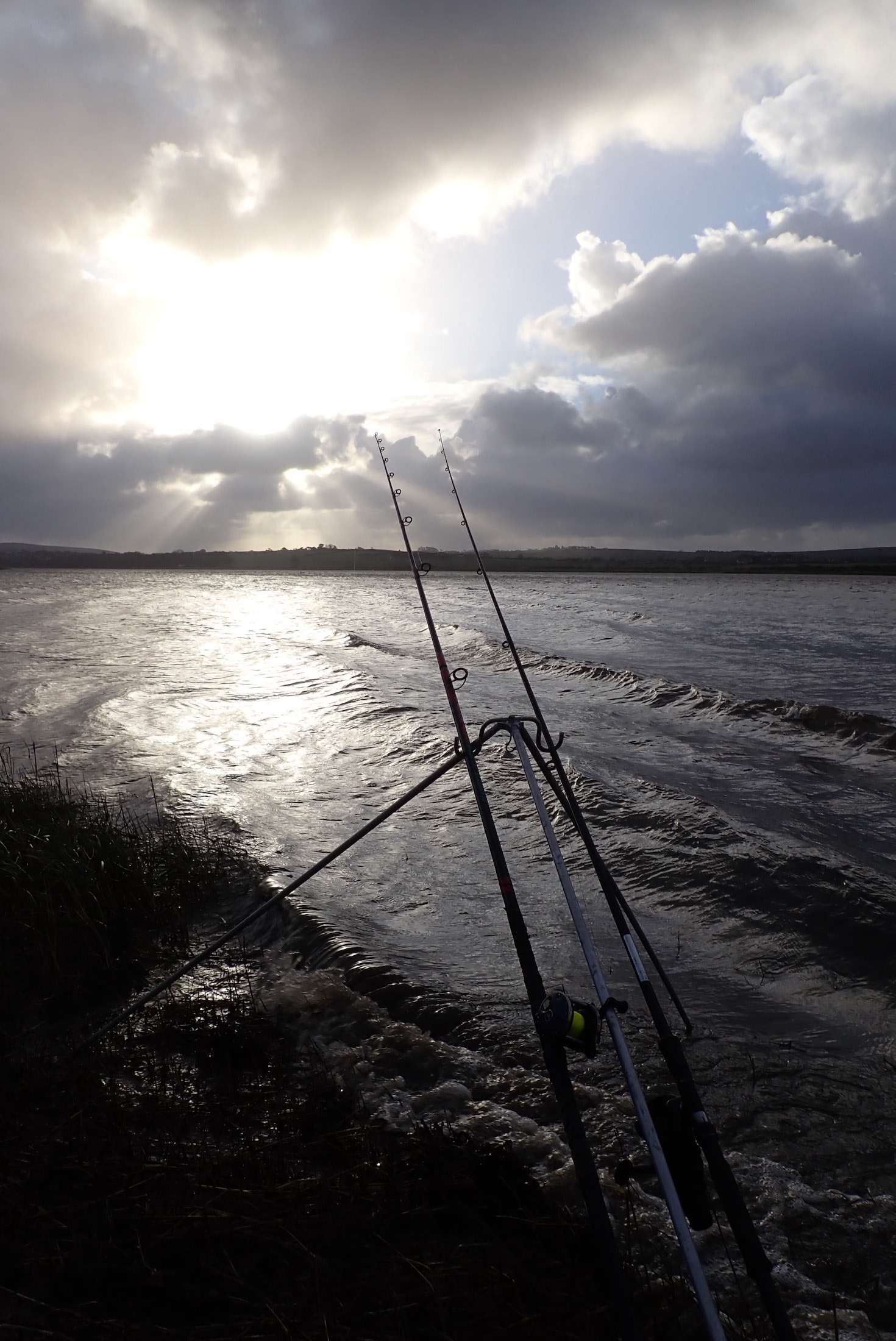
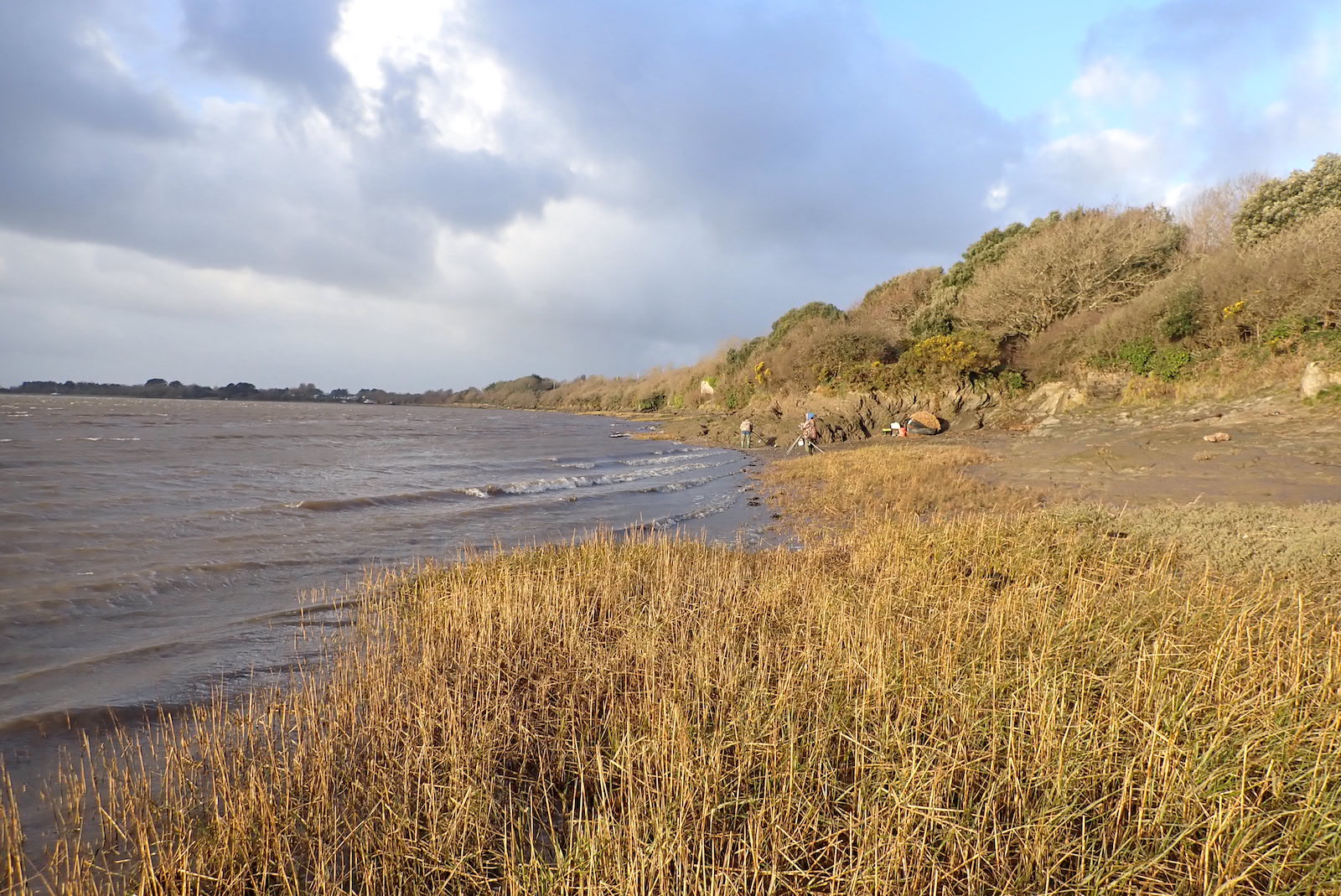
The winning flounder way ahead of the field was caught by Nick Wilkinson and weighed 1lb 115/8oz.
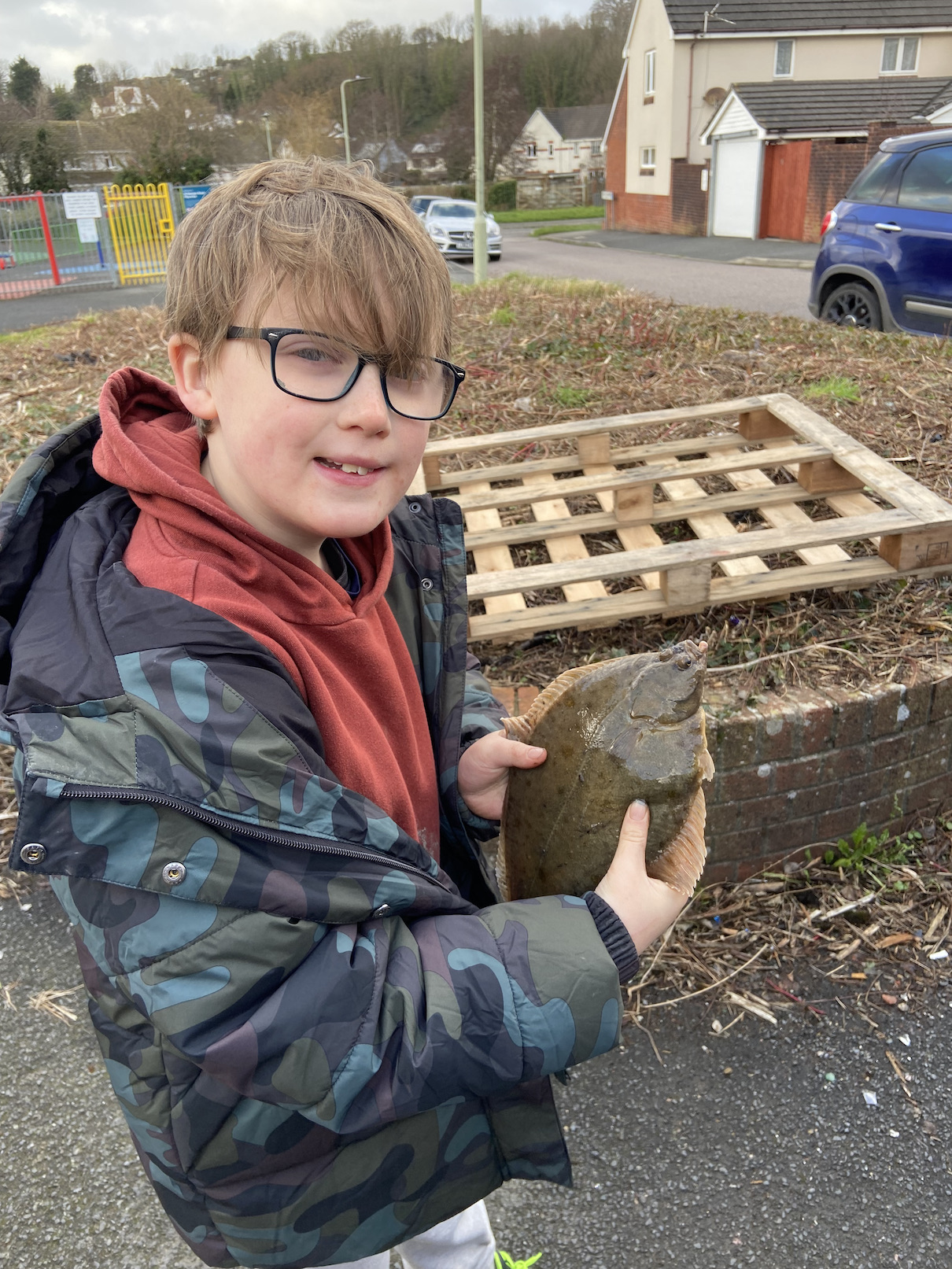
Runner up was Junior angler Arthur Taylor ( Above) with a flounder of 1lb 31/8oz and third Mark Beer with a flounder of 1lb 1oz. R.Hancock, J.Martin, Taz Wotton, D. Ackland, C. Lamey and L.Luxton all registered flounder to secure a Christmas Turkey dinner with all the trimmings.
It was good to see a good number of local anglers gathered together at a traditional weigh and raffle with plenty of good humoured banter.
Bideford Angling Clubs Christmas Competition is now on December 29th all other details as below:-

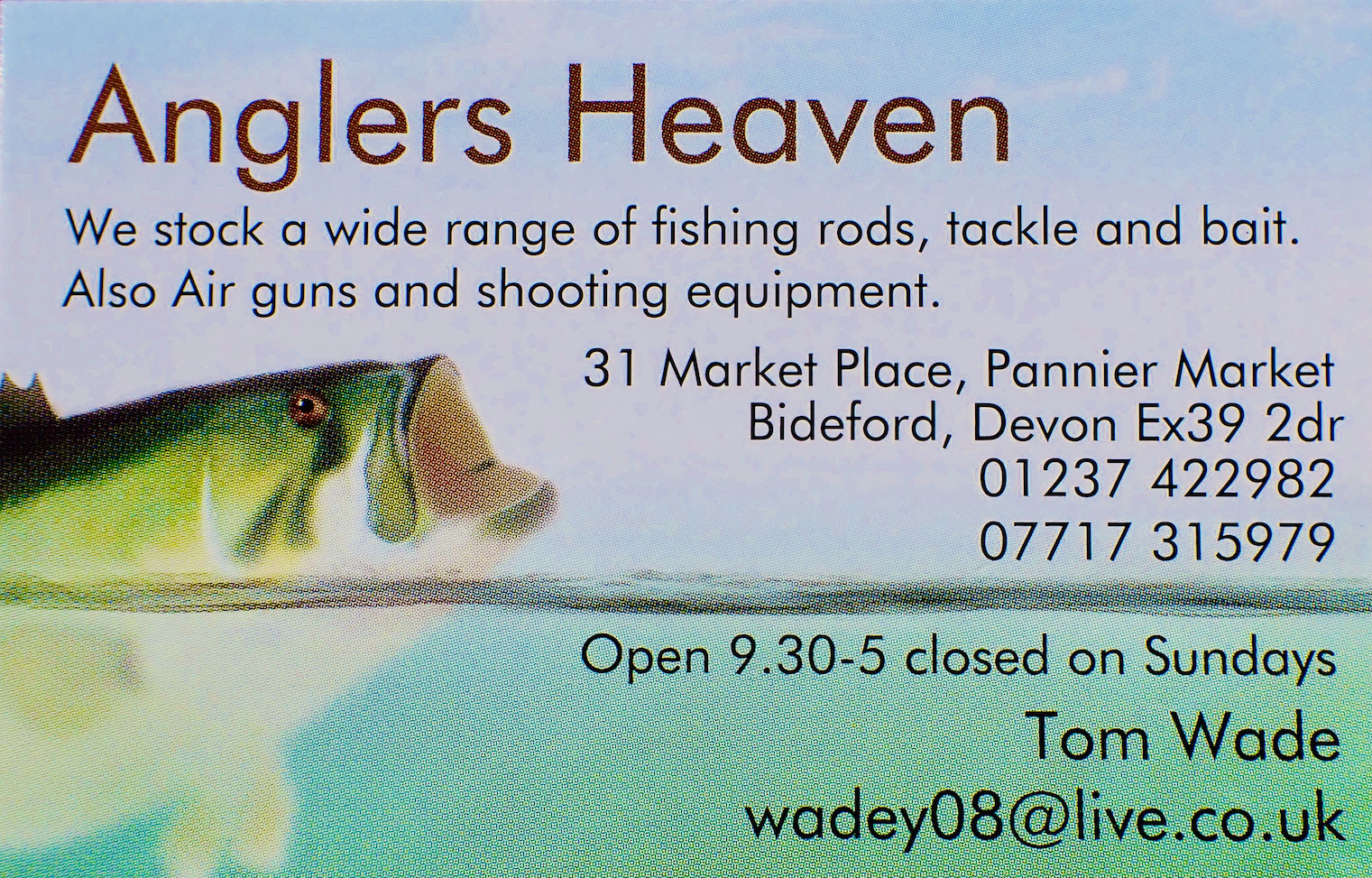
Pat Smith Database.
Message from John McMaster
We first brought your attention to the need to protect the breeding stock of the Spurdog fishery (the older and larger females) early last year.
Since then we have been working along with others to keep the socioeconomic benefit of this fishery to the recreational angling sector uppermost in Defra’s mind.
Our persistence has led Defra to ask Cefas to run an online workshop to explore the importance of Spurdog as a target species to the recreational sector, including charter vessel operators.
This workshop is not just an opportunity for the recreational angling sector to protect the Spurdog fishery but equally importantly to position itself as a sport which delivers significant social and economic value and be recognised as a full partner in marine conservation decisions which can potentially affect your business.
The link to register for this meeting which on Wednesday 15th January 2025 at 7pm is below.
When 180 charter skippers signed a letter to the Minister in 2020, she reversed her decision not to allow recreational sea angling for Bluefin so don’t underestimate the collective power of charter skippers and anglers when they come together.
You can dial in even if you don’t fish for Spurdog and your anglers can also dial in. The more of us who join this workshop the more seriously we will be taken. If you want any more information please get back to me.
Thanks again for your continued support – Pat Smith Database
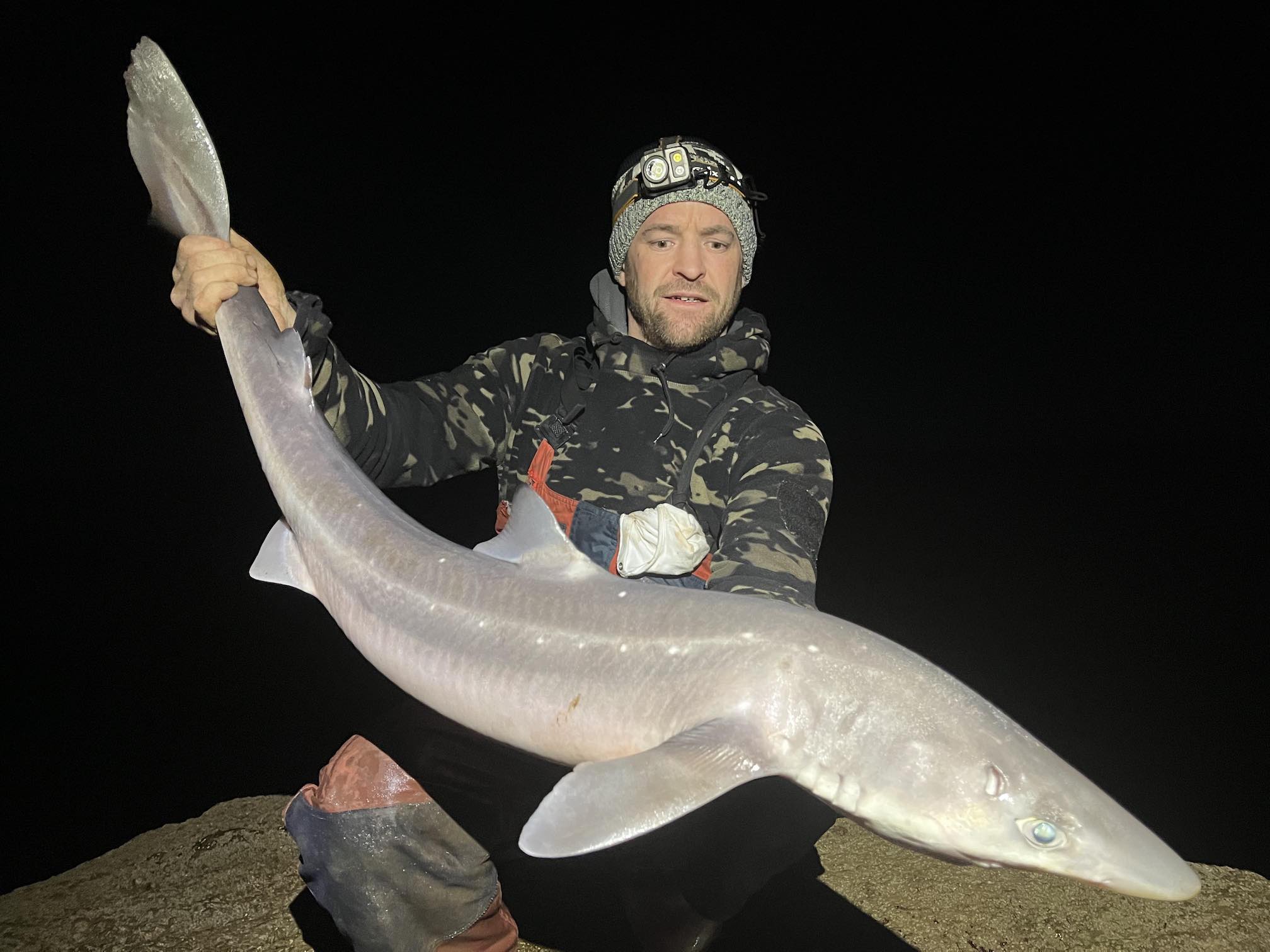

I have ordered my copy and will write a review in the New Year
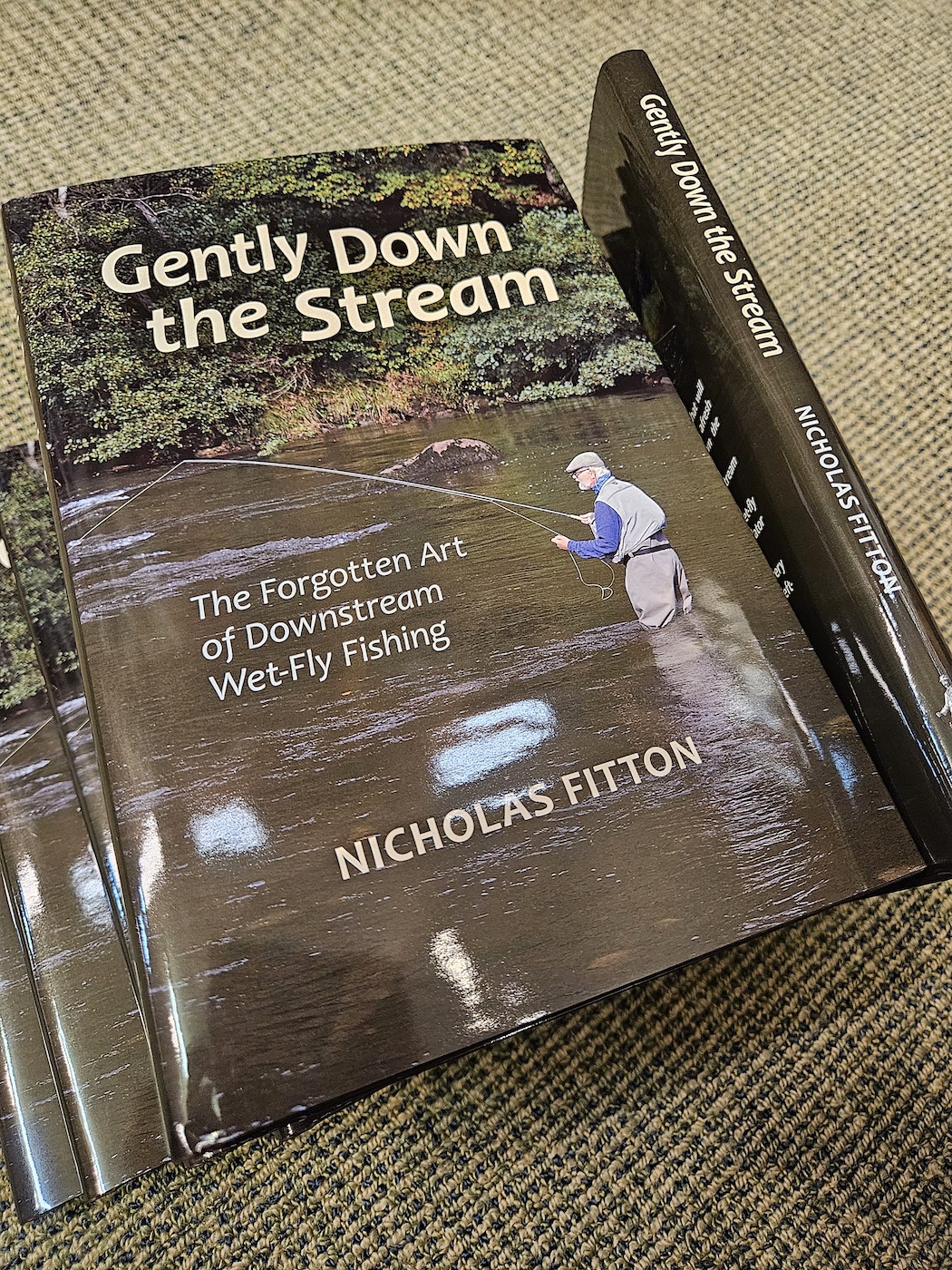
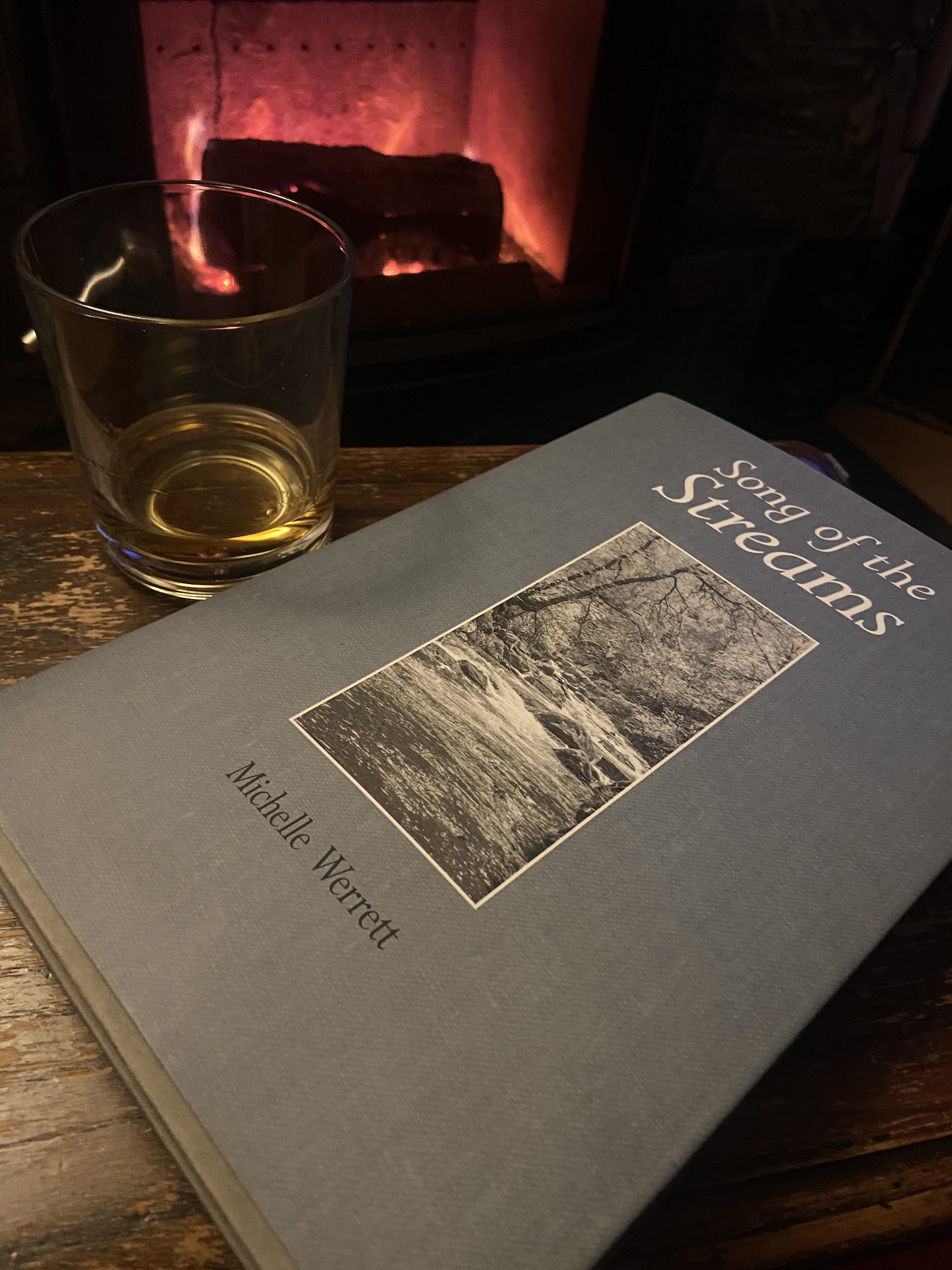
( Below) Border Country Belts are also available in the shop and make a superb Christmas gift.
https://www.bordercountrybelts.co.uk

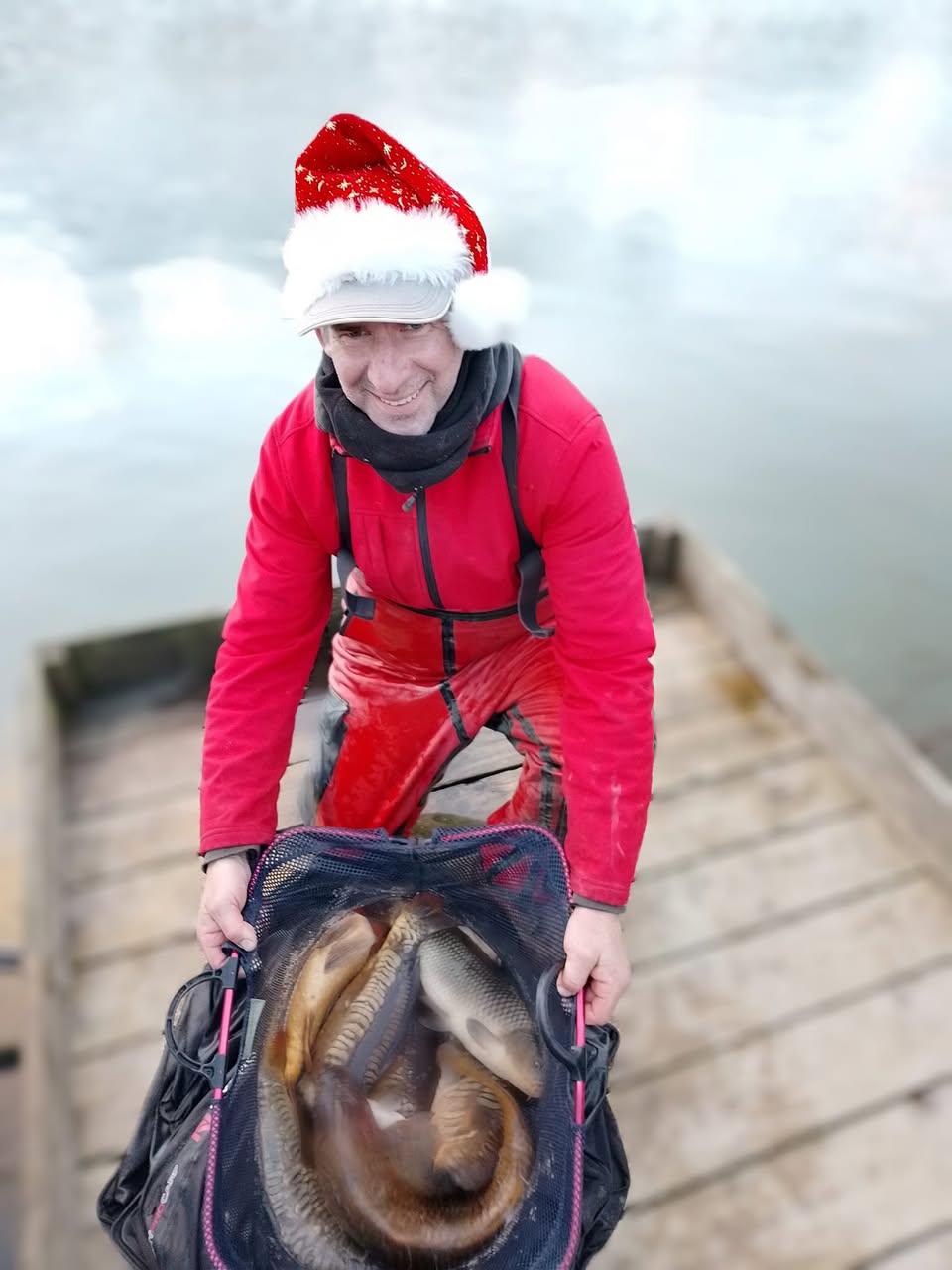
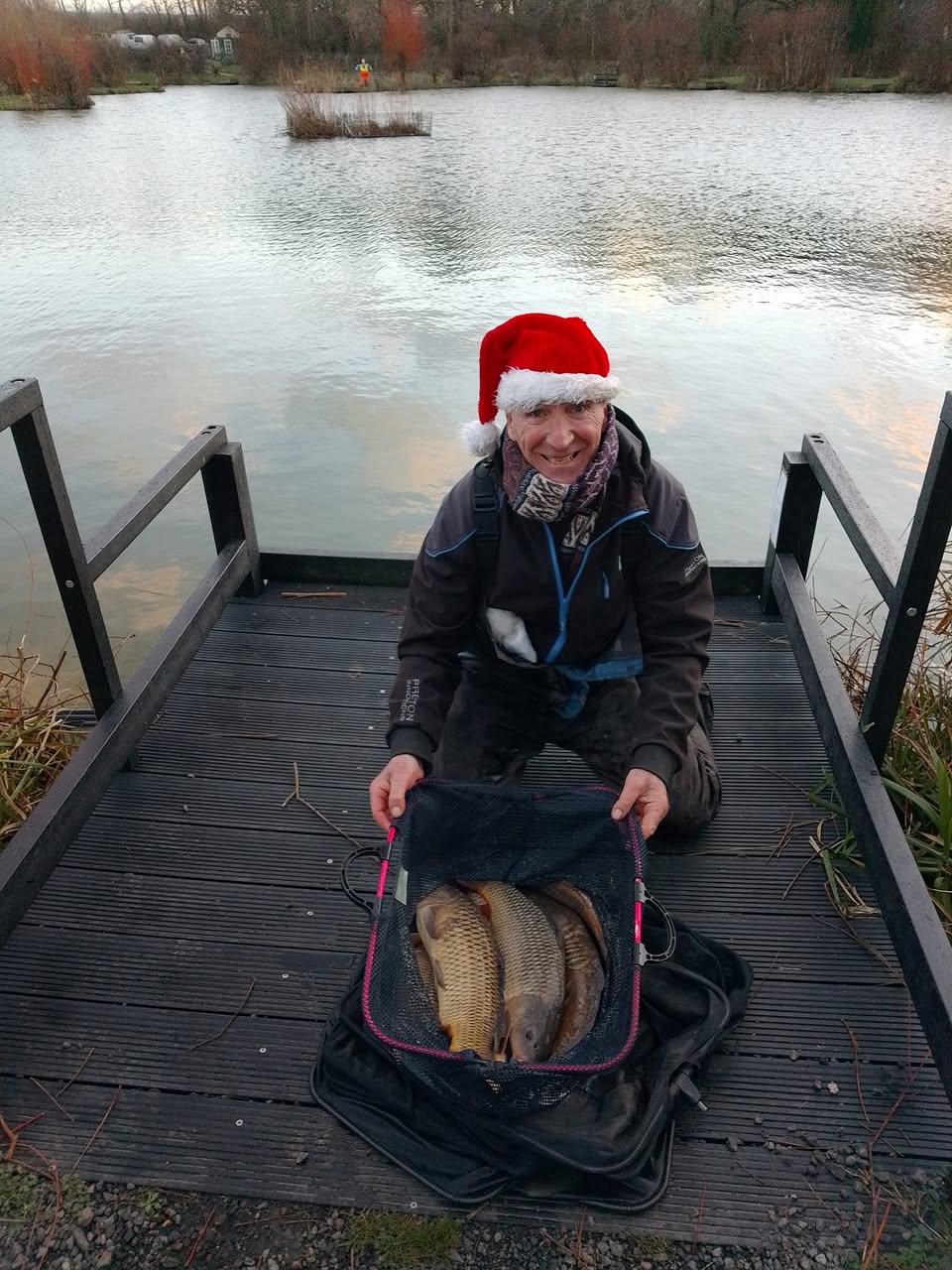

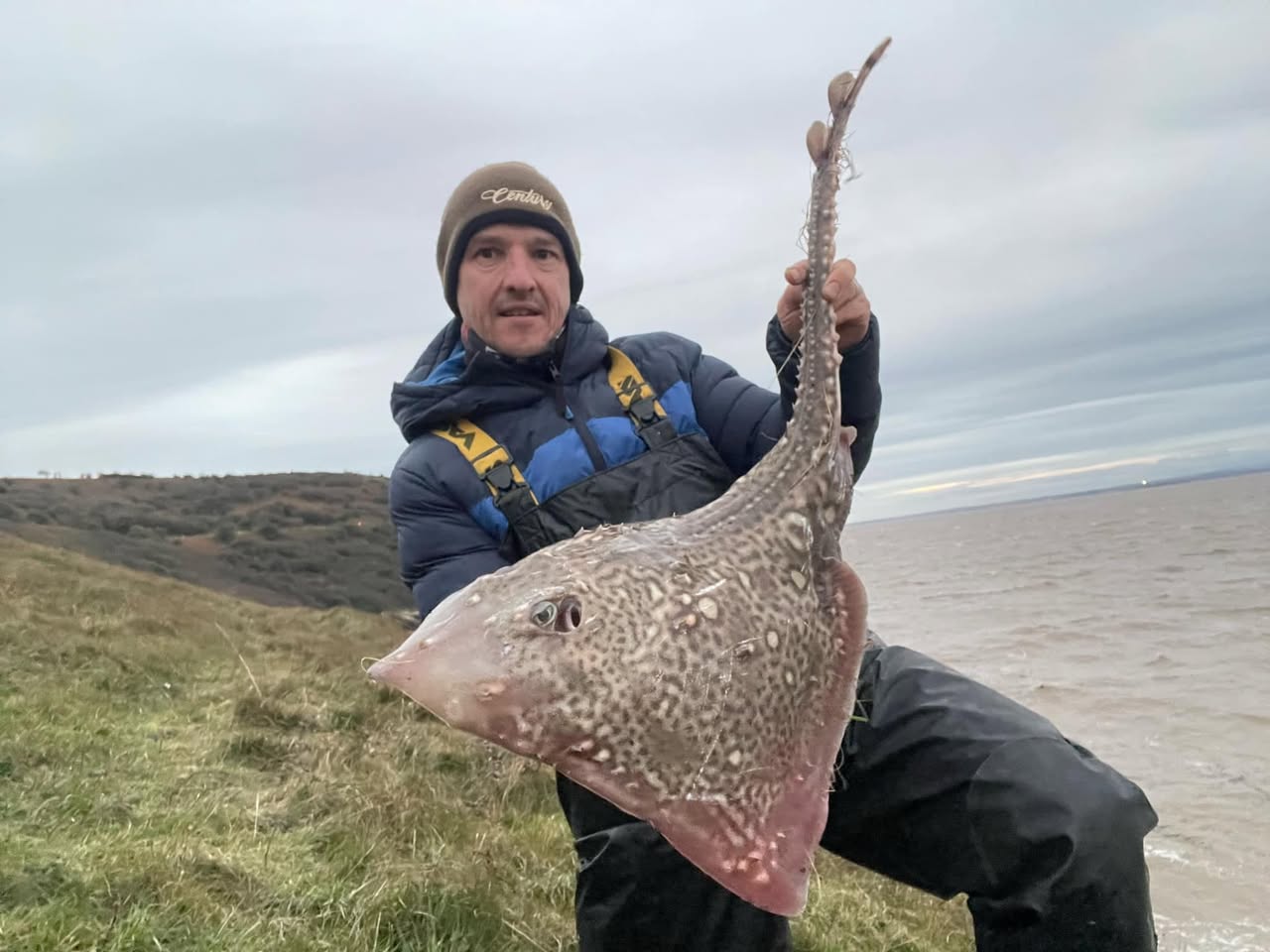


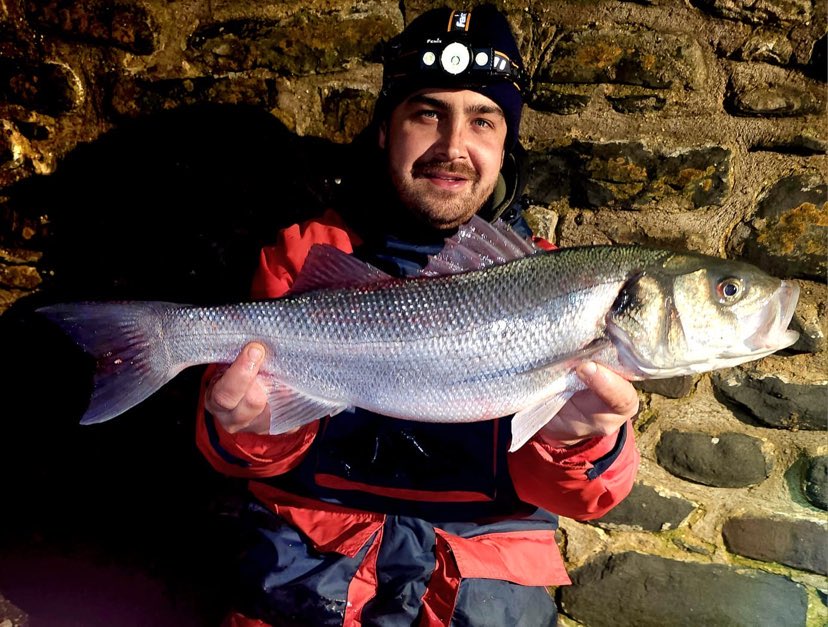
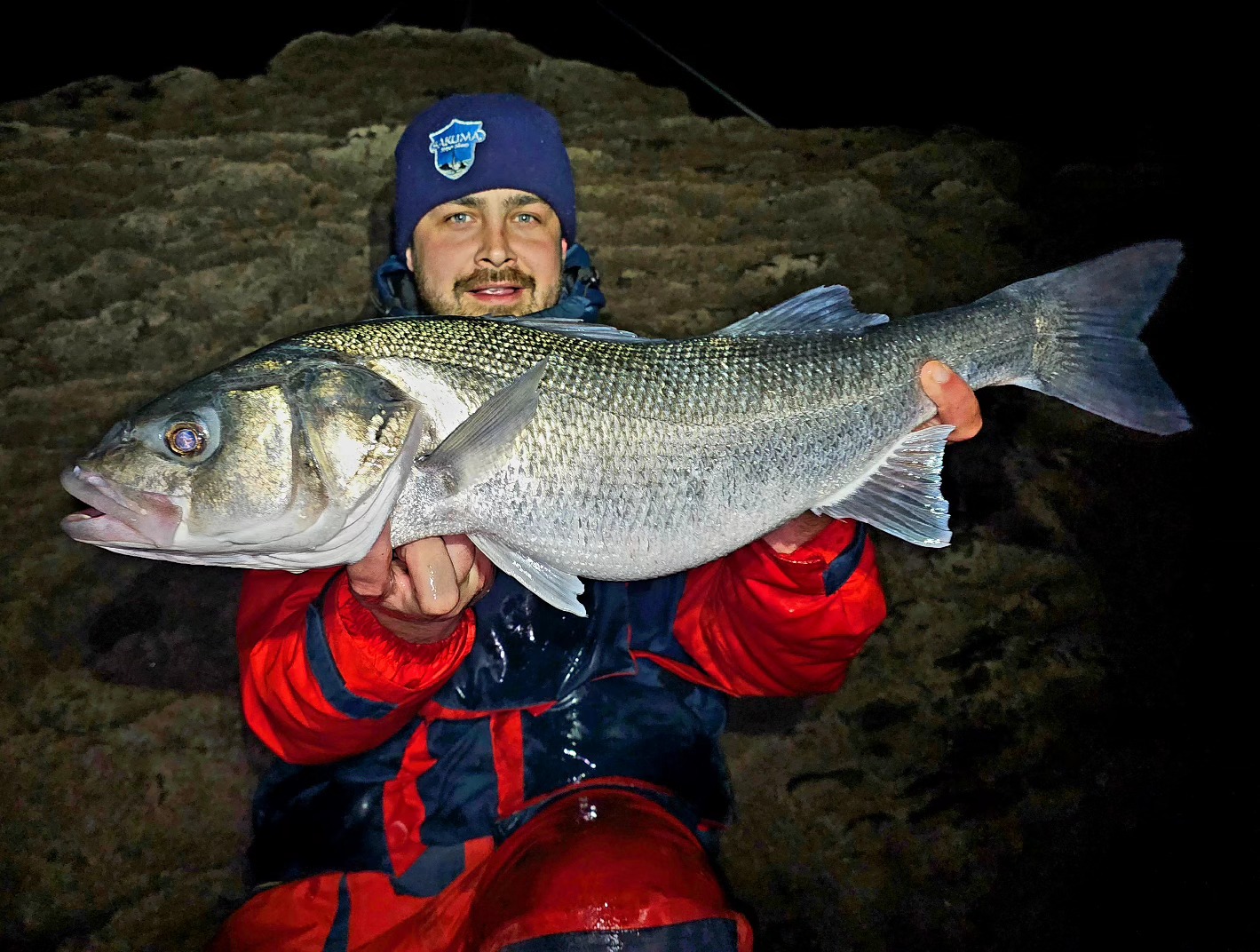
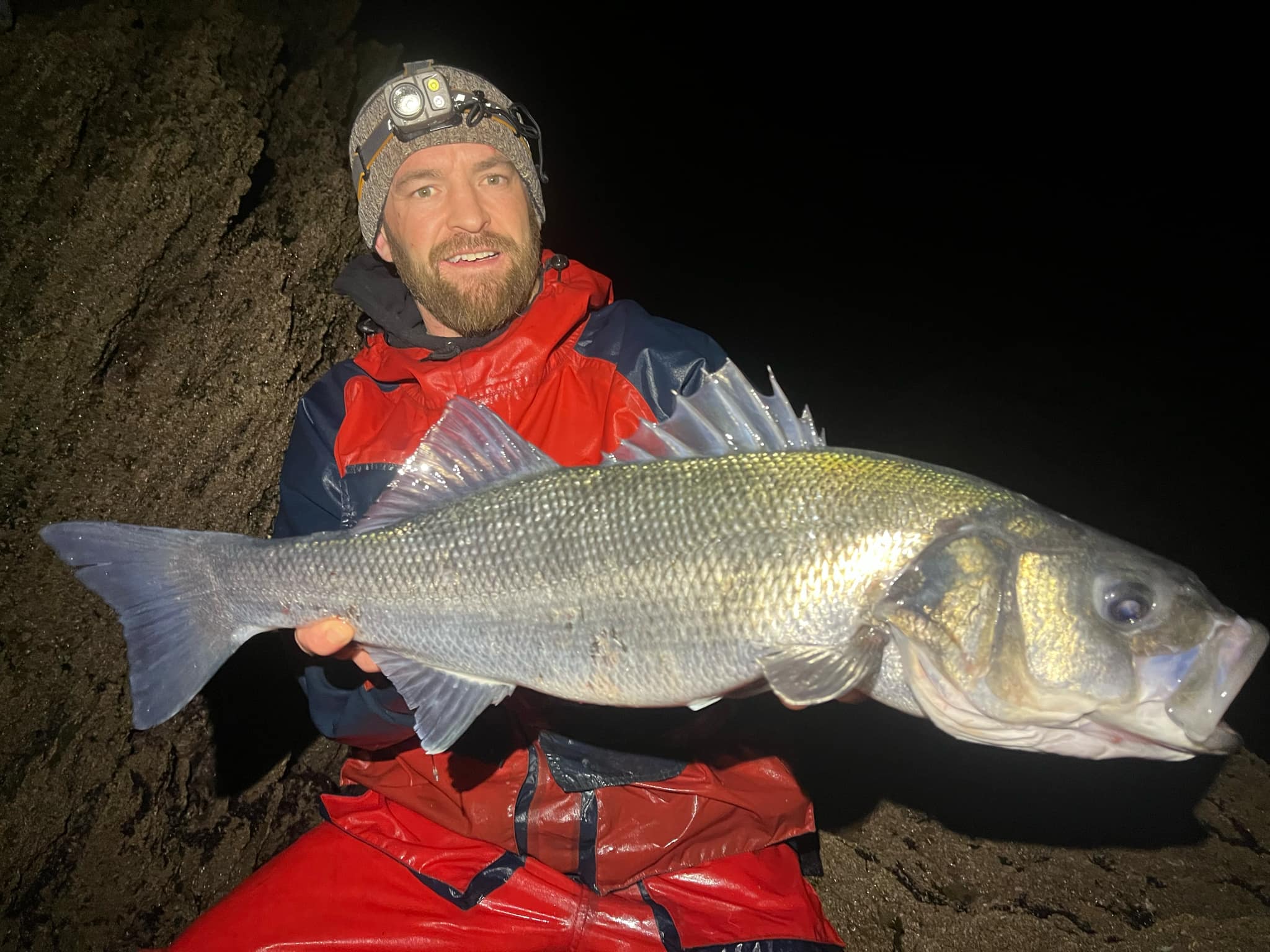



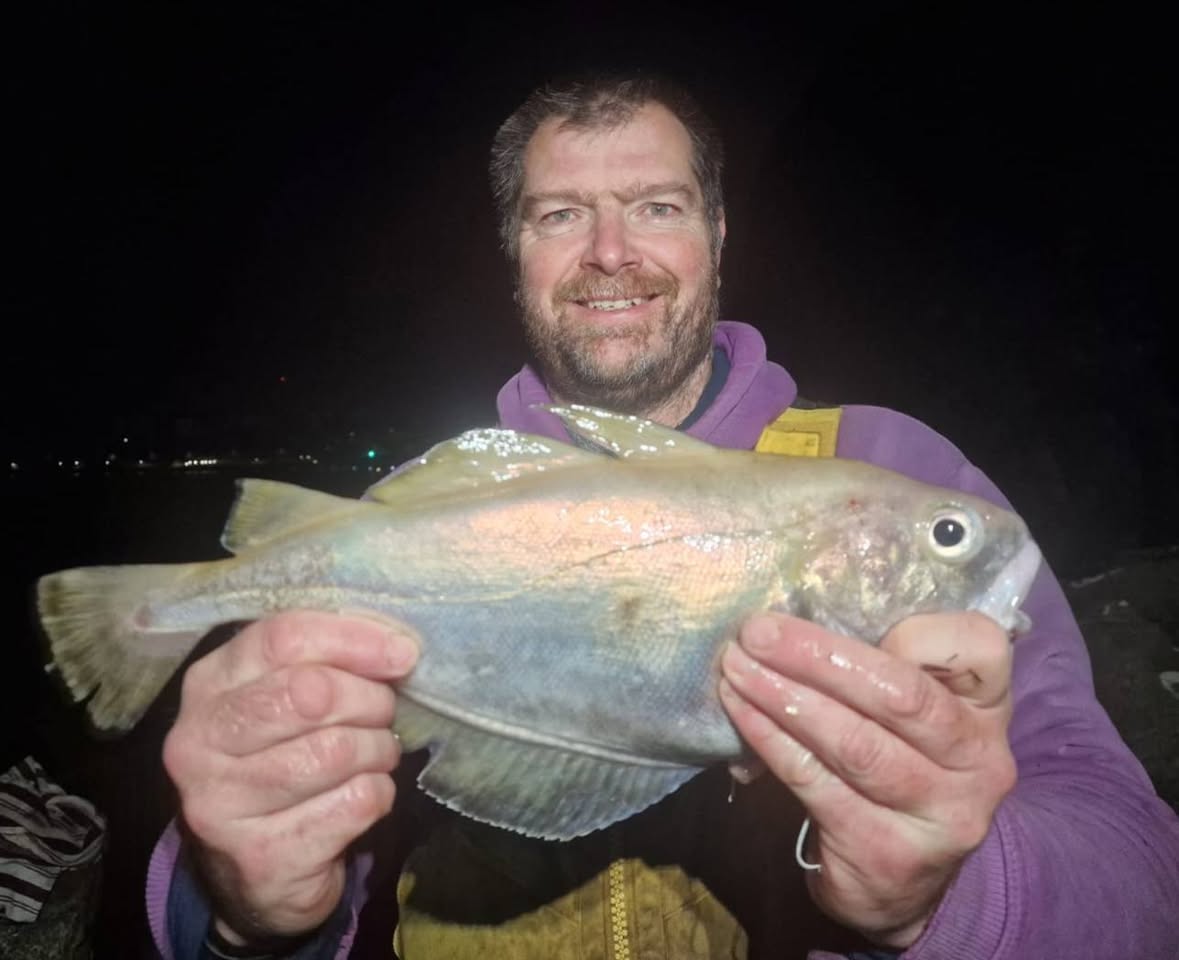
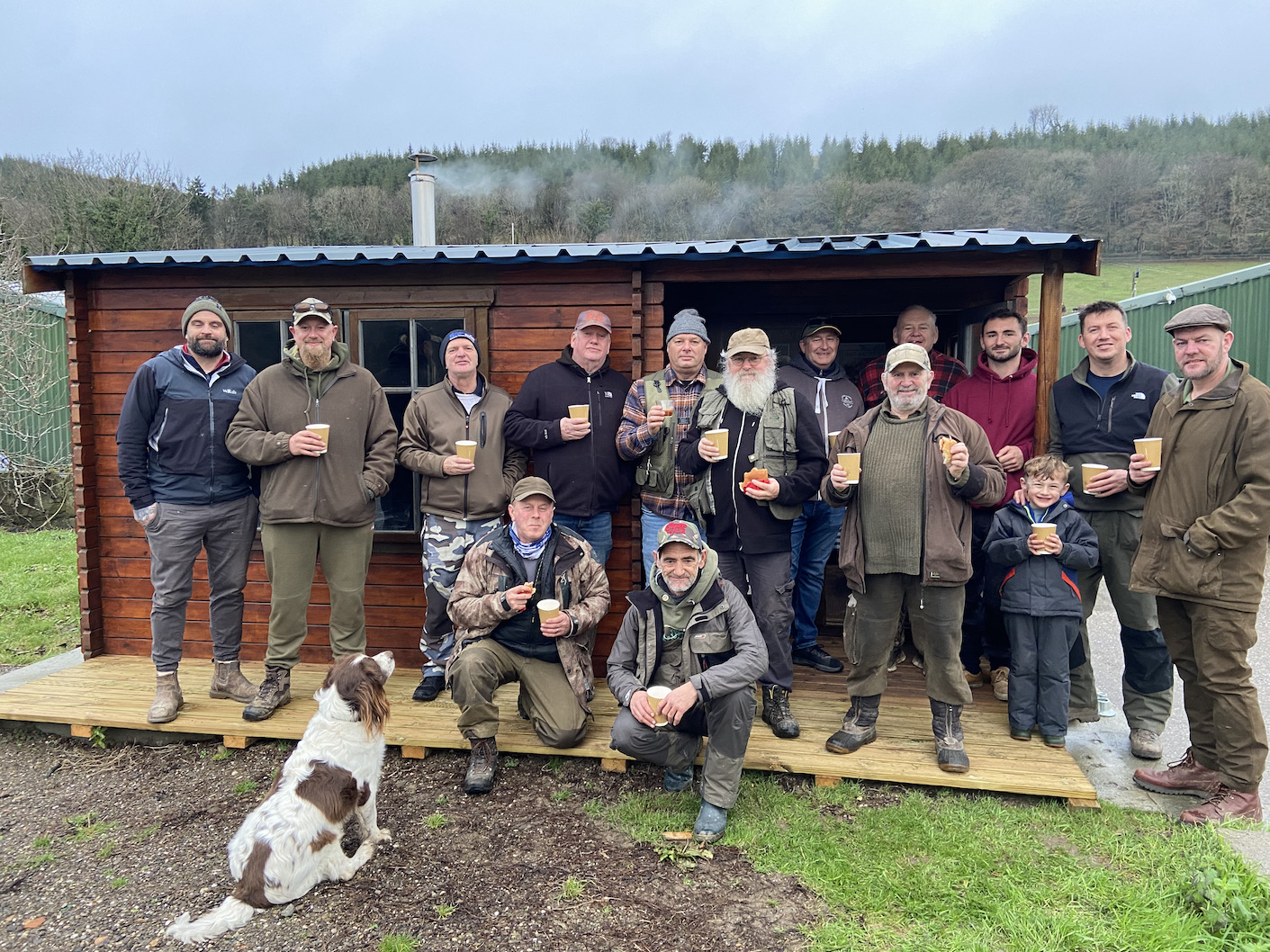
Above) Joe Keating, Dave Chapman, Nick Tamlin, David Richards, Colin Combe, Tom Rushby, Tony Buckland, Bill Pink, Roy Pink, Andrew Facey, Steve Burnell, Brian Sedgebeer
Bulldog Trout Fishery held their first Christmas Competition with twelve keen anglers competing for the top prize of a Christmas Turkey and all the trimmings. I arrived shortly after 8:30am to find competitors tackling up in the fishery car park full of optimism for the day ahead.
Nigel and Tom assured all taking part that the lake had been well stocked and talked of a few special fish with a twinkle in their eye and shared their hopes for a grand days sport.
The fishing lodge was well stocked with coffees and teas to last the day with boiling water on tap. The competitors were briefed on the rules as bacon rolls were handed out and eagerly devoured.
The atmosphere was certainly full of Christmas cheer with a few warm spirits to warm the inner soul before heading out onto the lake.
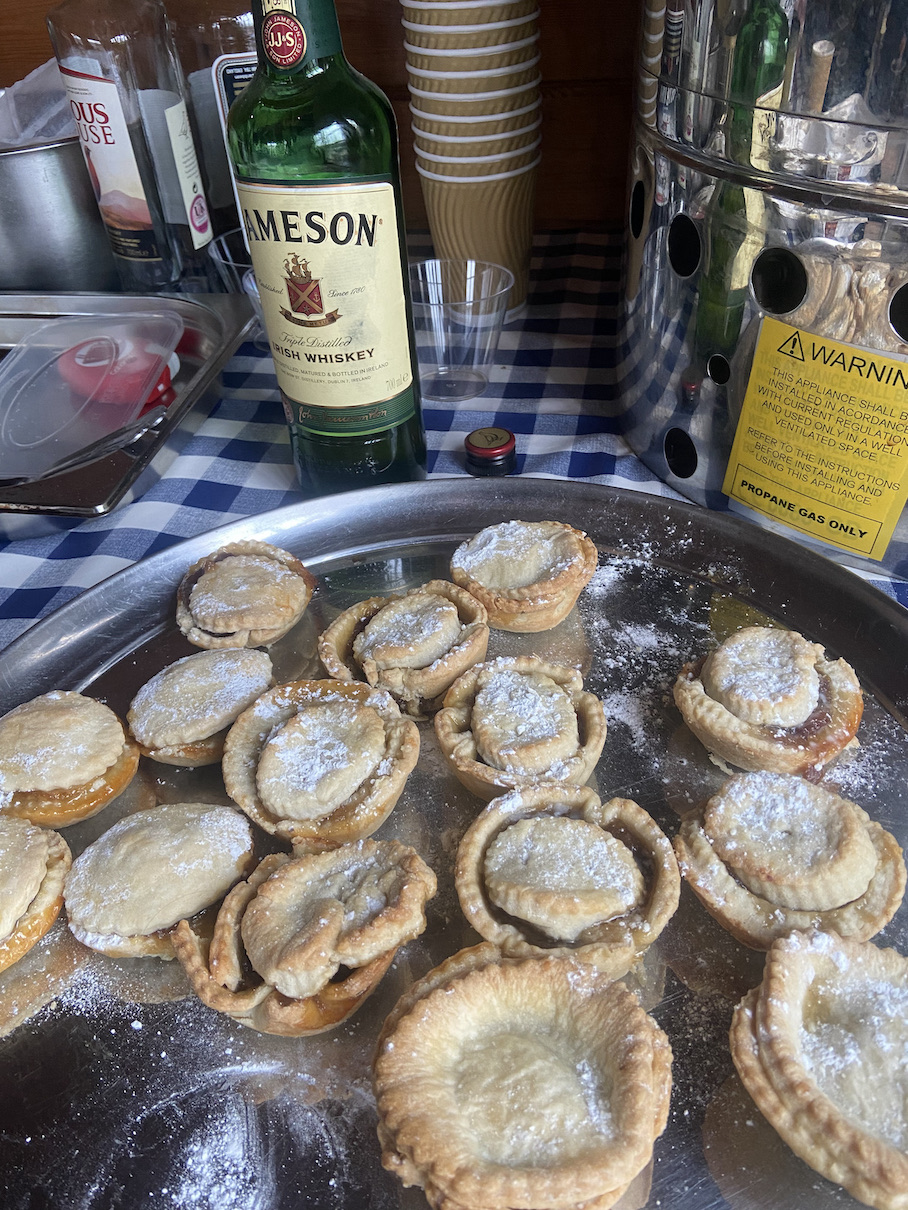
The lake had been pegged out with twelve pegs with the peg number written on the bottom of the coffee cups which was an ingenious way of sorting the draw. The plan for all anglers to rotate around the lake with an air horn sounding every twenty minutes ensuring that all got a chance to fish each peg throughout the day.
Cast off was at 9:30am and the anticipation was tangible as anglers paced towards their pegs. It was a grey overcast morning with light drizzle driven by a light south west breeze. Pretty perfect conditions for fishing I thought as I watched on enjoying the opportunity to observe without taking part.
Most anglers elected to start the day with lure fishing tactics with black and white being the predominant colours along with the popular olive blue flash damsels.
I walked out onto the lakes central spit and stood beside Joe Keating who connected with the first trout of the day on his first cast just 15 seconds after the horn had signalled the start. a hard fighting rainbow of over 3lb.
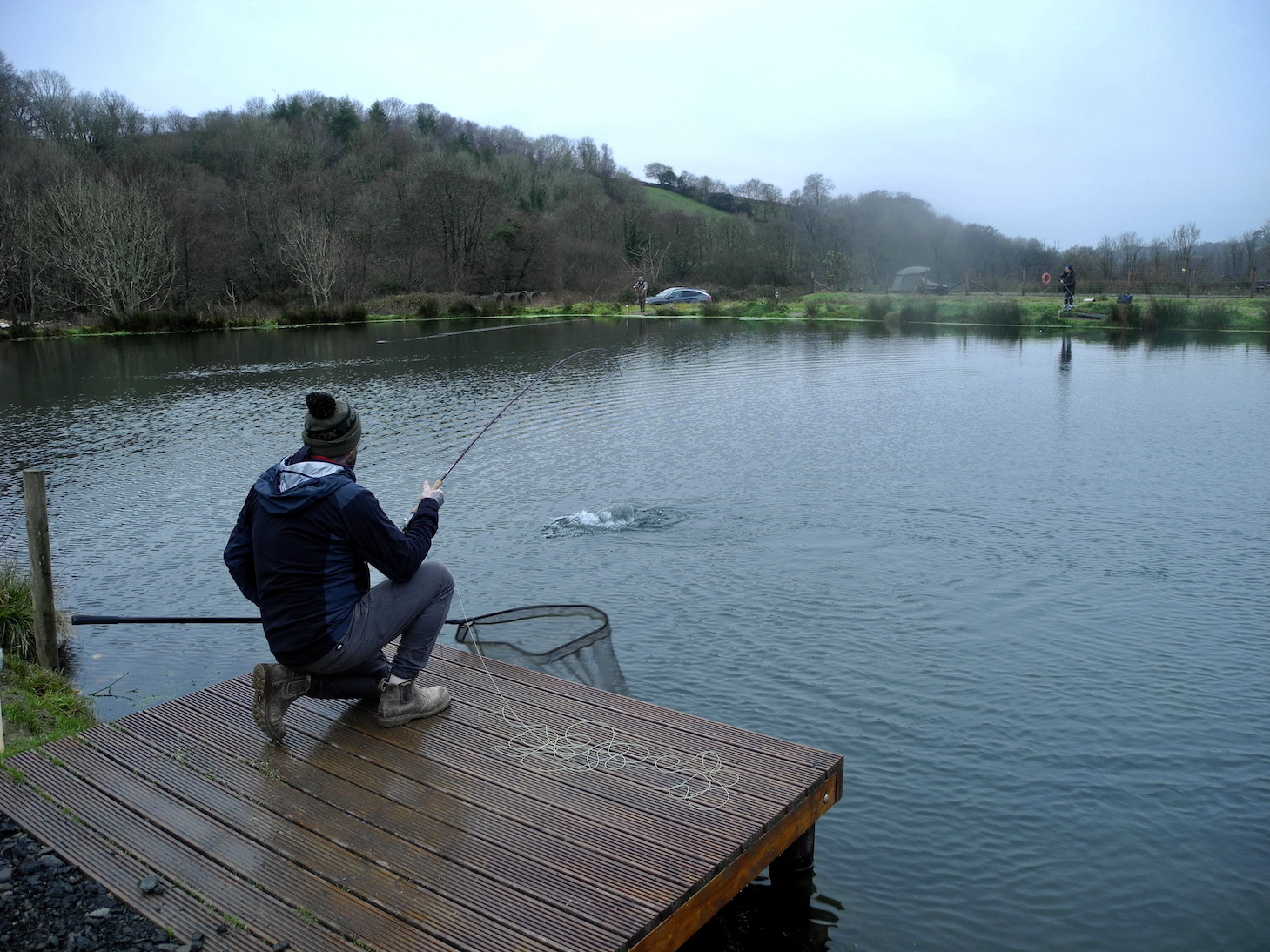
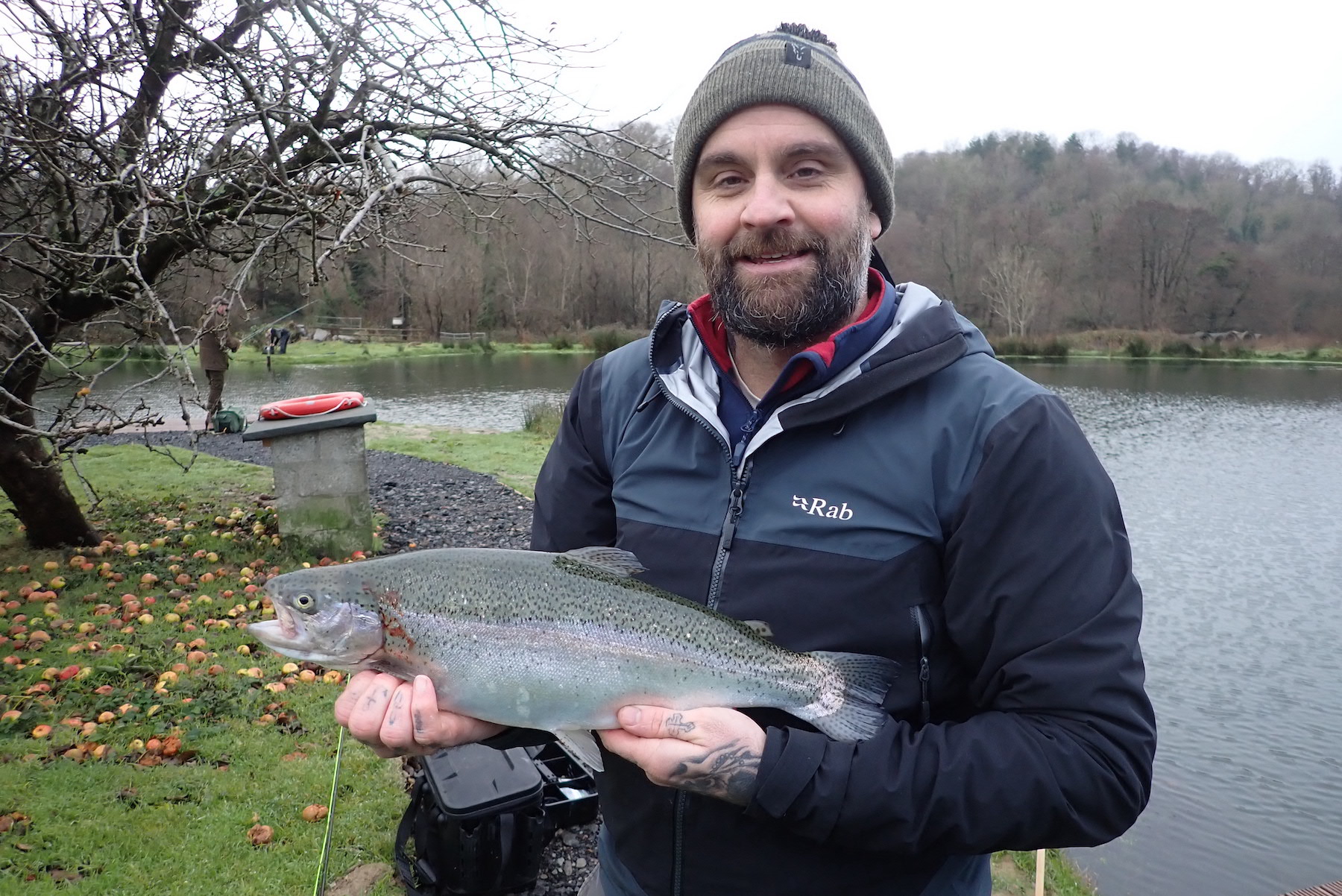
I looked around the misty lake and noted that most had well bent rods as the lakes residents seized the anglers offerings. I dashed around keen to capture some of the action and share in the fun.
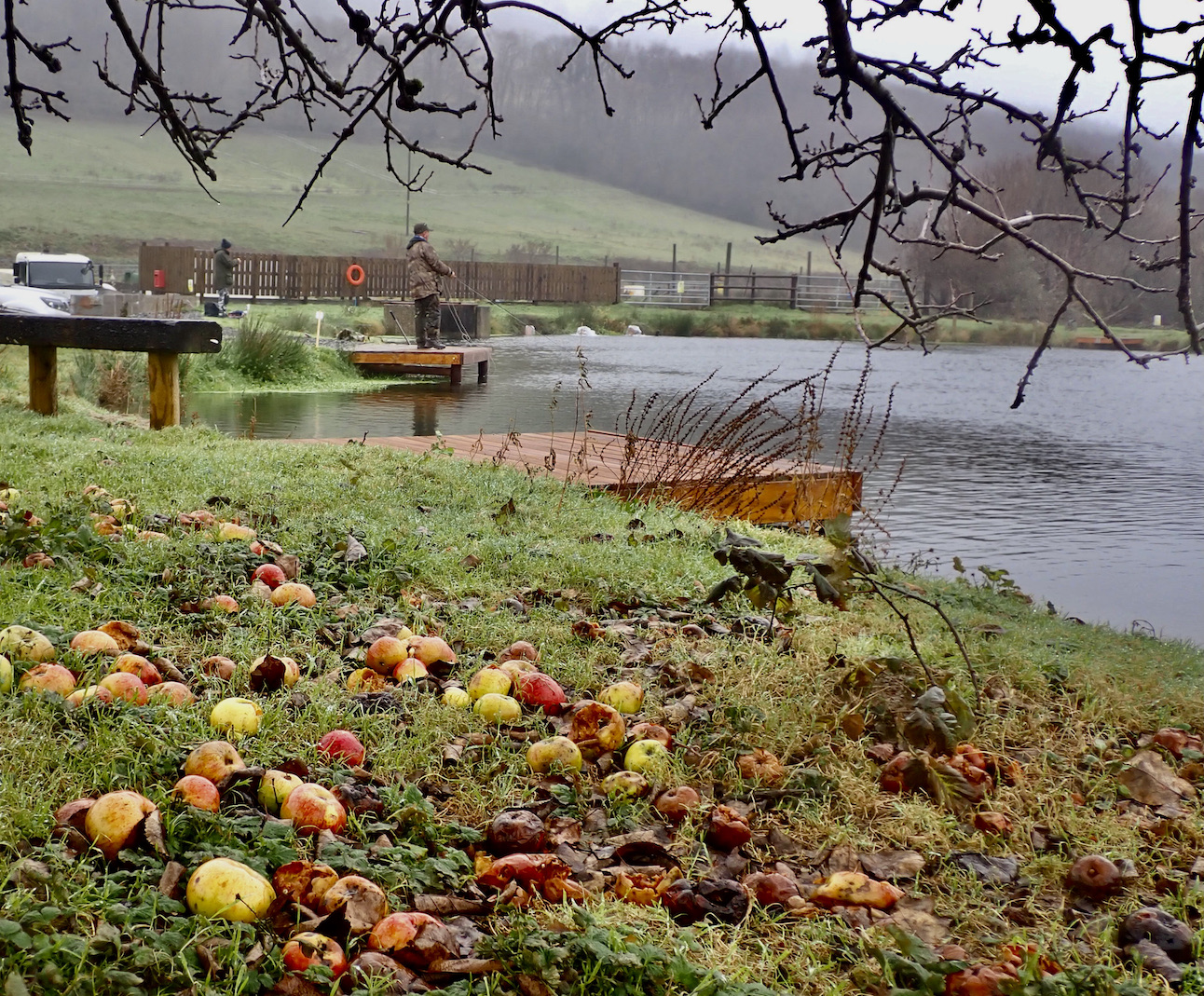
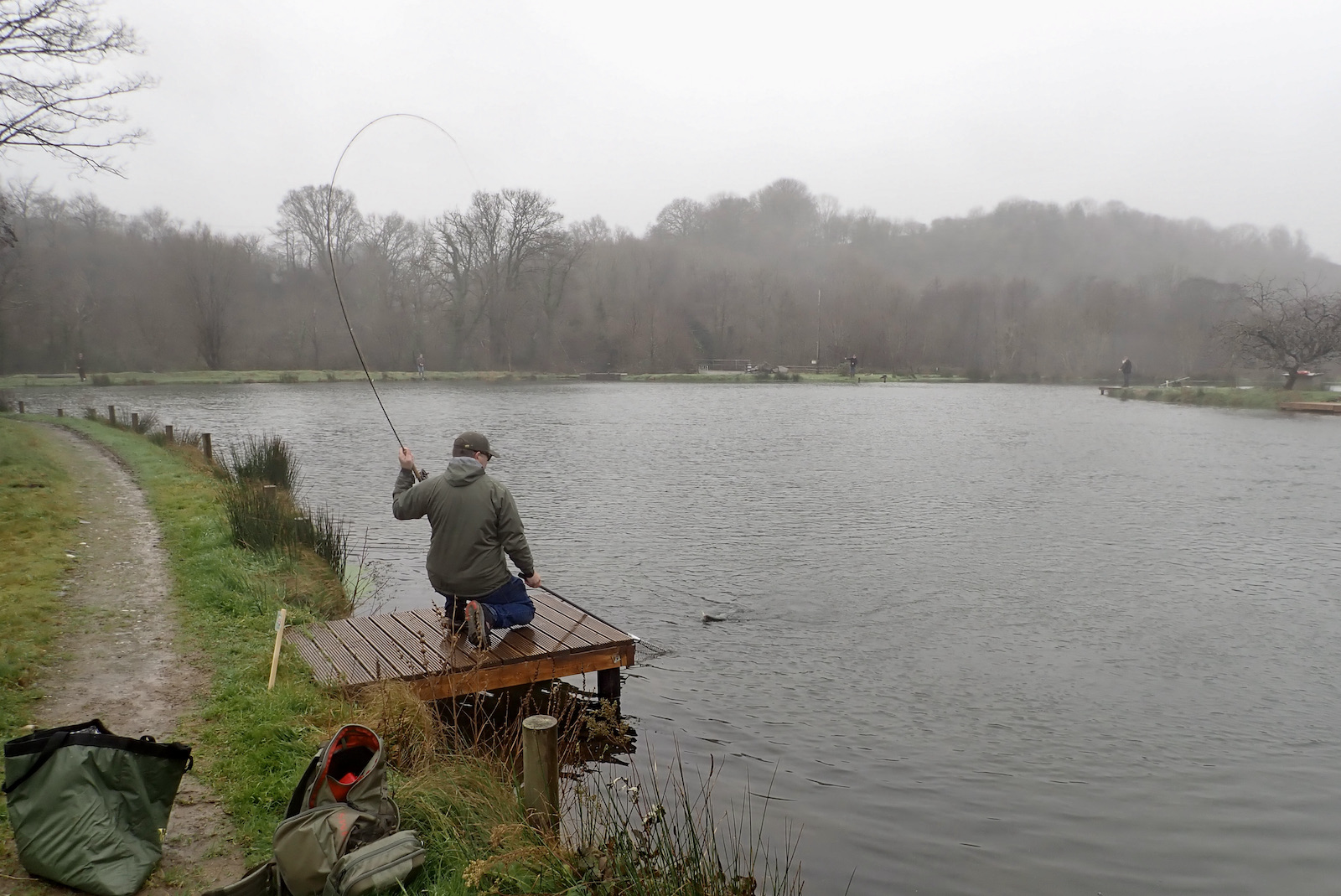
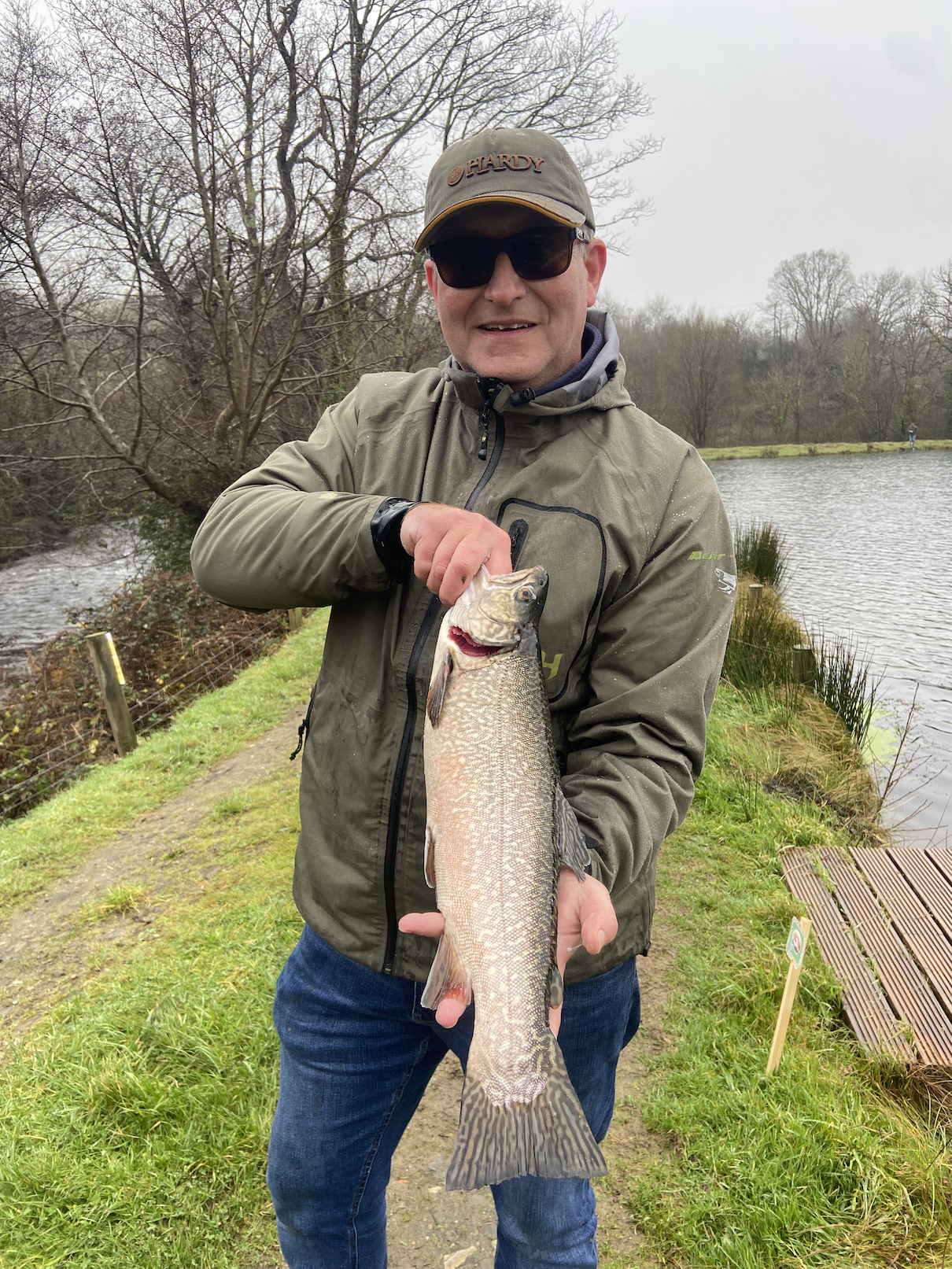
I noted that the angler fishing in the corner was locked in battle with a larger than average fish and walked around to witness the tussle. Brian Sedgebeer was carefully parrying the lunges of a good fish and I shared in the tension as the fish was slowly coaxed towards the waiting net. I sensed that Brian breathed a big sigh of relief when the trout, with its broad marbled flanks eventually slipped over the rim of the submerged landing net. A large fin perfect spartic trout that was undoubtedly one of those special trout stocked prior to the competition.
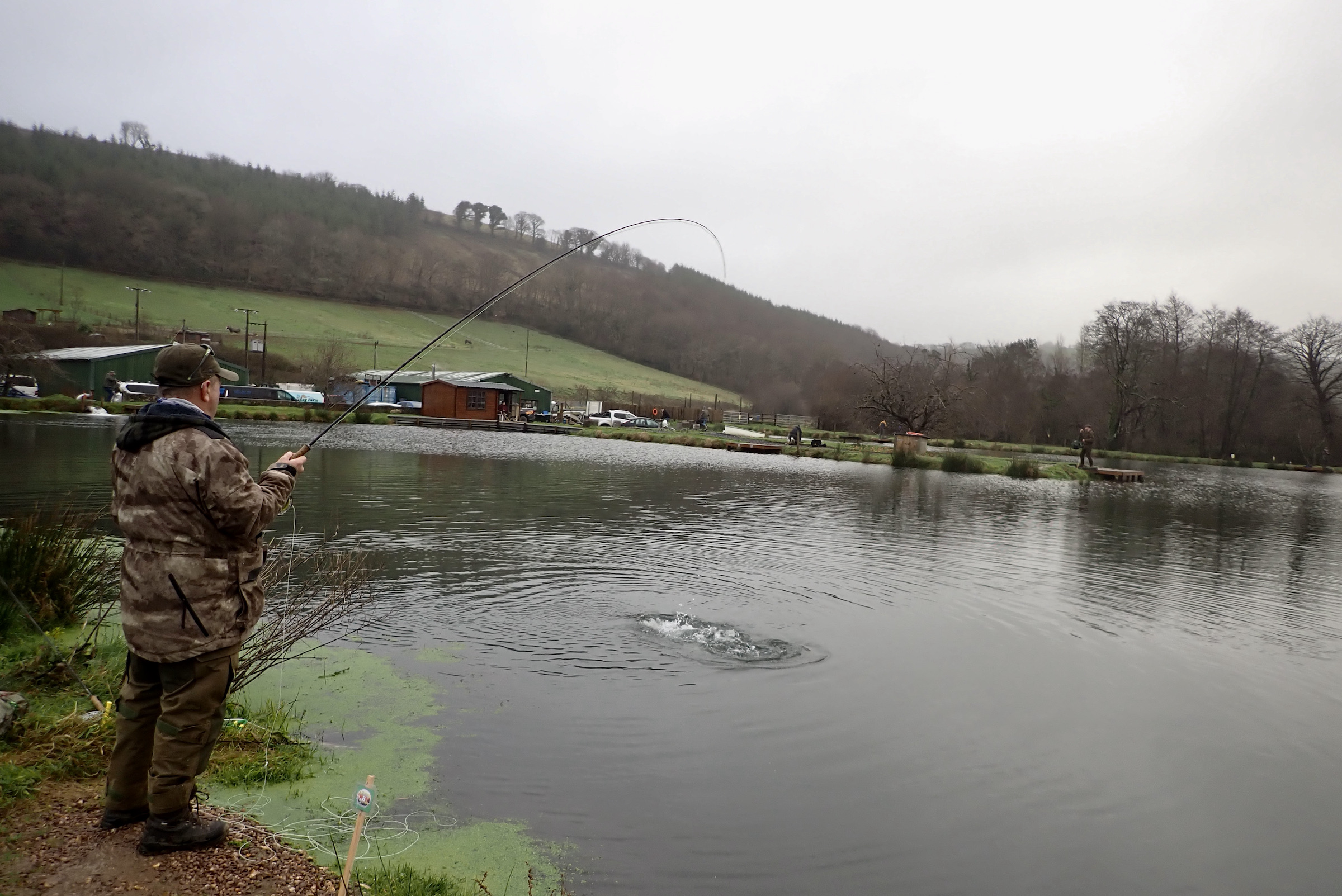
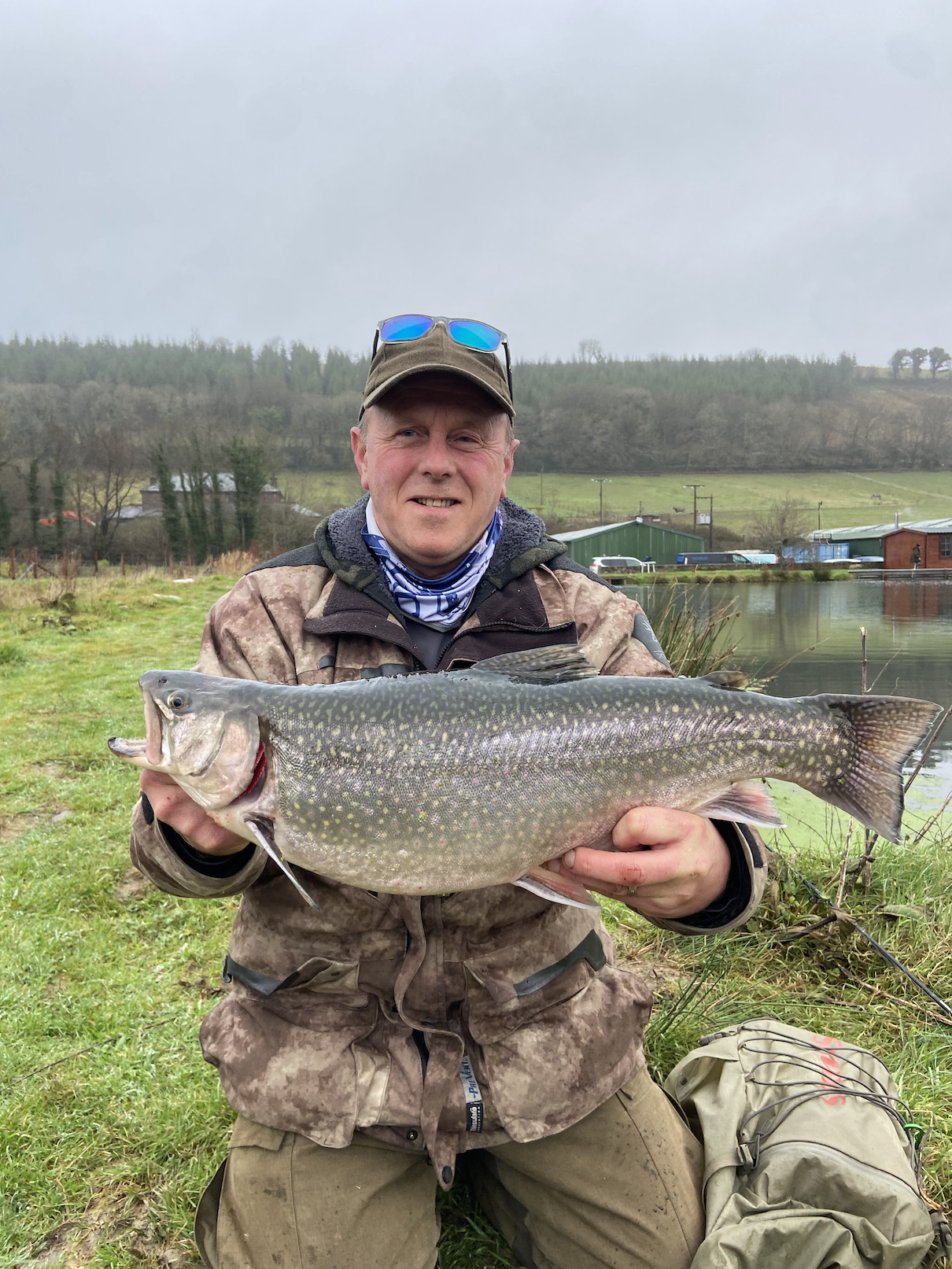
The action was frantic in that first half an hour with good numbers of trout succumbing to the early bombardment of large lures. Cats whiskers and black lures proving most effective.
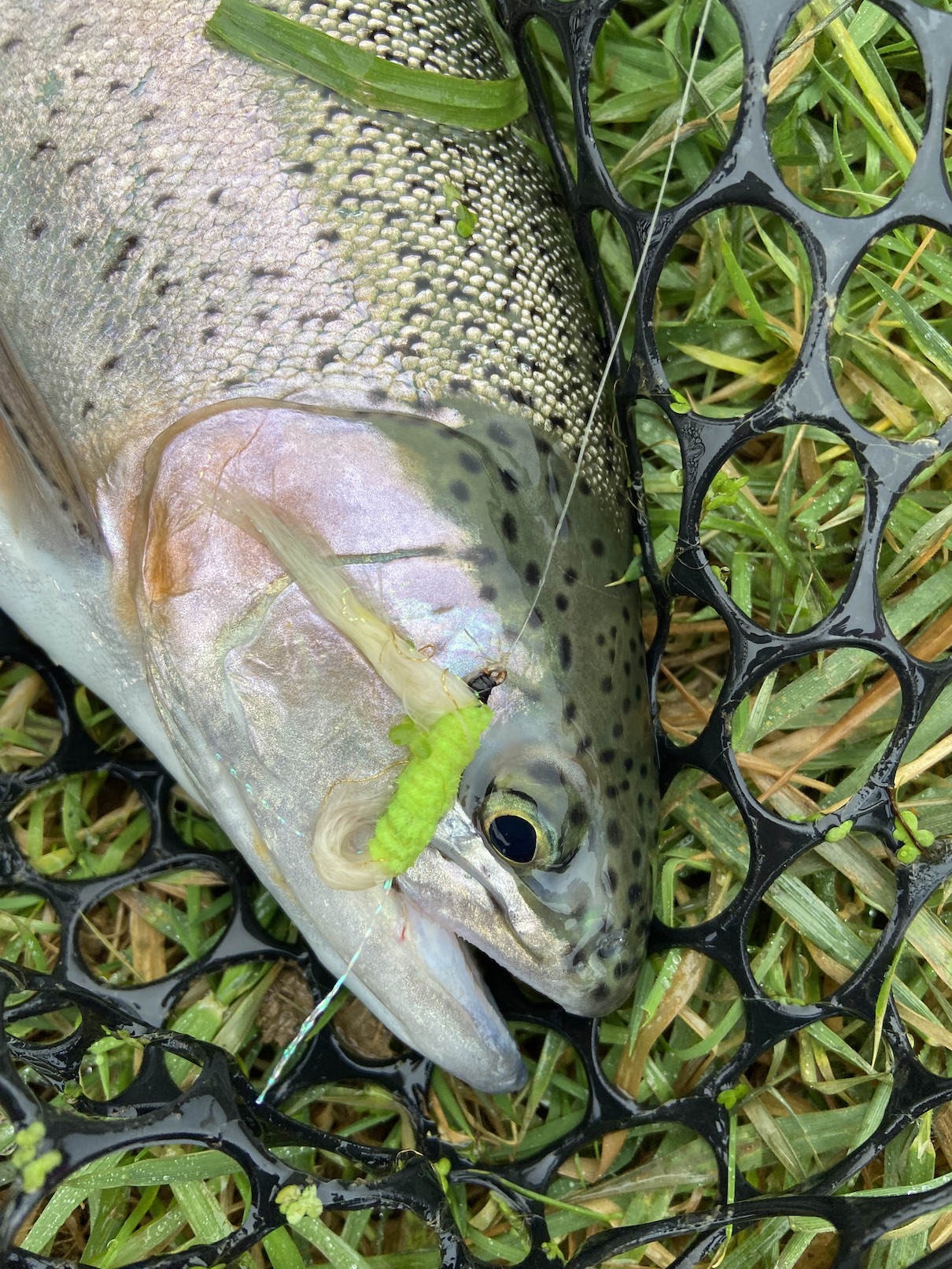
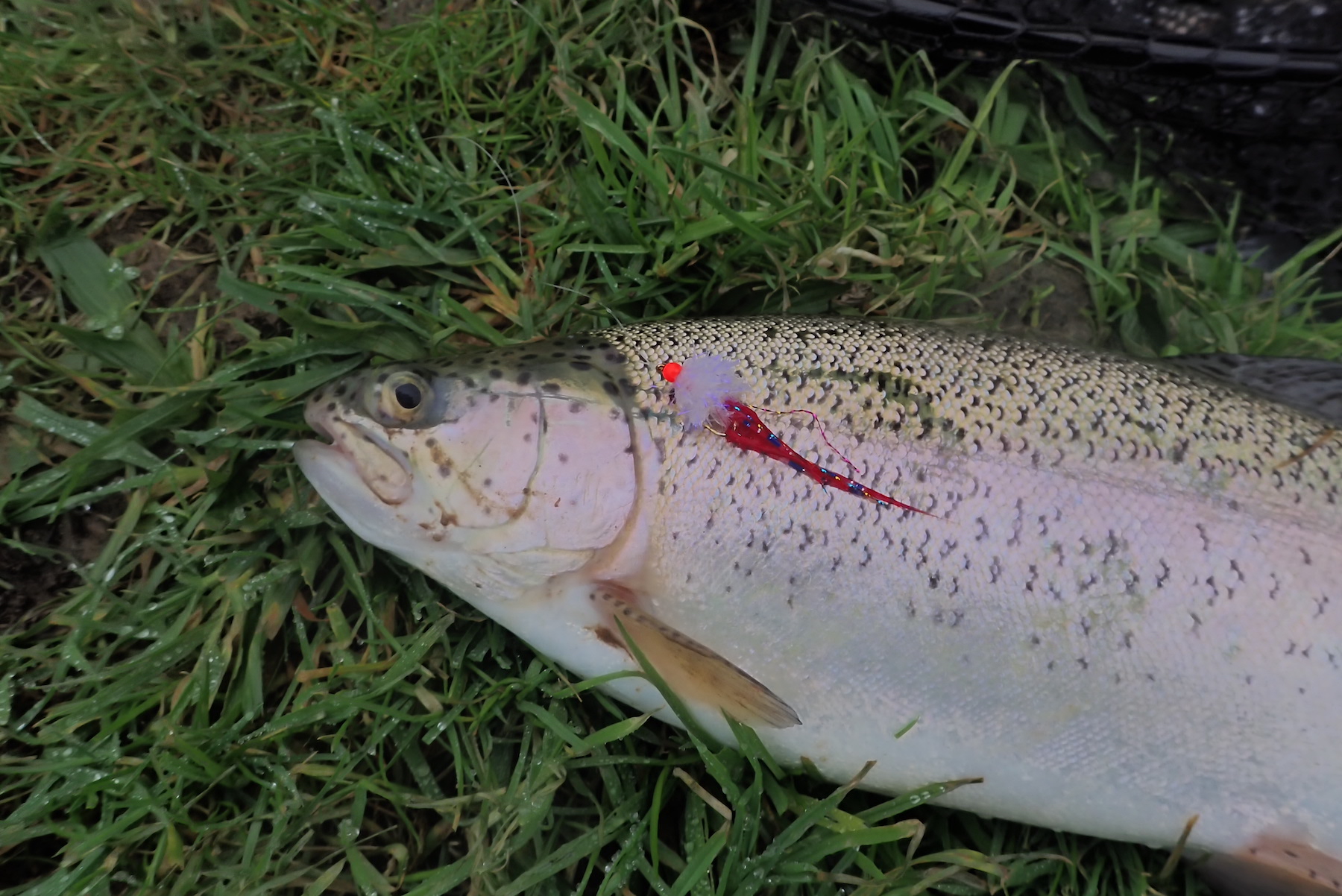
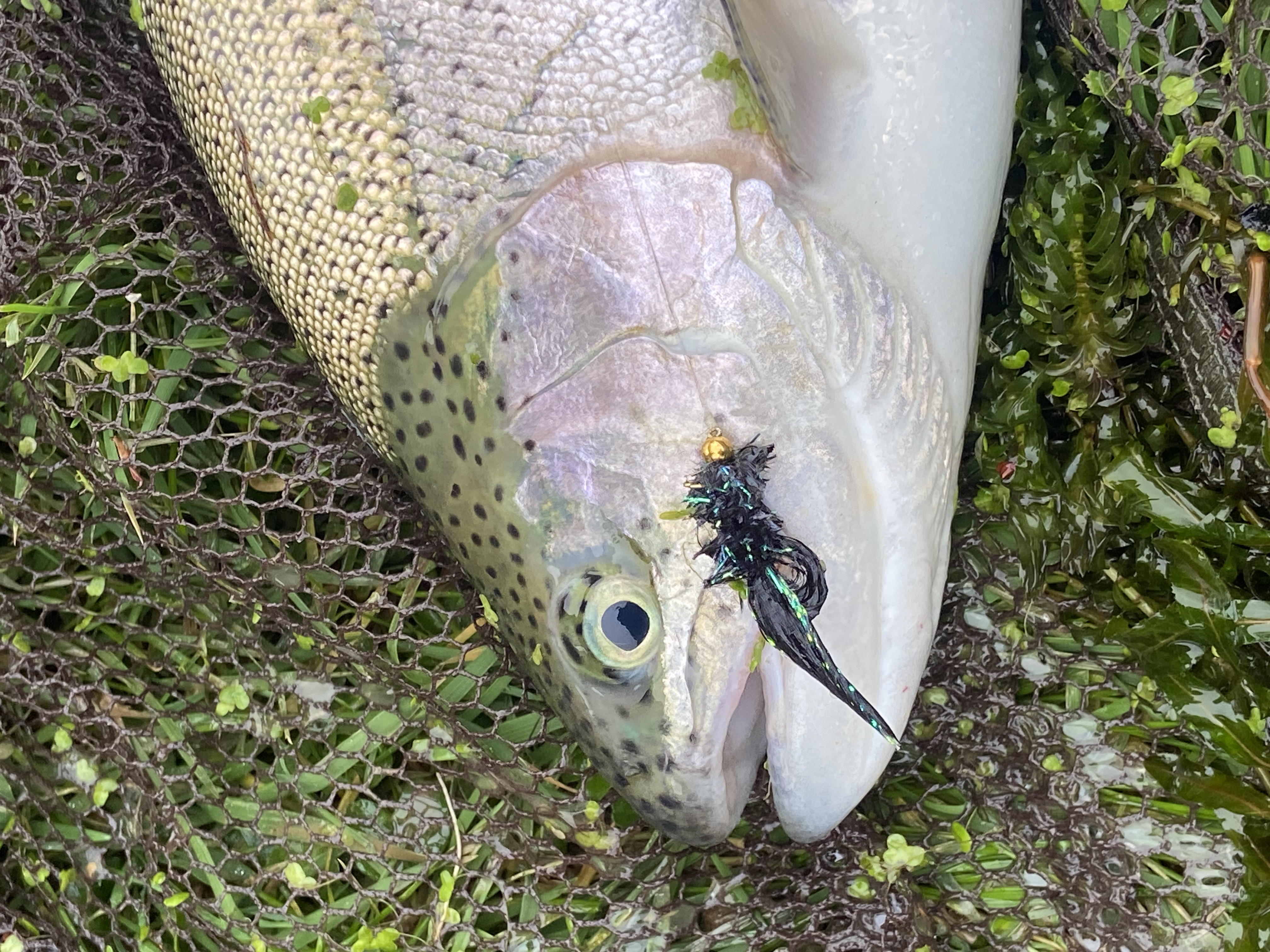
It was no surprise to those of us who had fished small Stillwater competitions when the catch rate plummeted as the fish appeared to wise up quickly.
Nigel and Tom appeared mid-morning with a tray of hot mince pies and clotted cream.
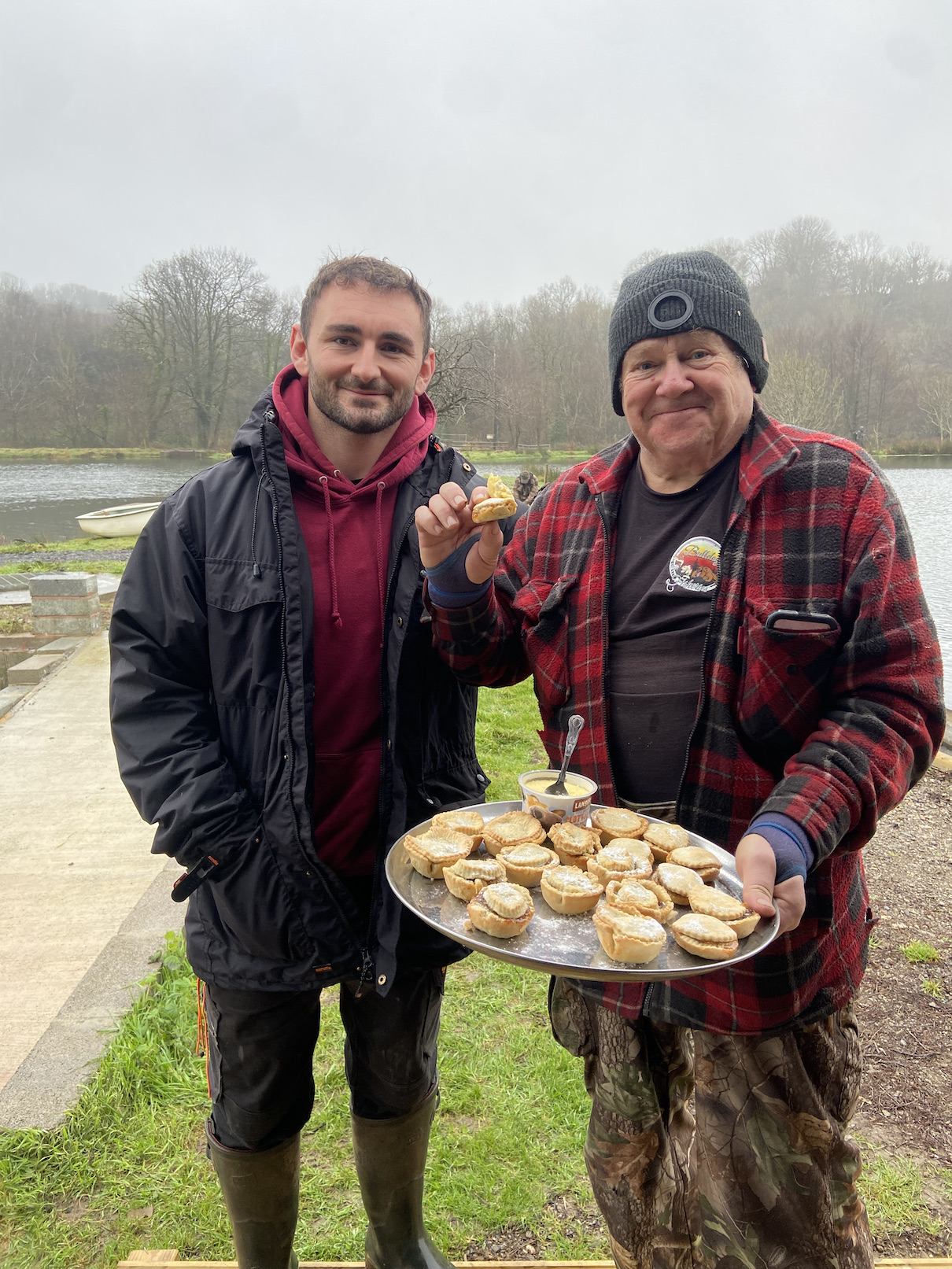
I did several laps of the lake chatting with anglers some of them long-time friends and others total strangers who all chatted freely about all things piscatorial as anglers do. From time to time a line zipped tight and a rod bent as a hard fighting trout tested the anglers tackle and skill. I did my best to capture the moments of triumph and each anglers success.
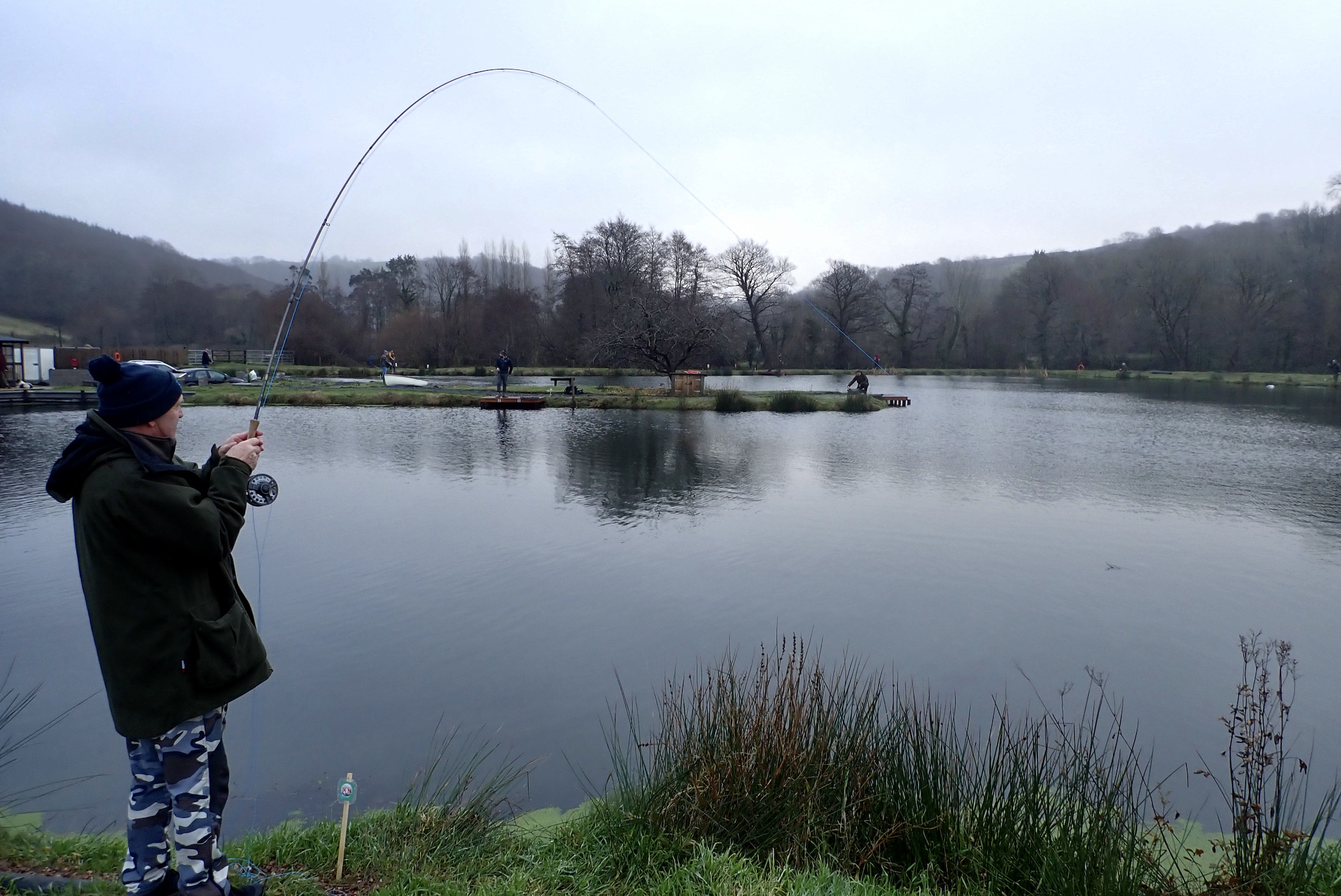
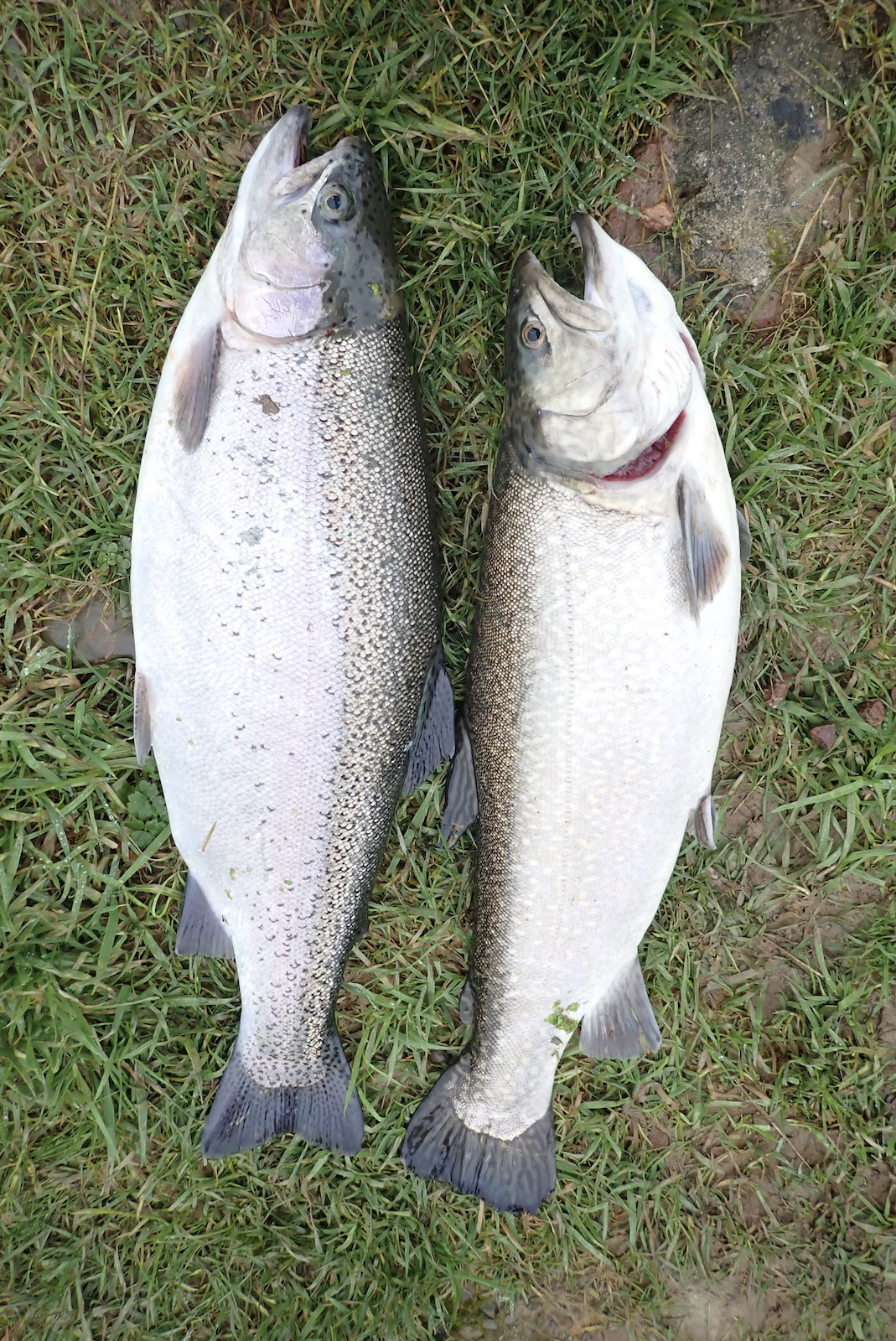
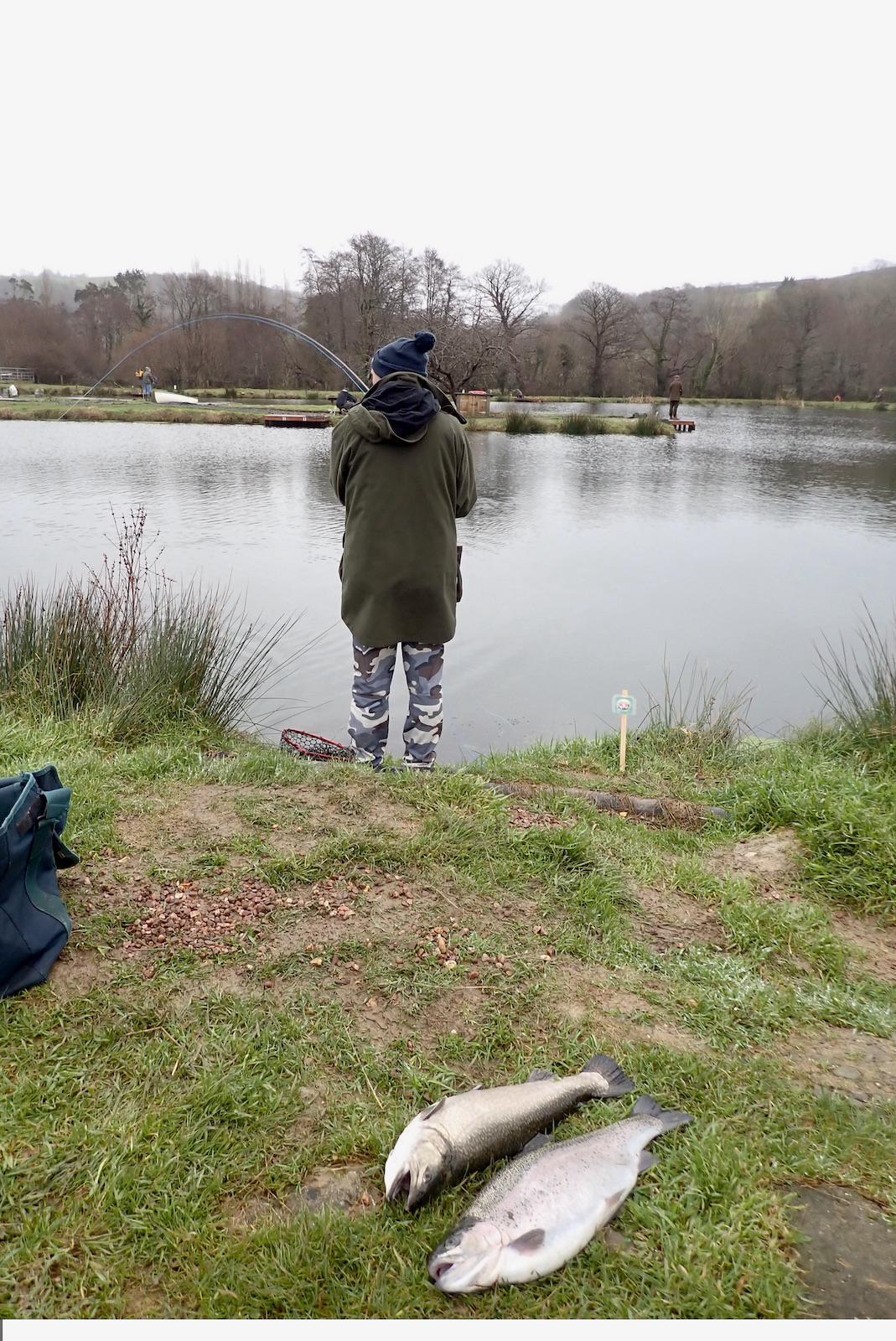
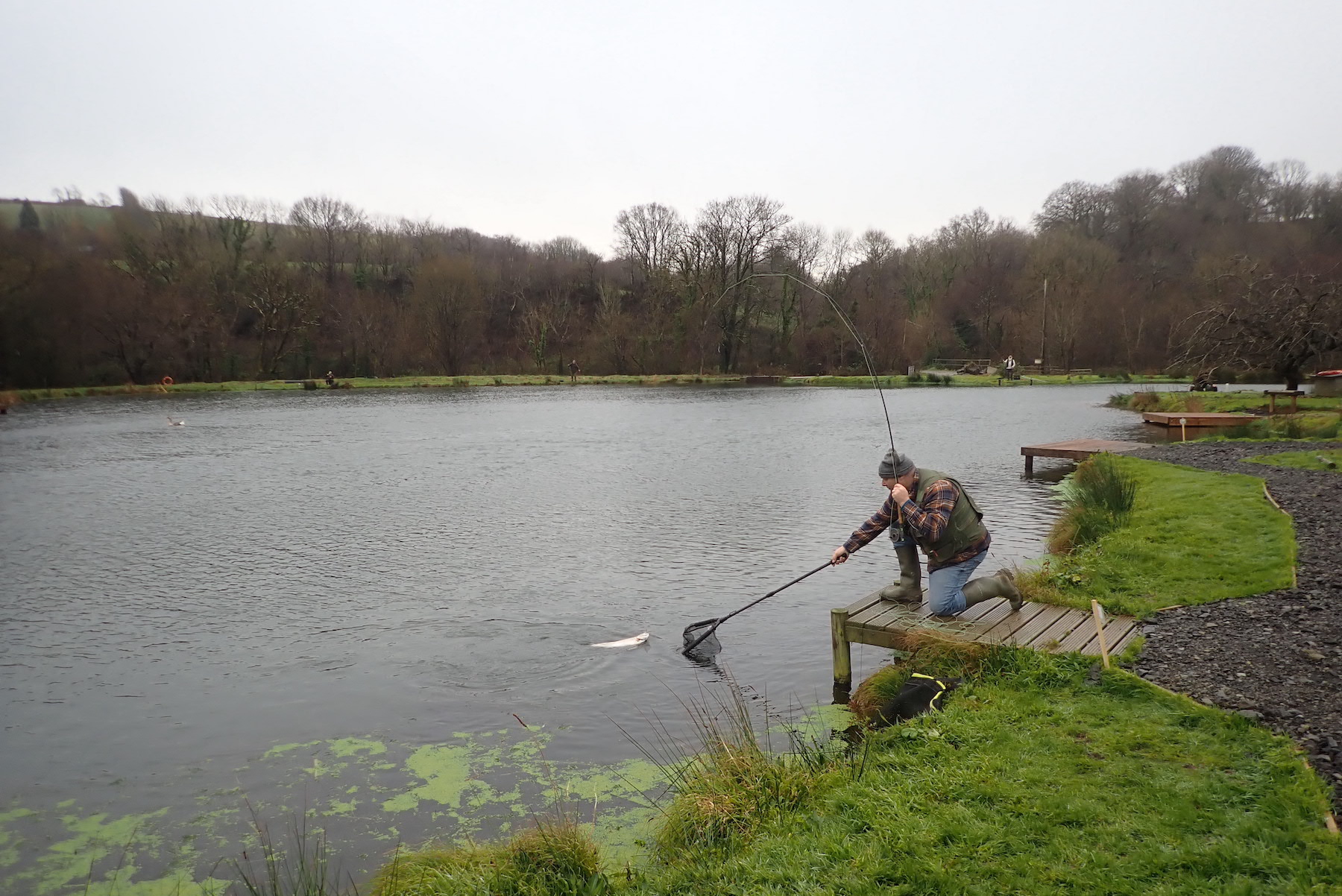
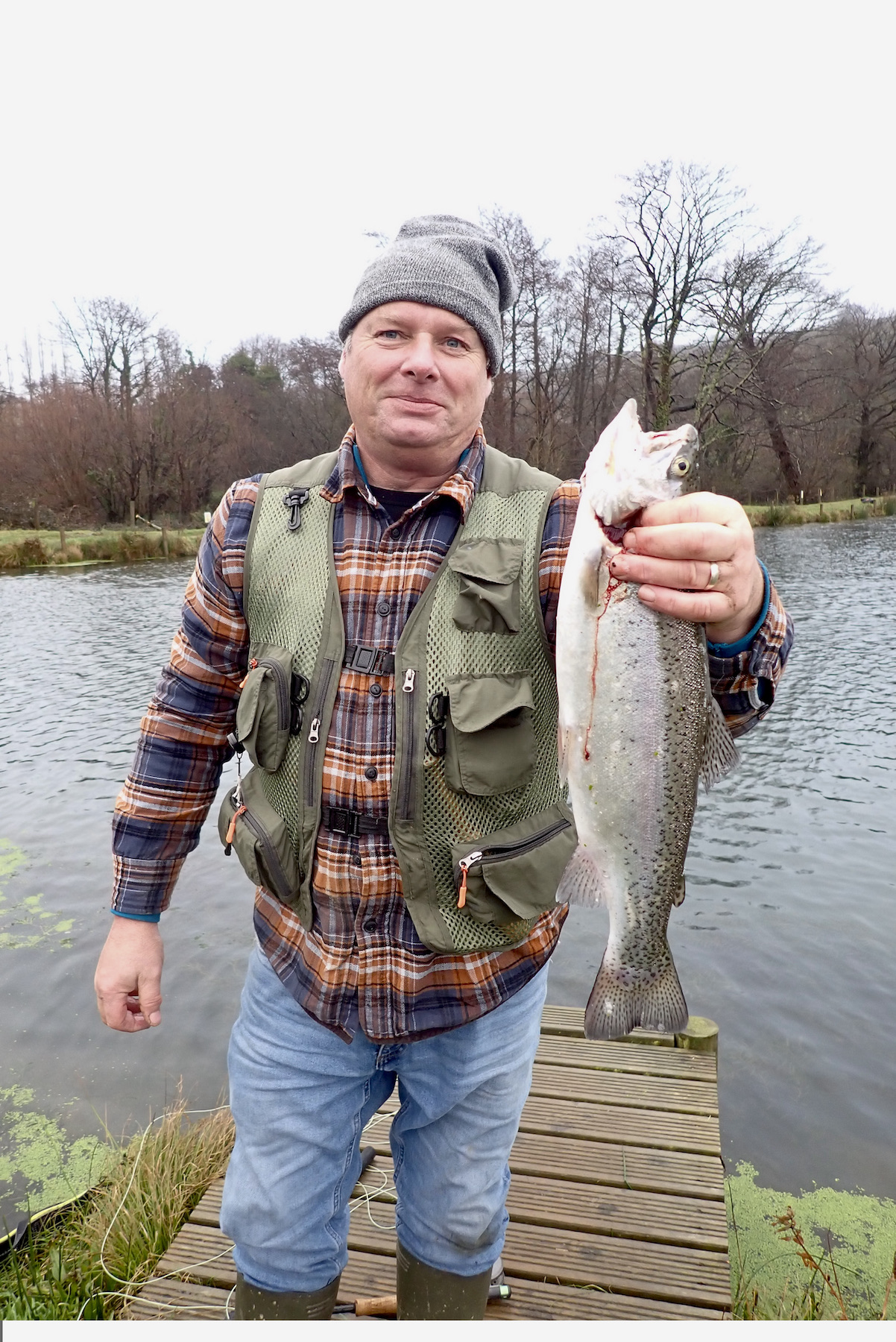
Dave Chapman had certainly tuned into the successful tactics for the day being the first to complete his six fish limit bag just before dinner with the help of his young son Freddie wielding the landing net with a degree of skill and dexterity that would put many senior anglers to shame.
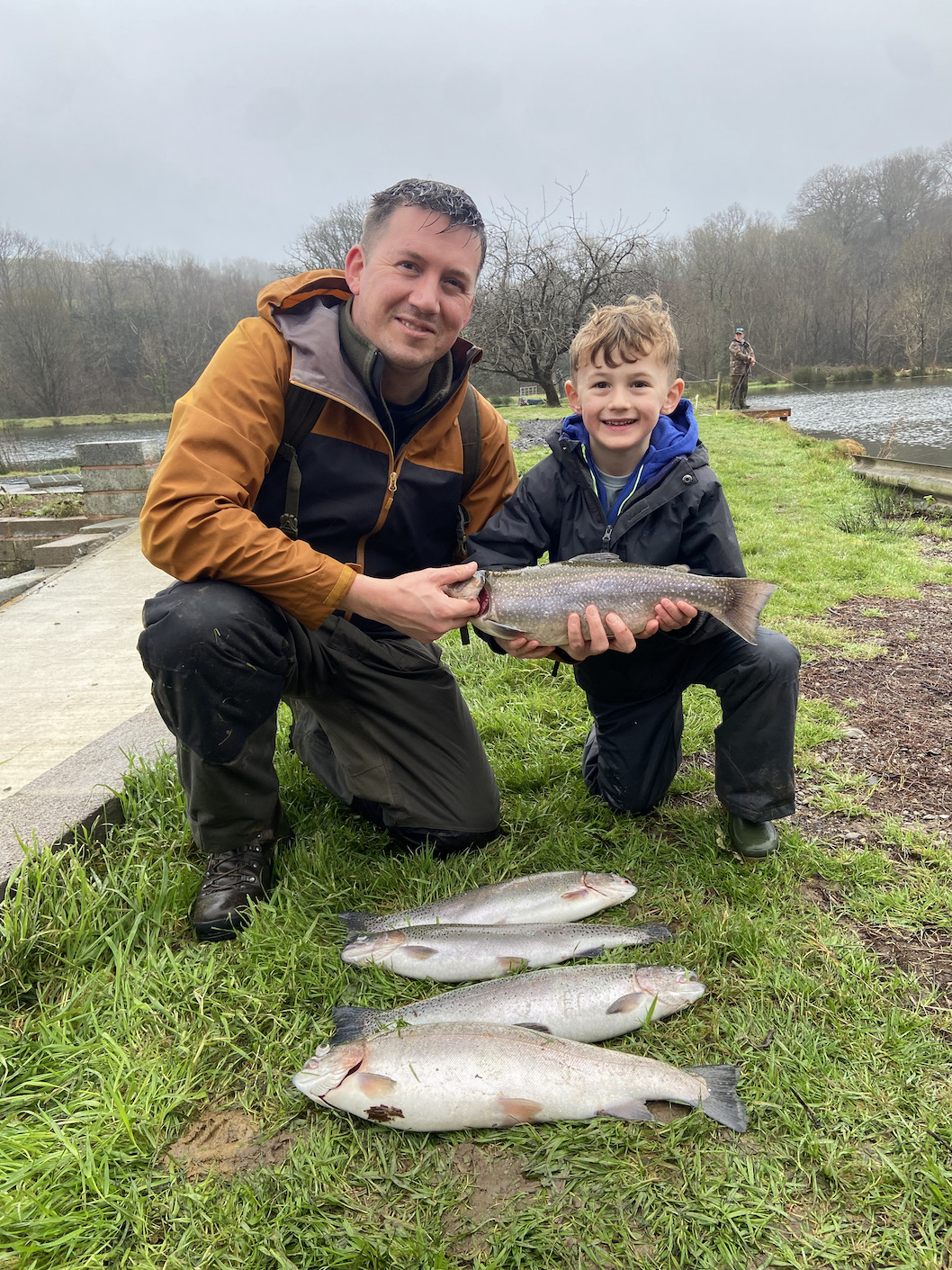
The warm fishing lodge and roaring wood-burner proved a welcome respite from the grey cool heavy drizzle of this winter day. Dinner was served; roast pork baps, apple sauce, stuffing, roast potatoes and crackling. The air was full of cheery laughter, tales of fishing, reminisces and those things that fishers and men talk about on such days.
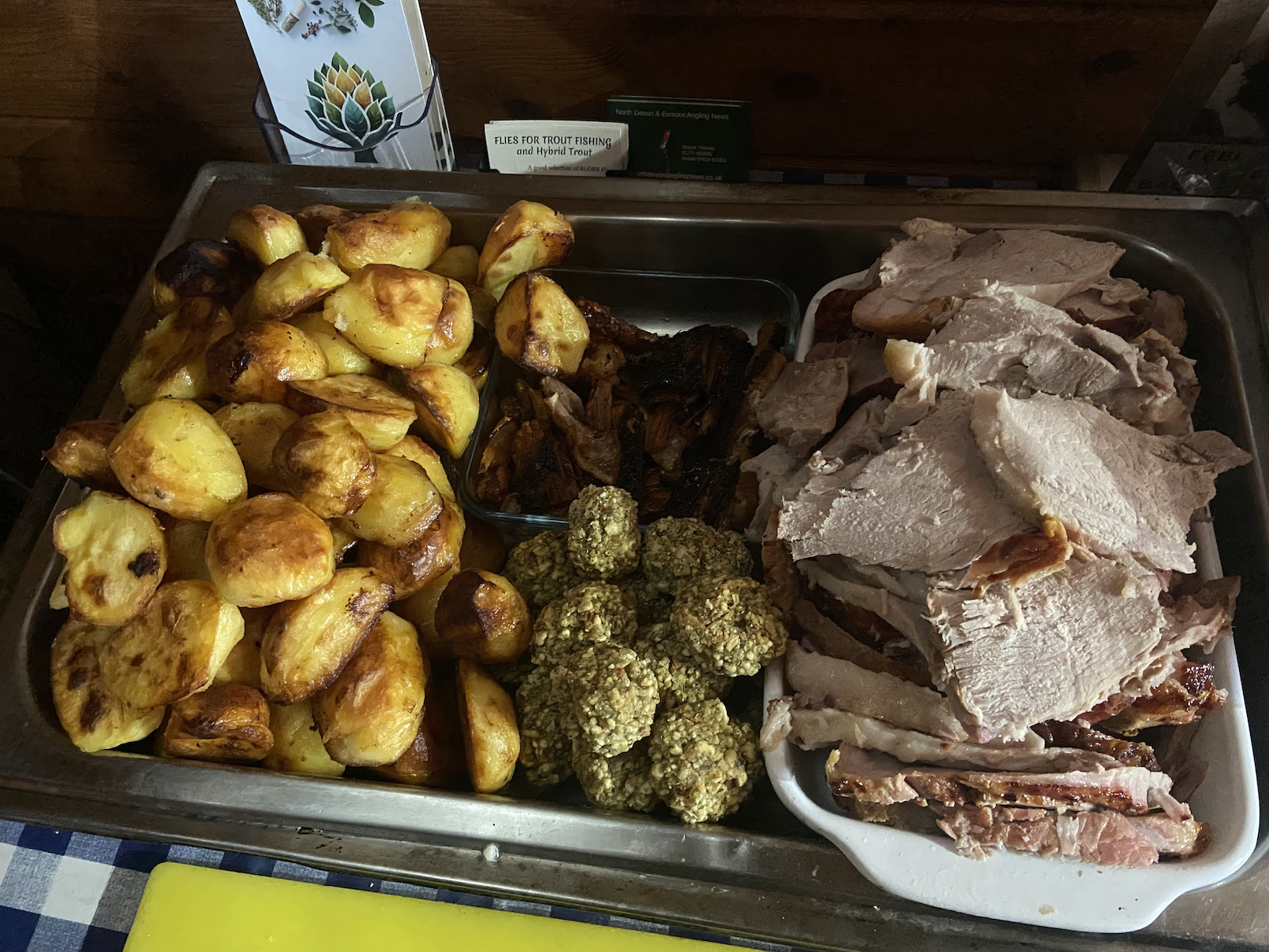
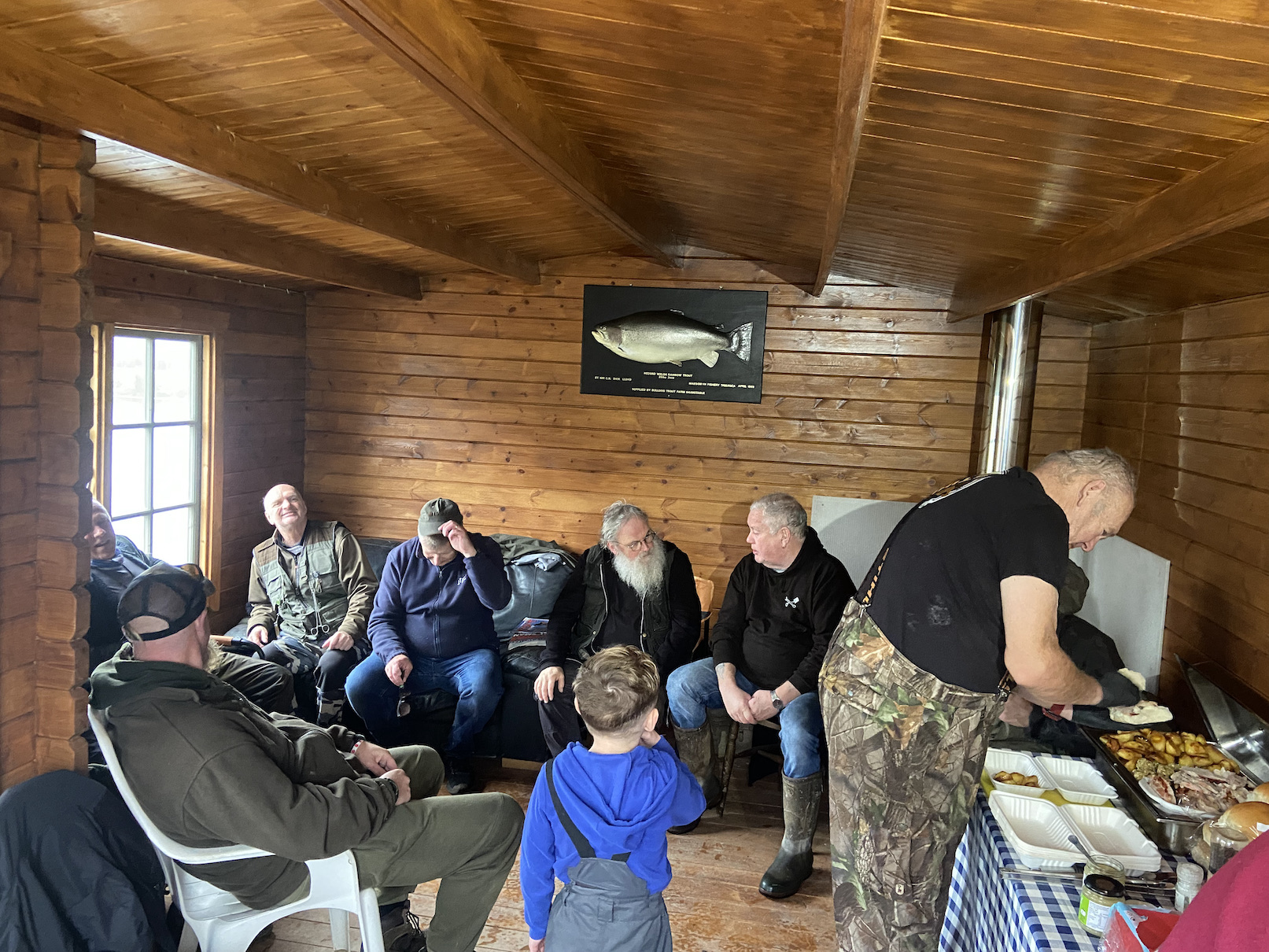
With appetites satisfied the rivalry reconvened as anglers resumed their circuit of the lake. There was general expectation that there would be a flurry of sport after resting the lake over the dinner break. To my surprise this was not the case and for half an hour or so the trout proved difficult to tempt.
As the afternoon drifted by there were flurries of activity and trout began to rise around the lake from time to time. A wide variety of flies lures and tactics were employed with floating lines, intermediate lines and sinking lines all put to good use.
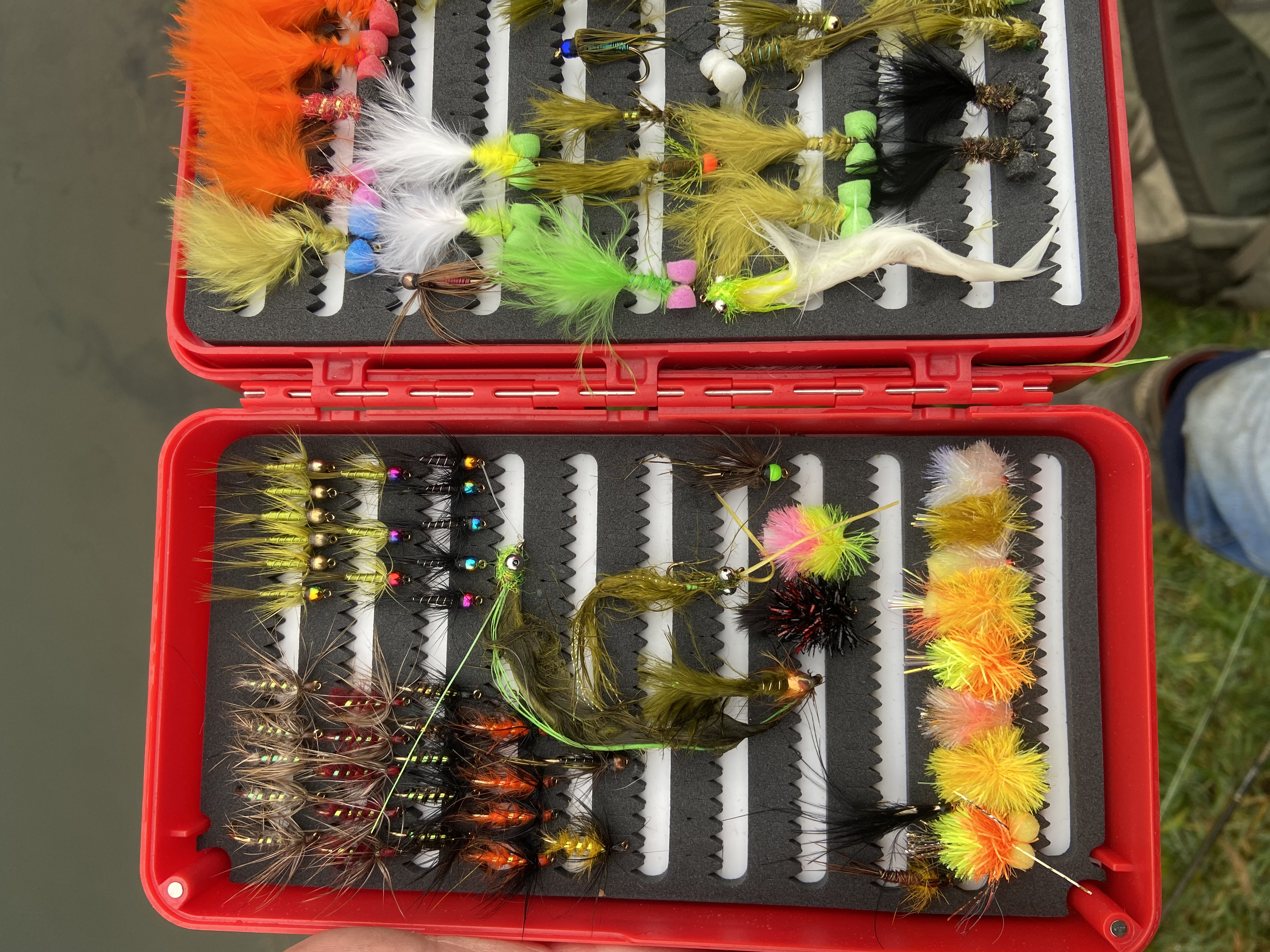
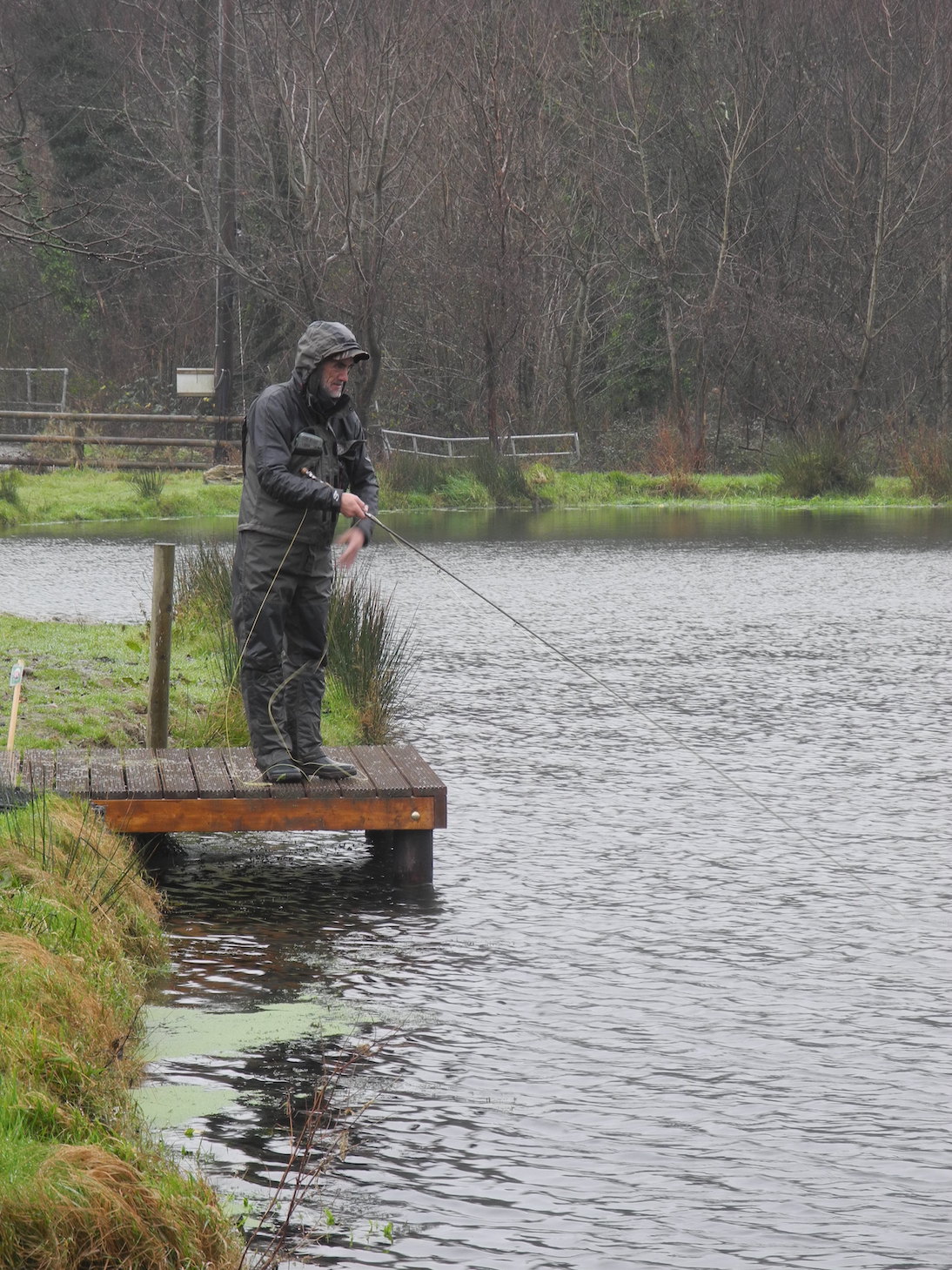

The last hour of the day saw Colin Combe complete the second six fish limit of the day, a bag that contained a brace of really chucky rainbows that would undoubtedly give him a good chance of victory.
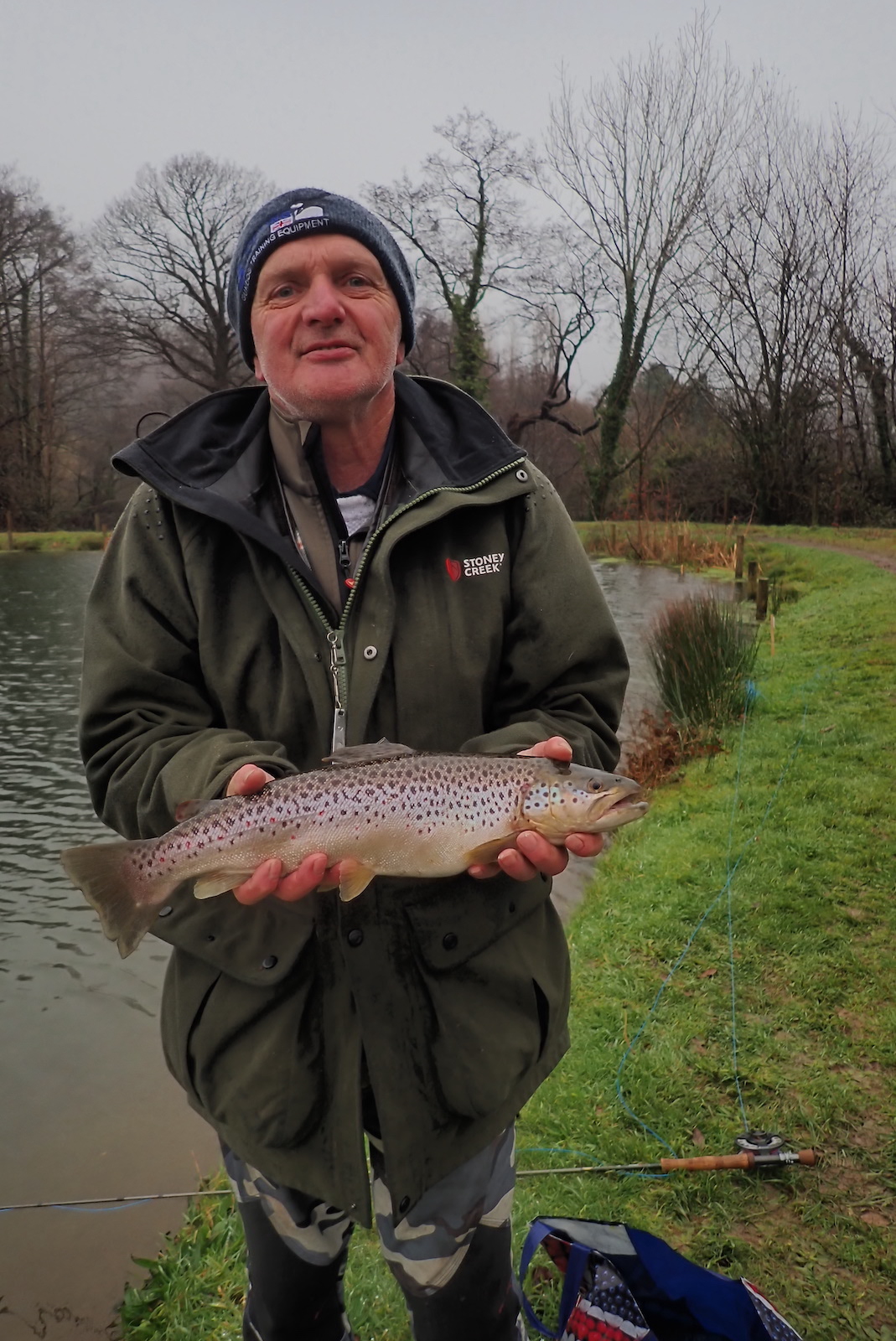
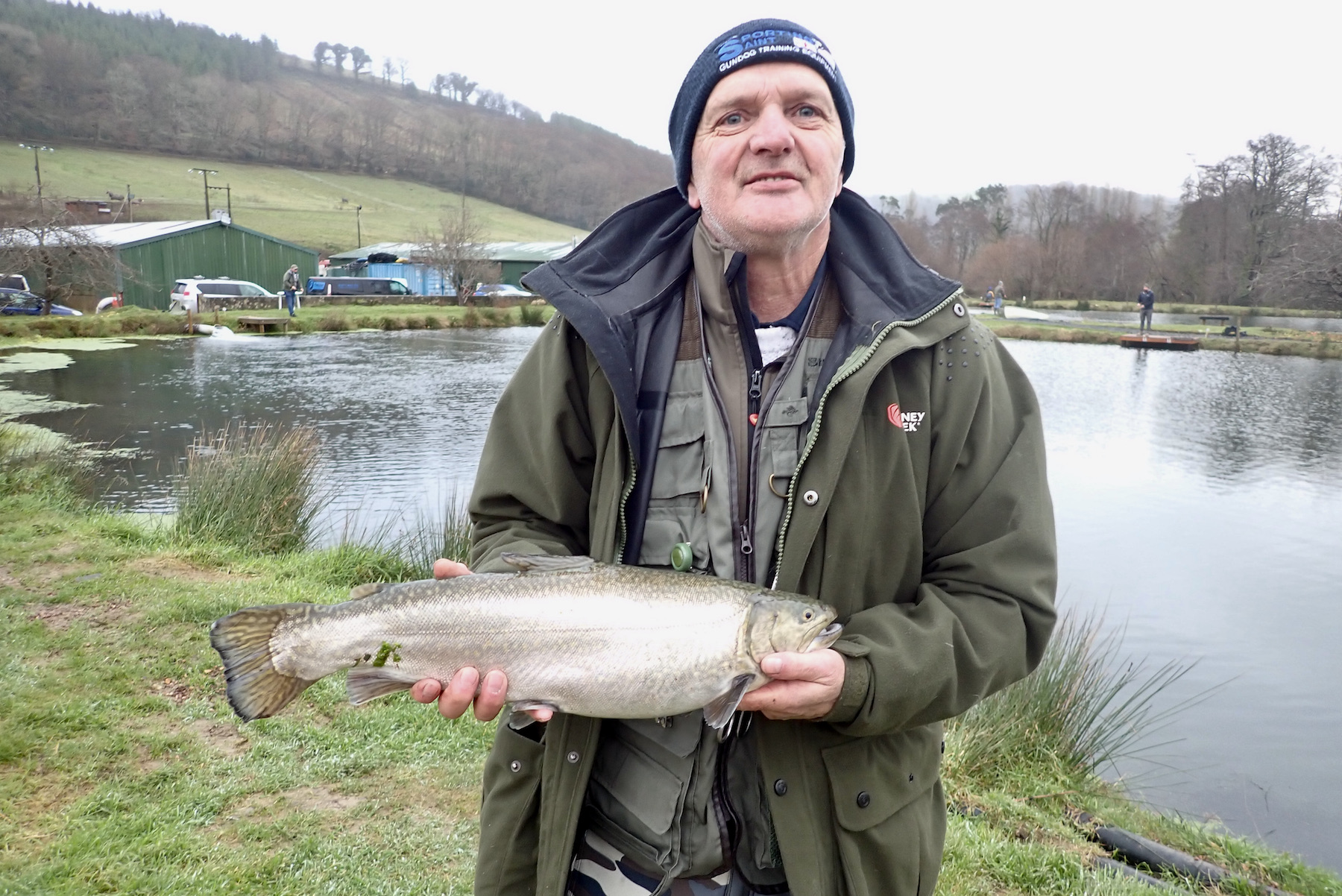
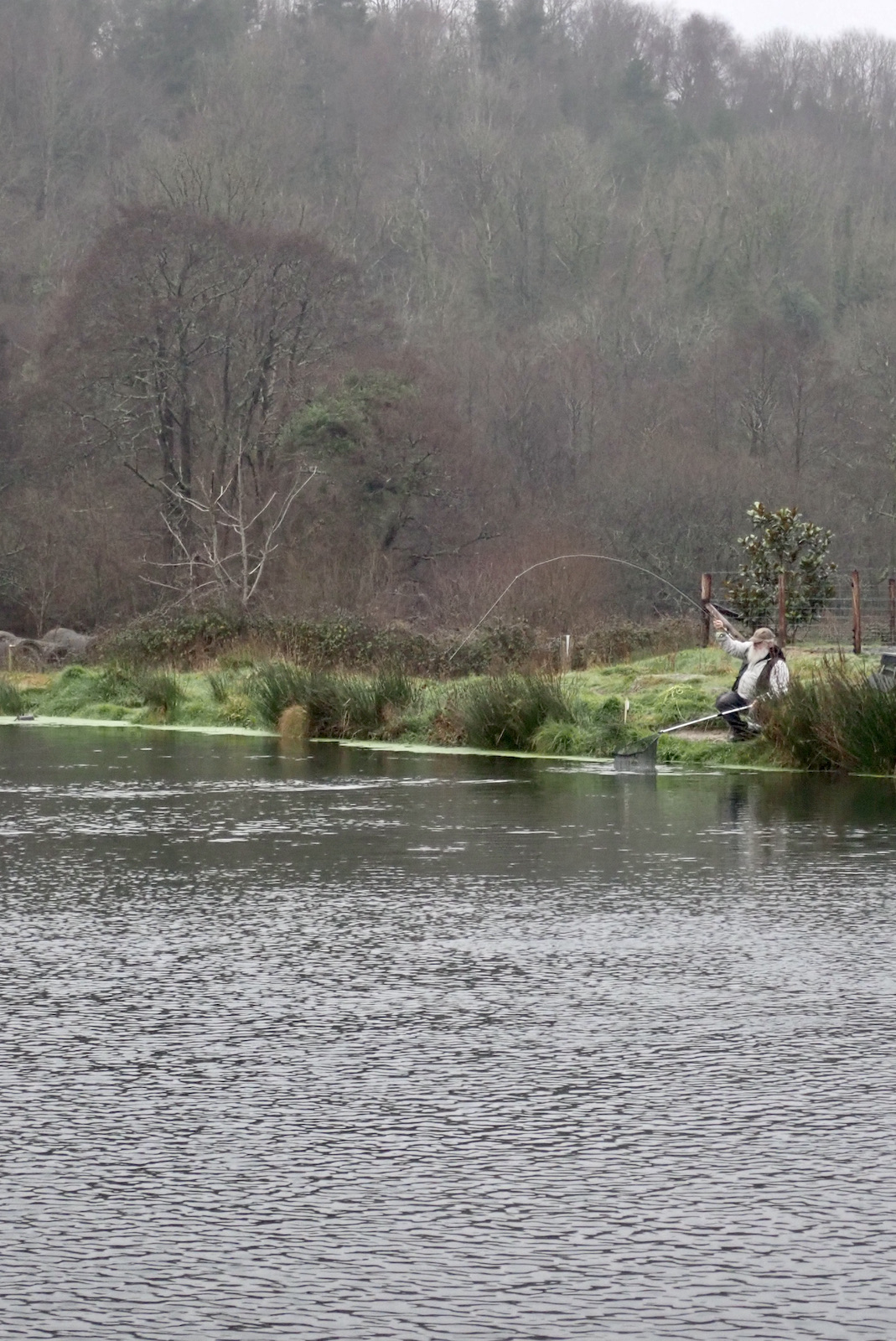
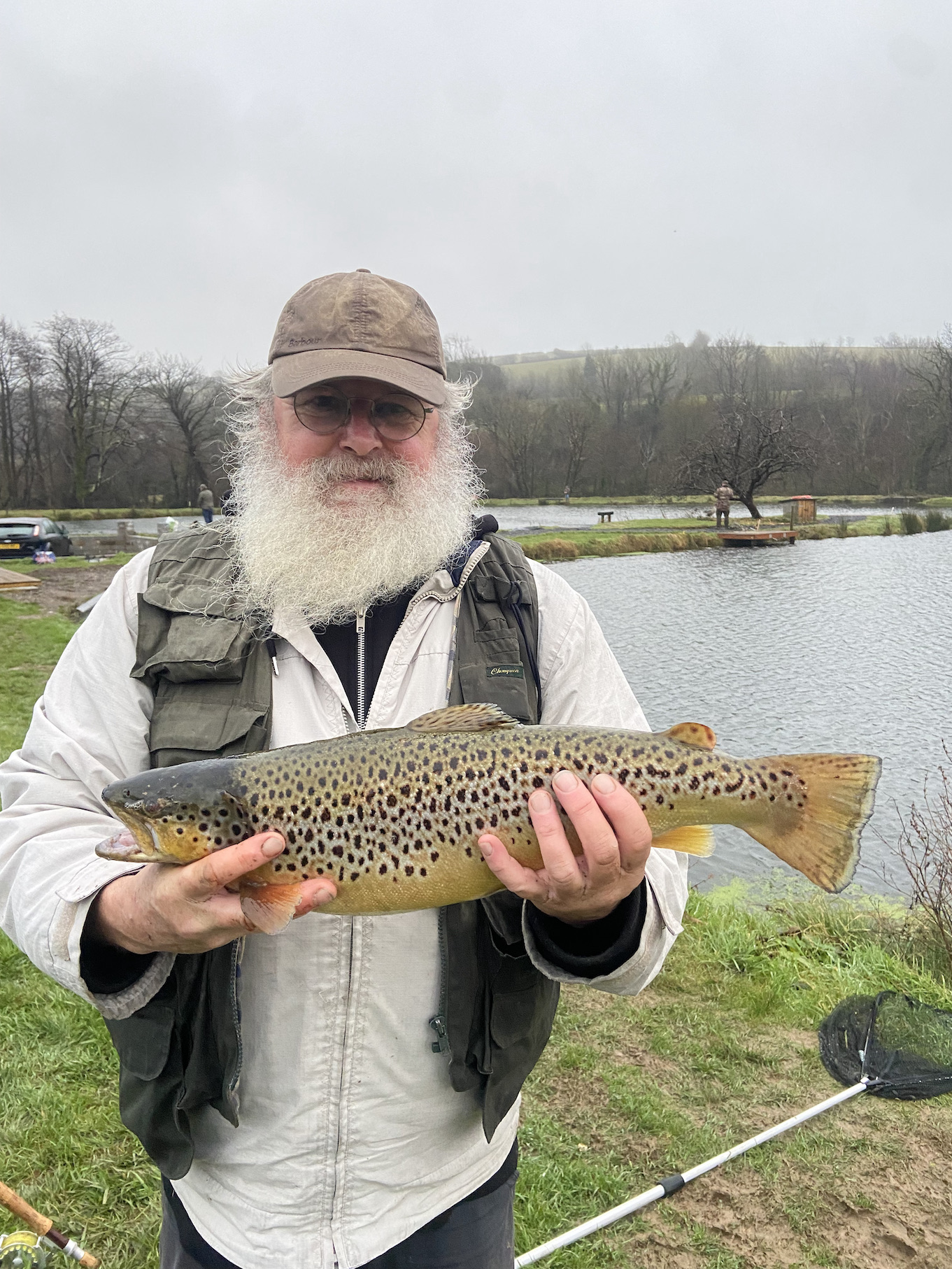
There was a flurry of activity as the light faded towards the close of play and when the horn sounded to signal the competitions end there were at least three anglers in contention.
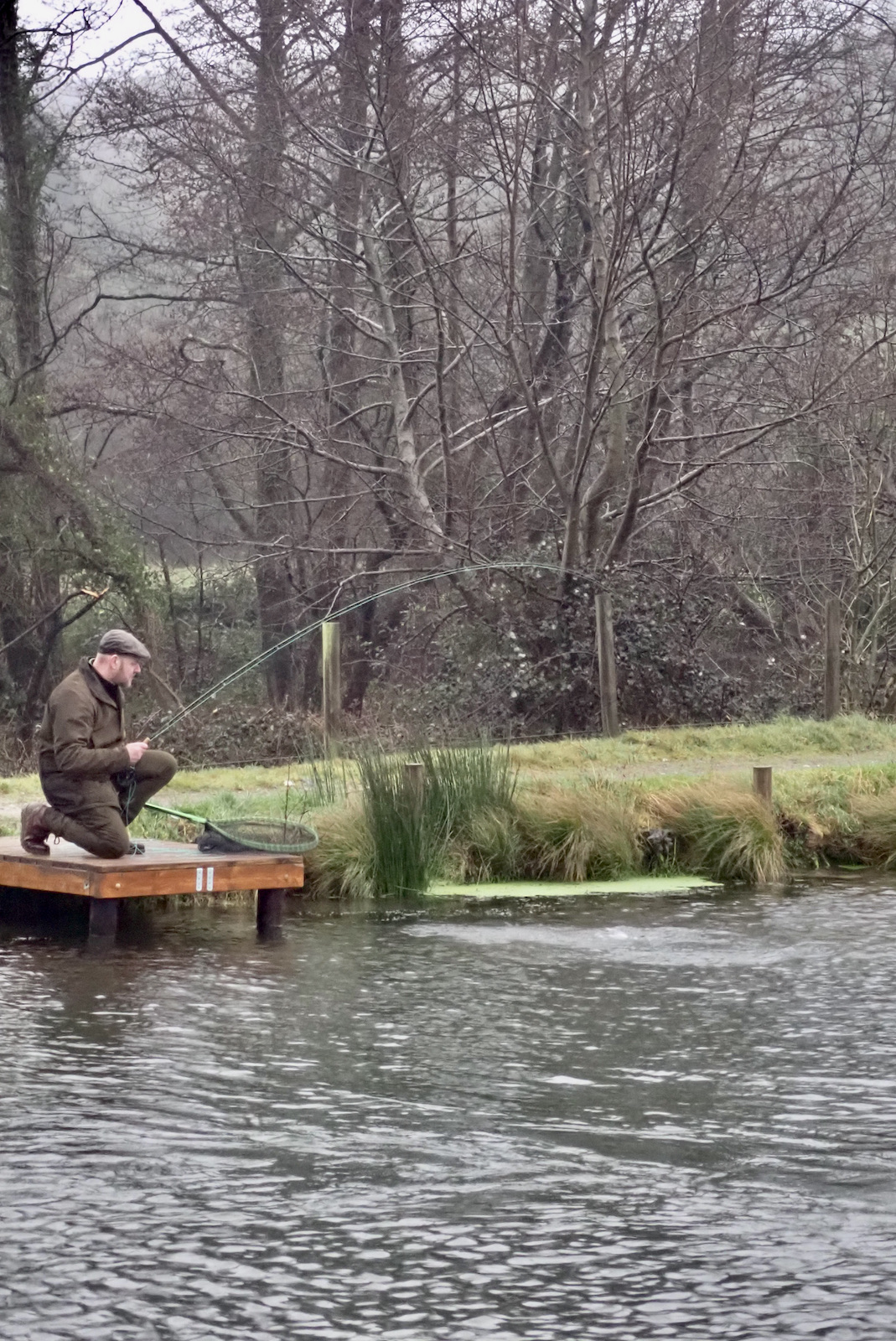
The weigh in revealed some superb bags of quality trout with the top three taking away some superb prizes consisting of food and fishing.
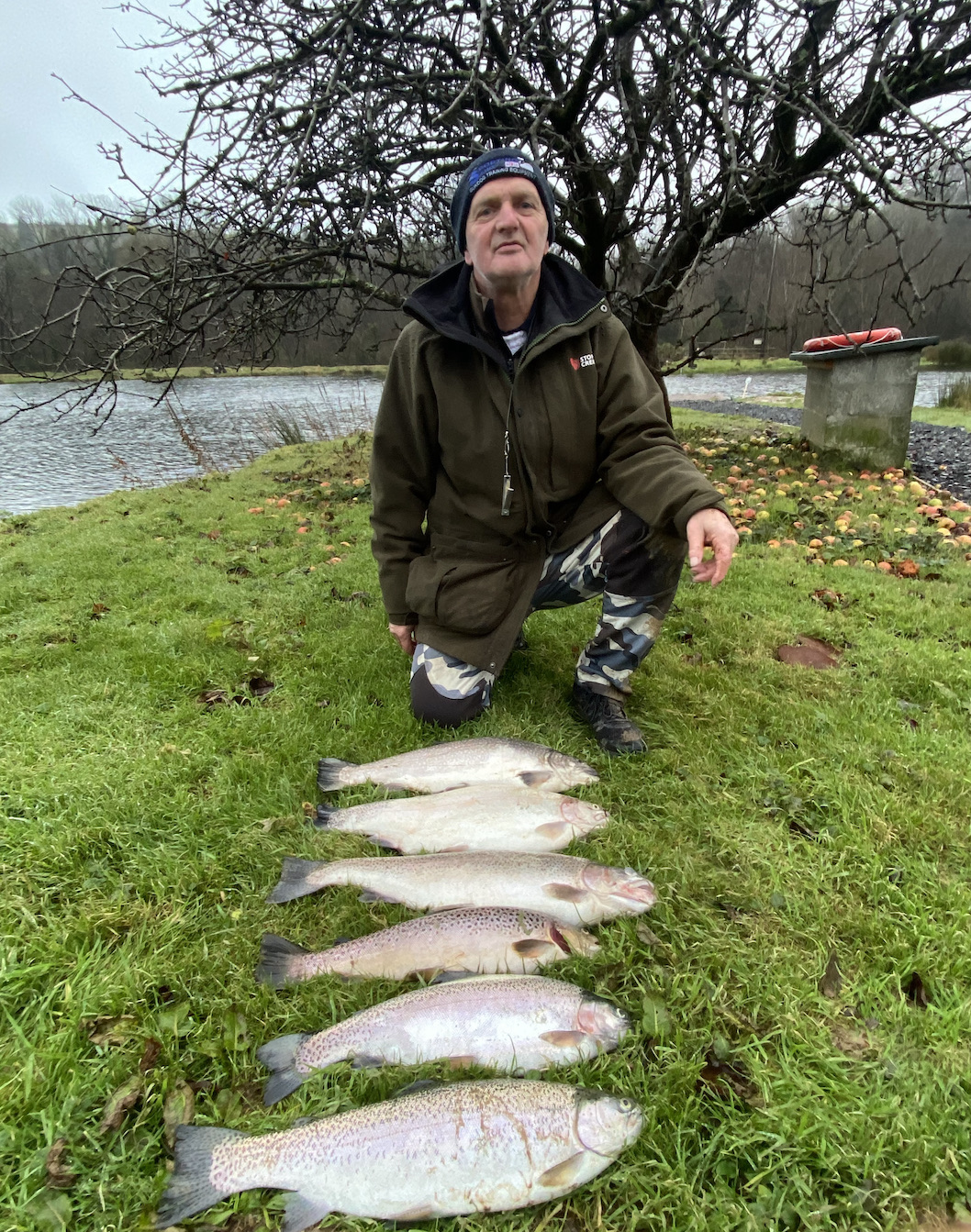
The winning bag of six trout was caught by Colin Combe and weighed a total of 24lb and included a fine spartic of 4lb 14oz along with rainbow trout of 5lb 7oz and 5lb 6oz. Runner up was Dave Chapman with six trout for 19lb 1.5oz and Joe Keating third with five trout for 18lb 10.25oz. The biggest trout of the day was caught by Brian Sedgebeer a stunning Spartic trout of 8lb 4oz.
Winter is often the best time to visit these smaller Stillwaters with the trout in peak condition in the cold clear well oxygenated water. Nigel and Tom will be hosting regular events over the coming months and are being supported by the Angling Trust as a venue to host Go Fishing and well-being events.
